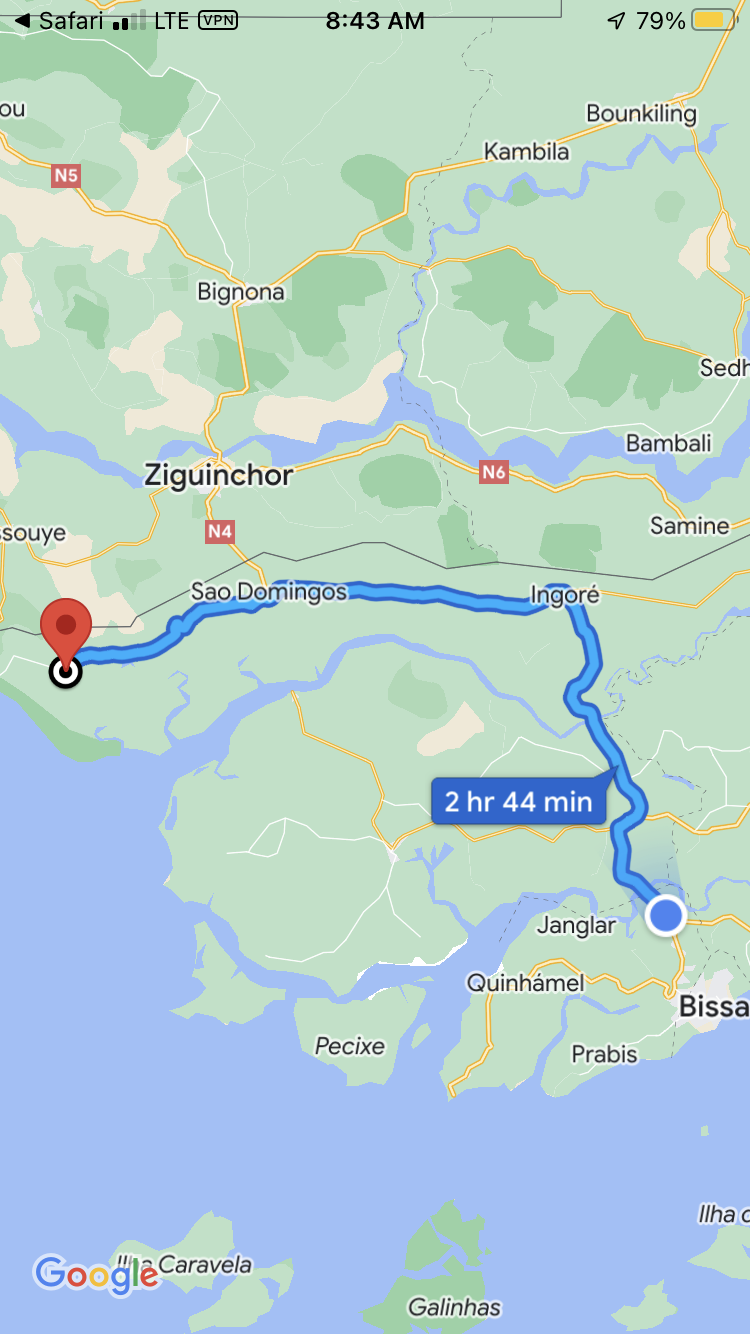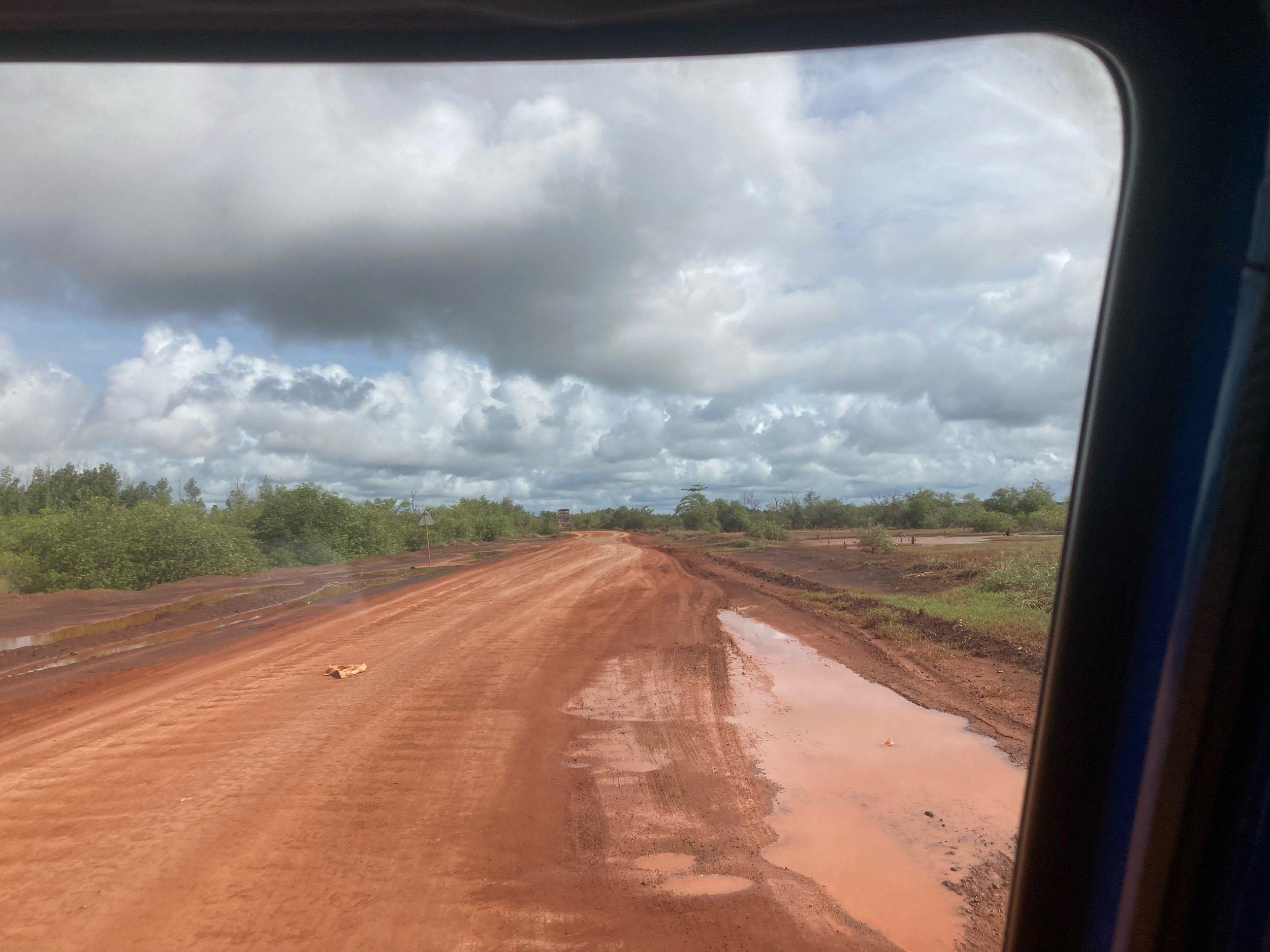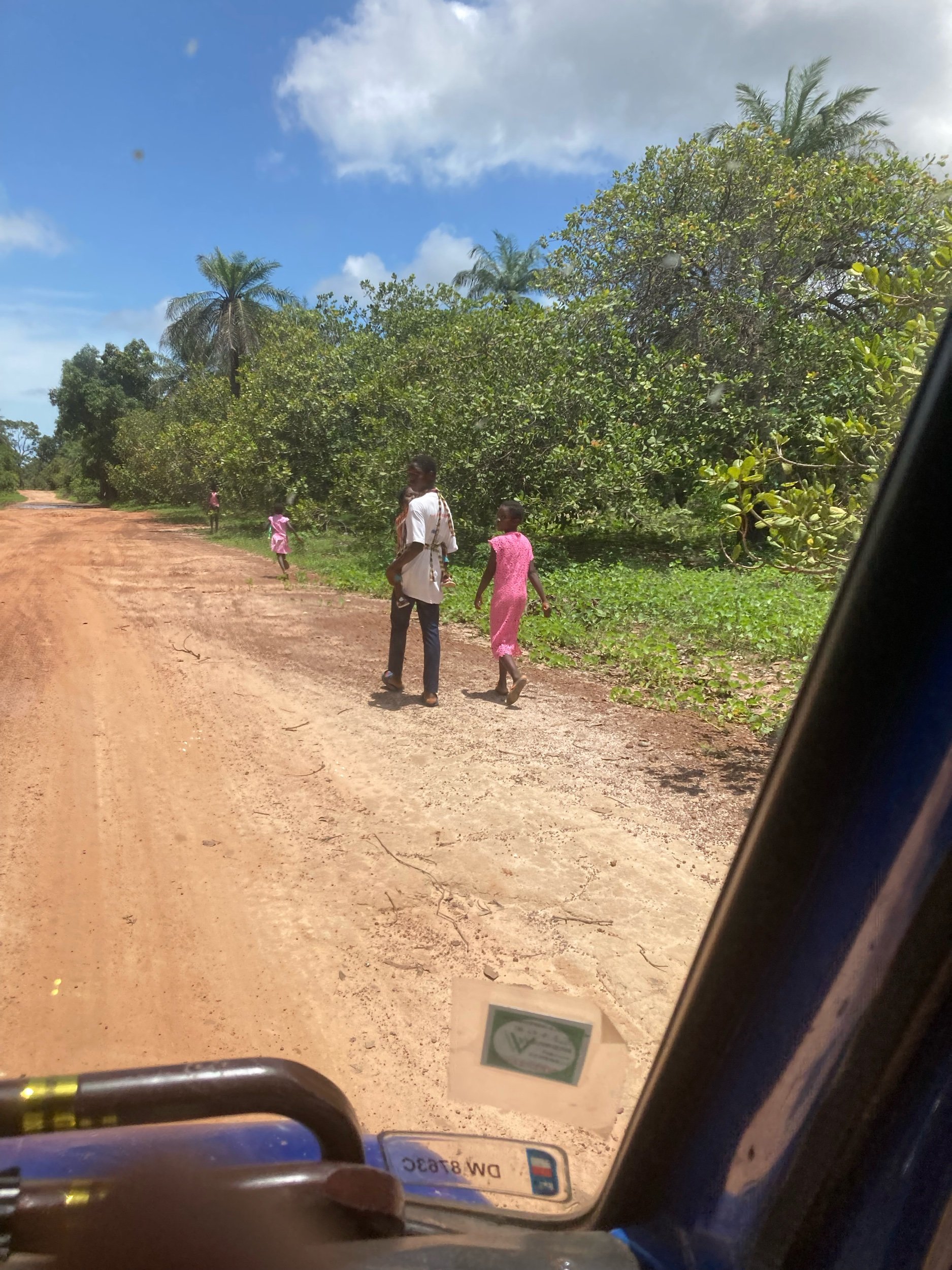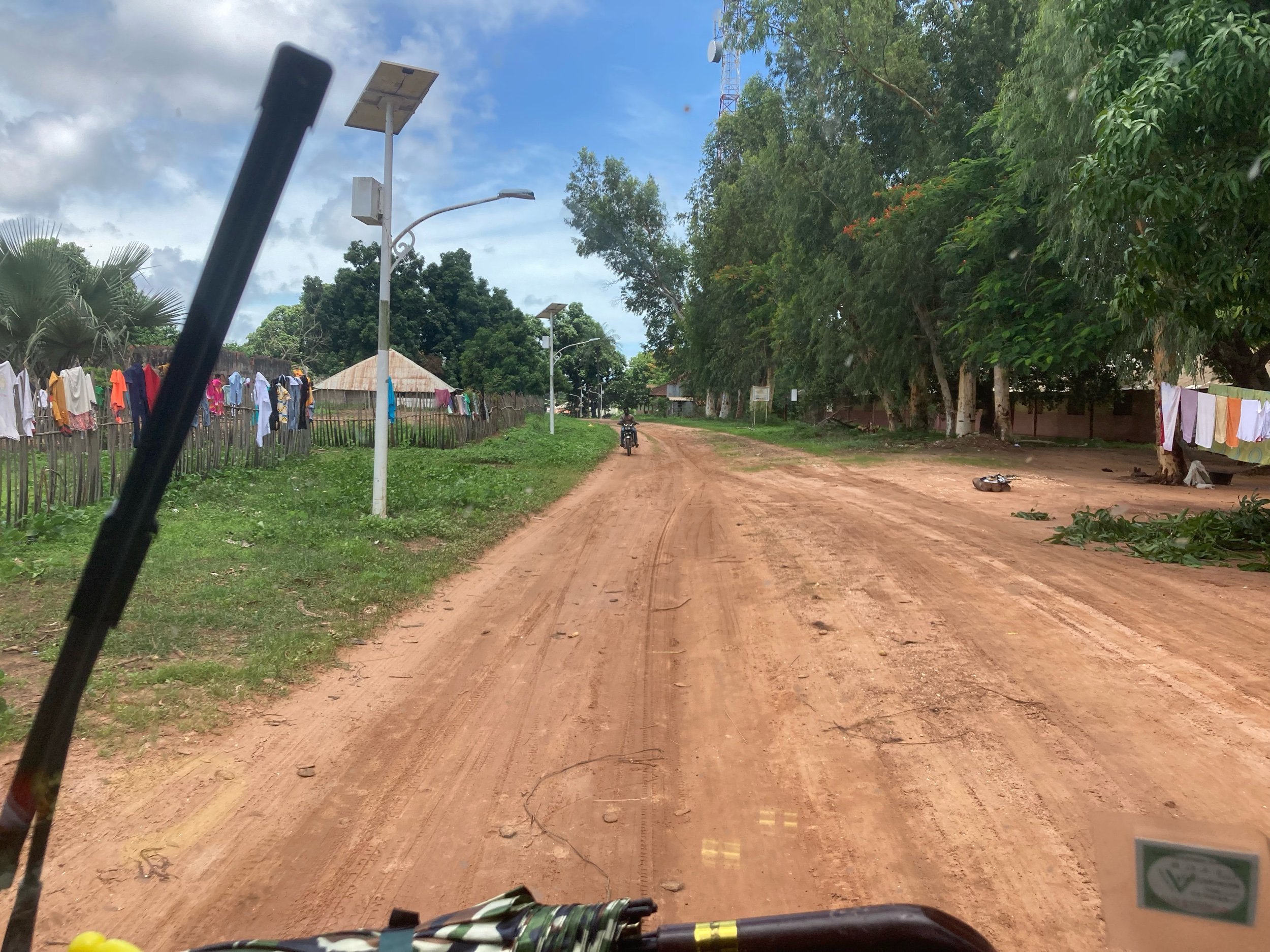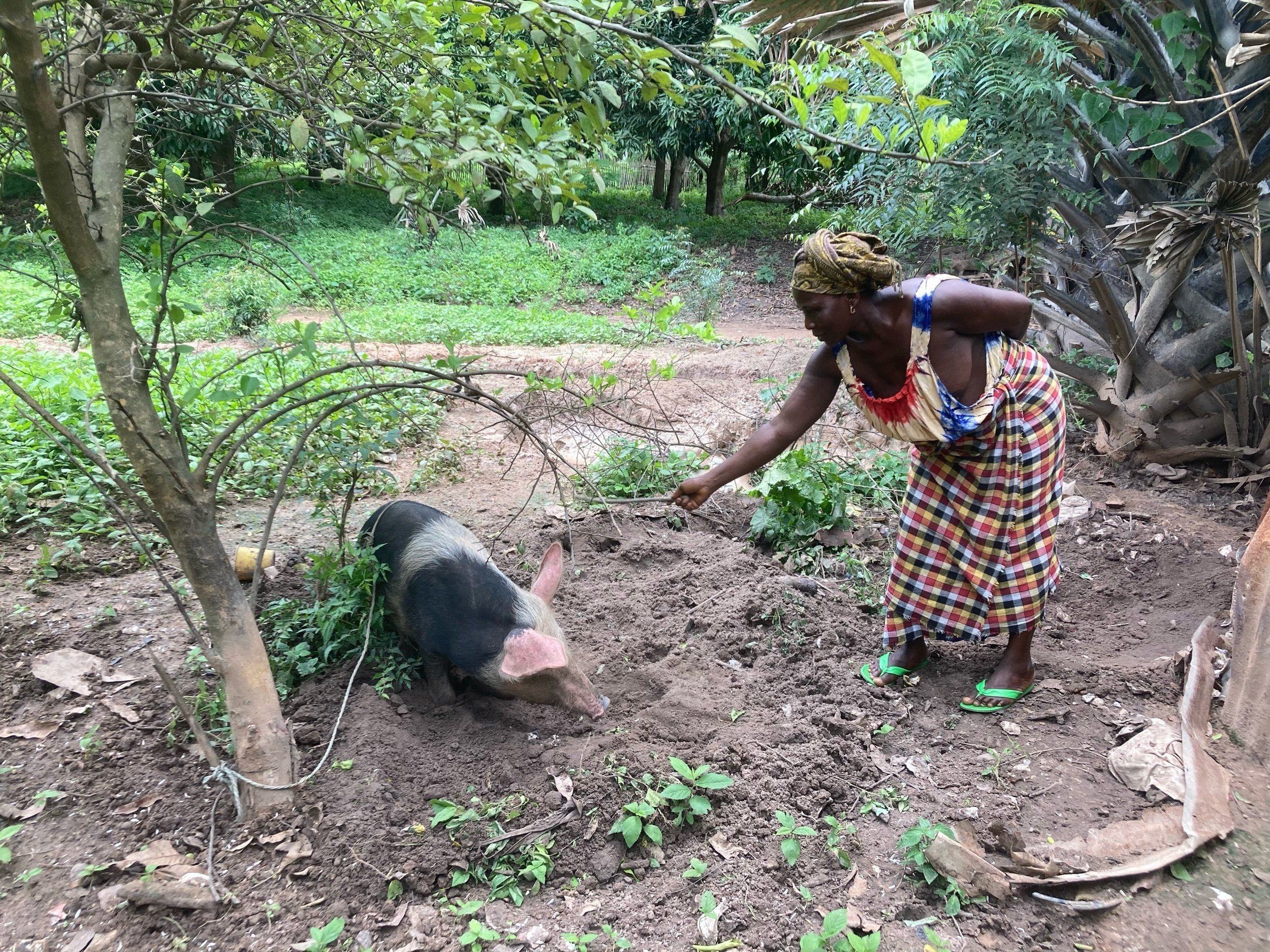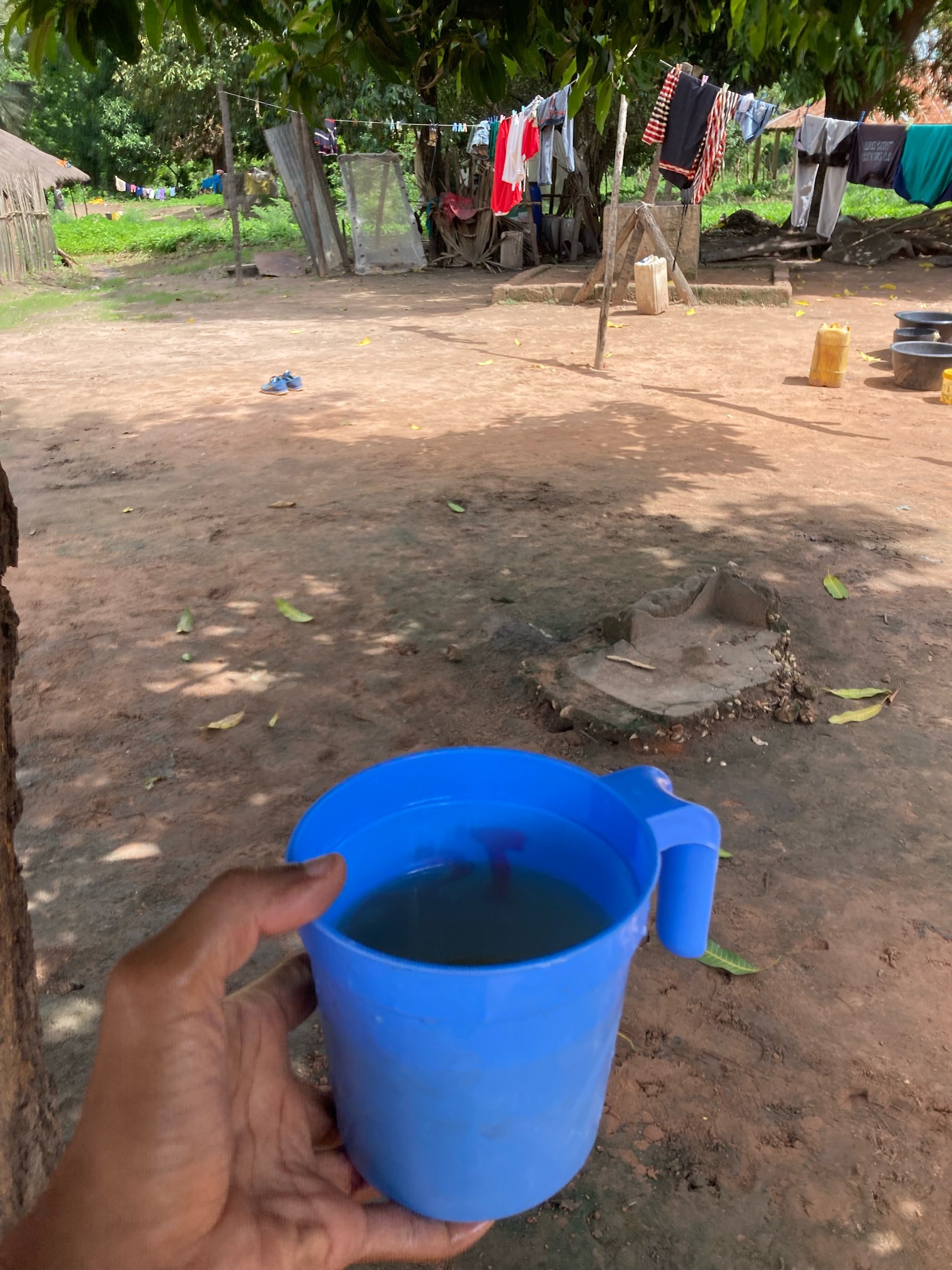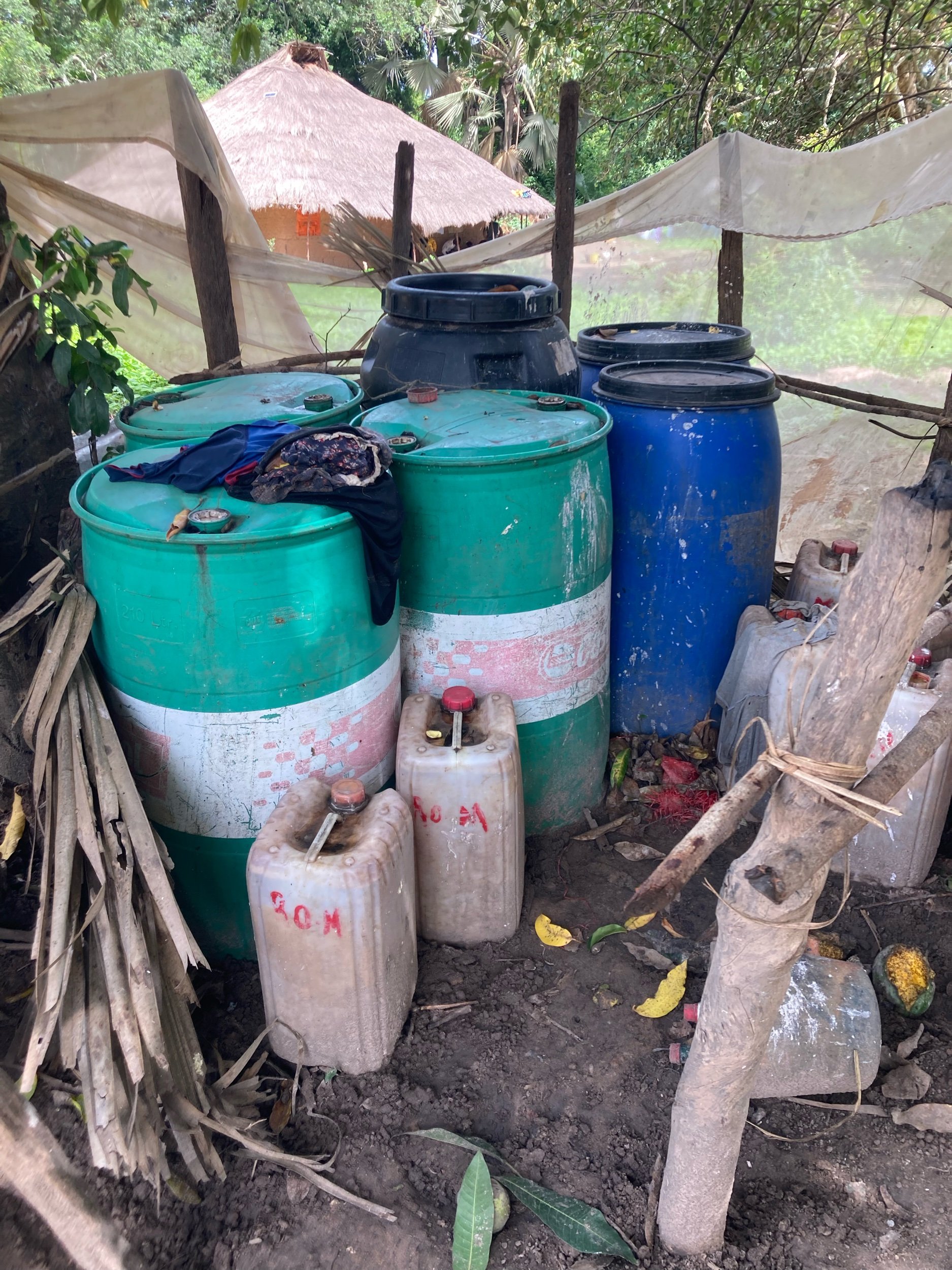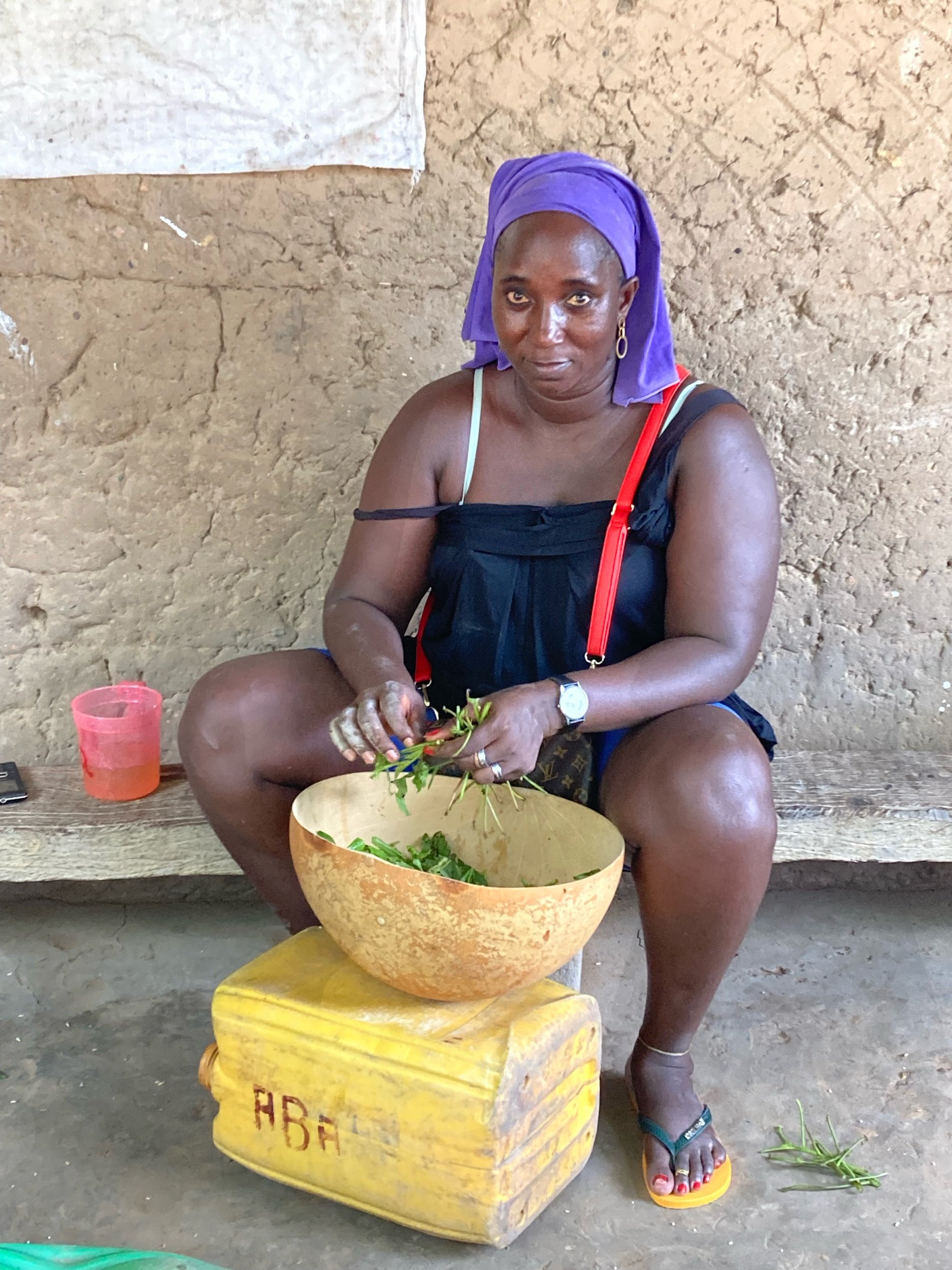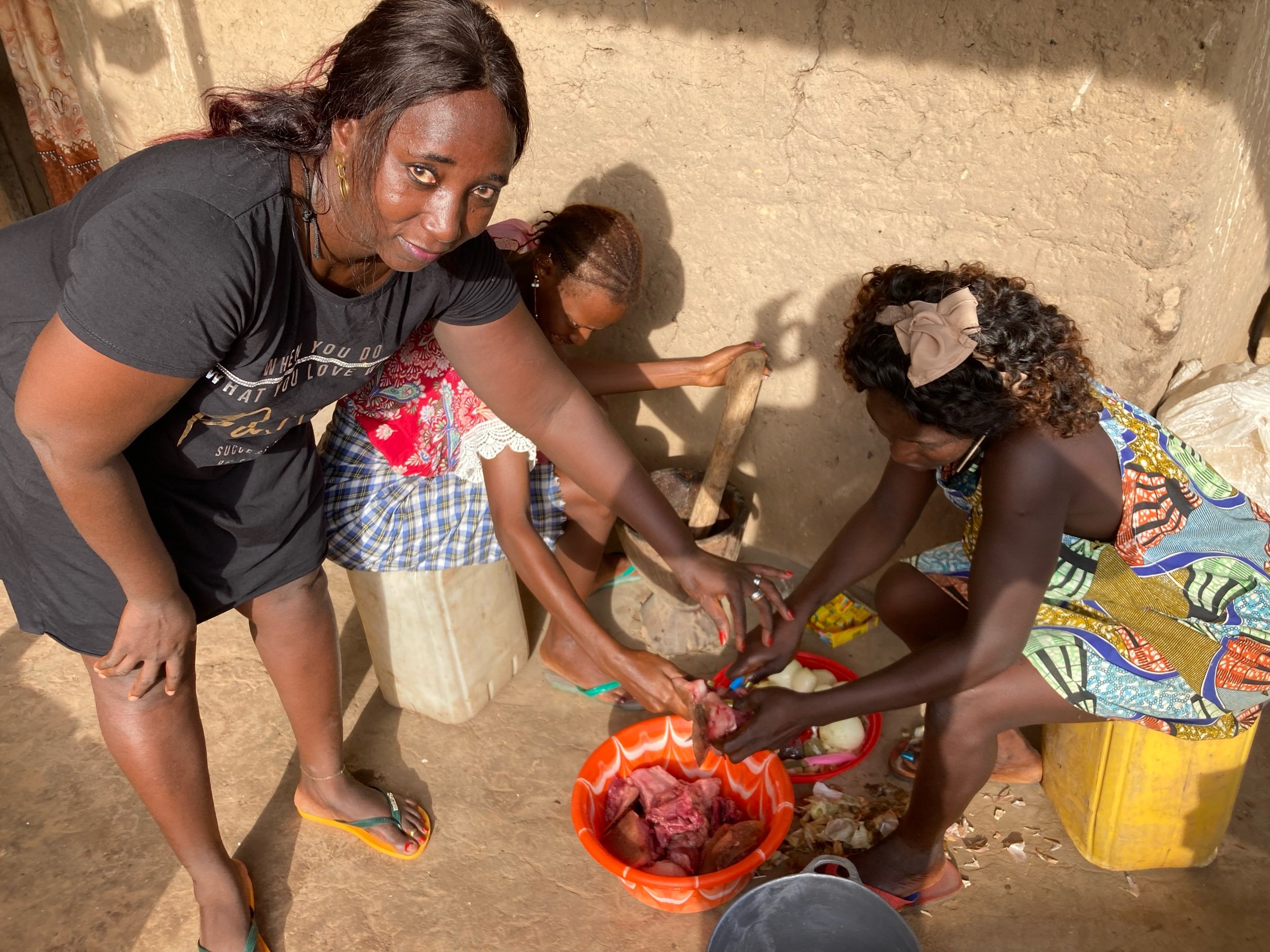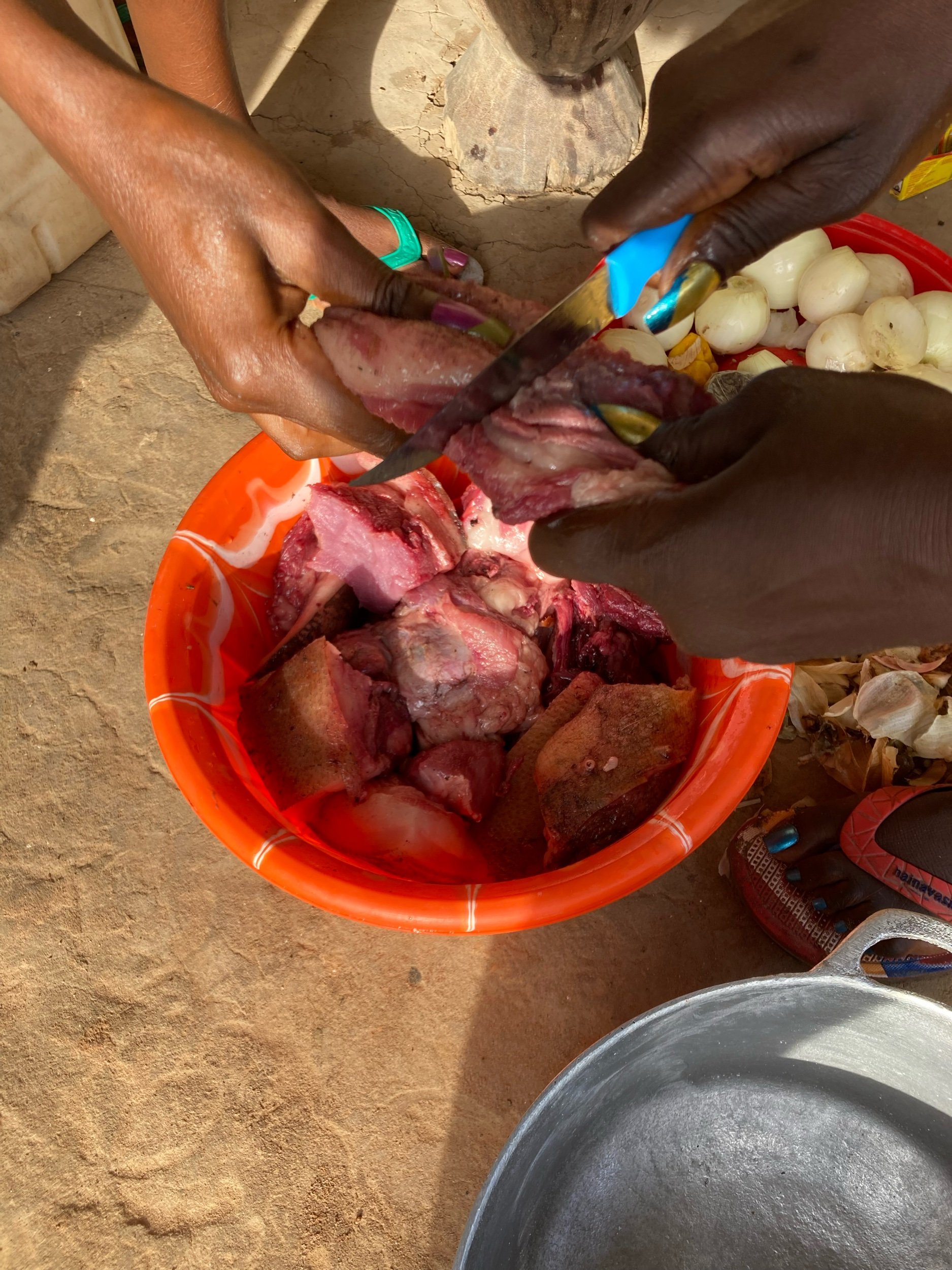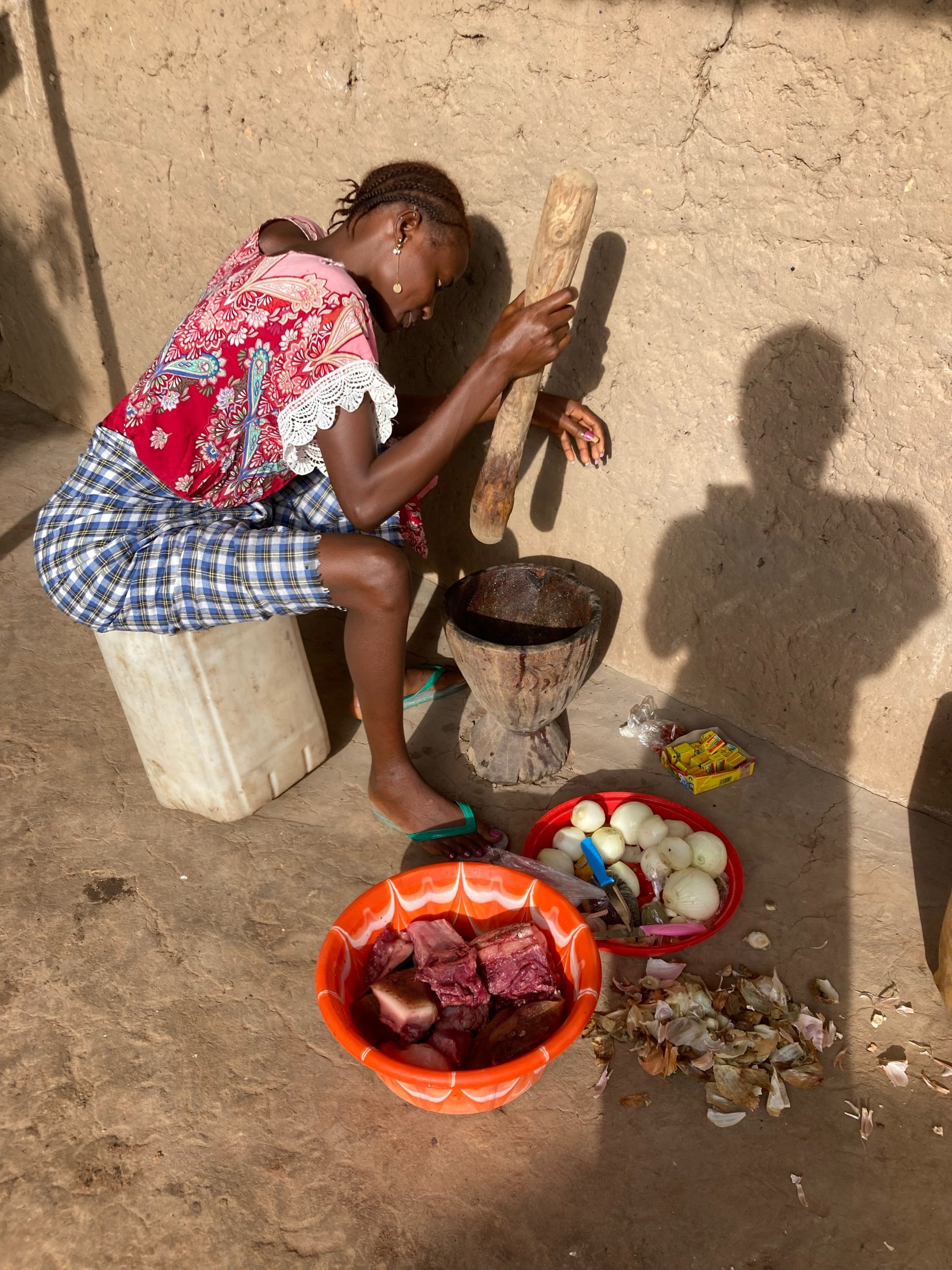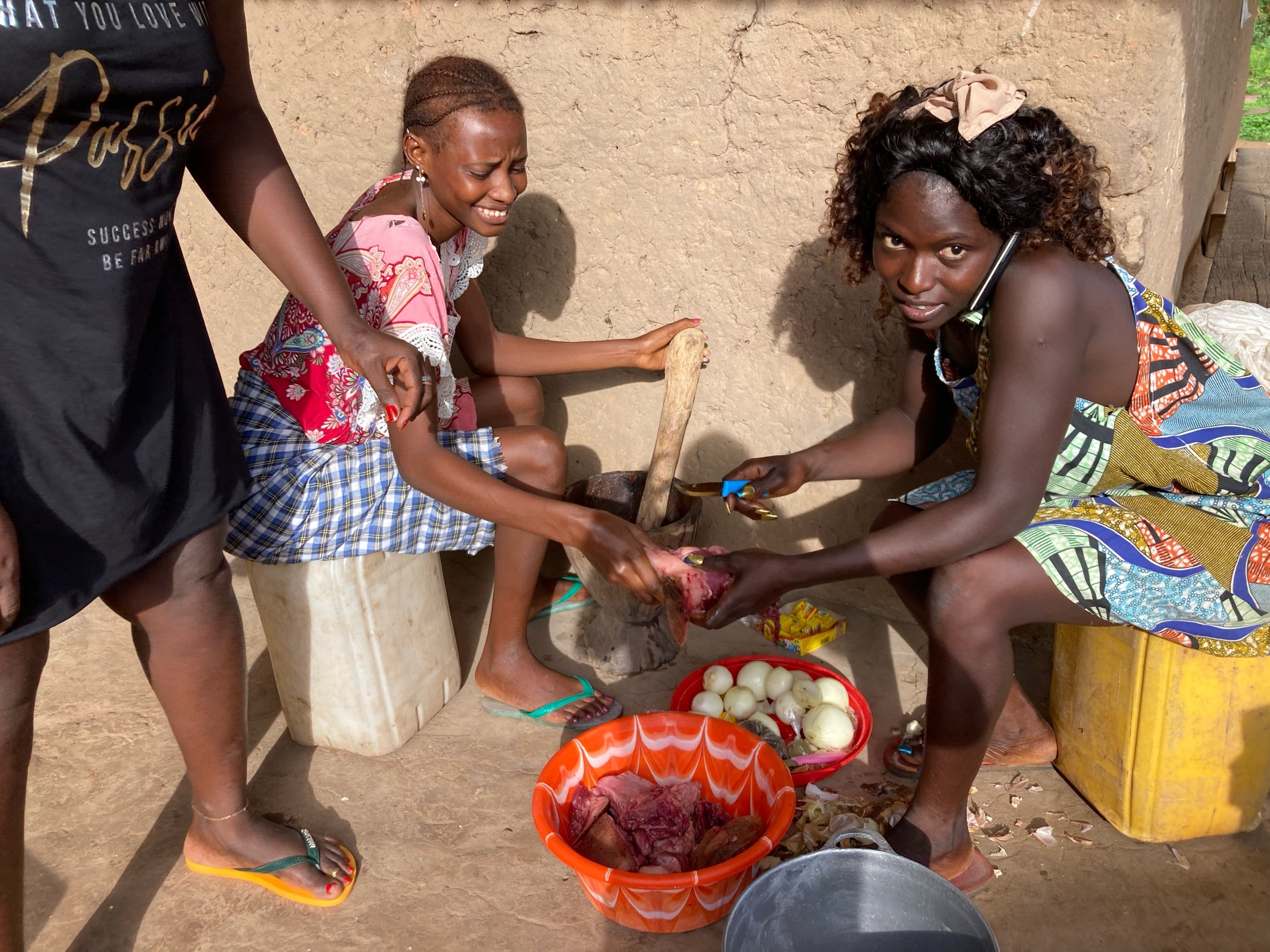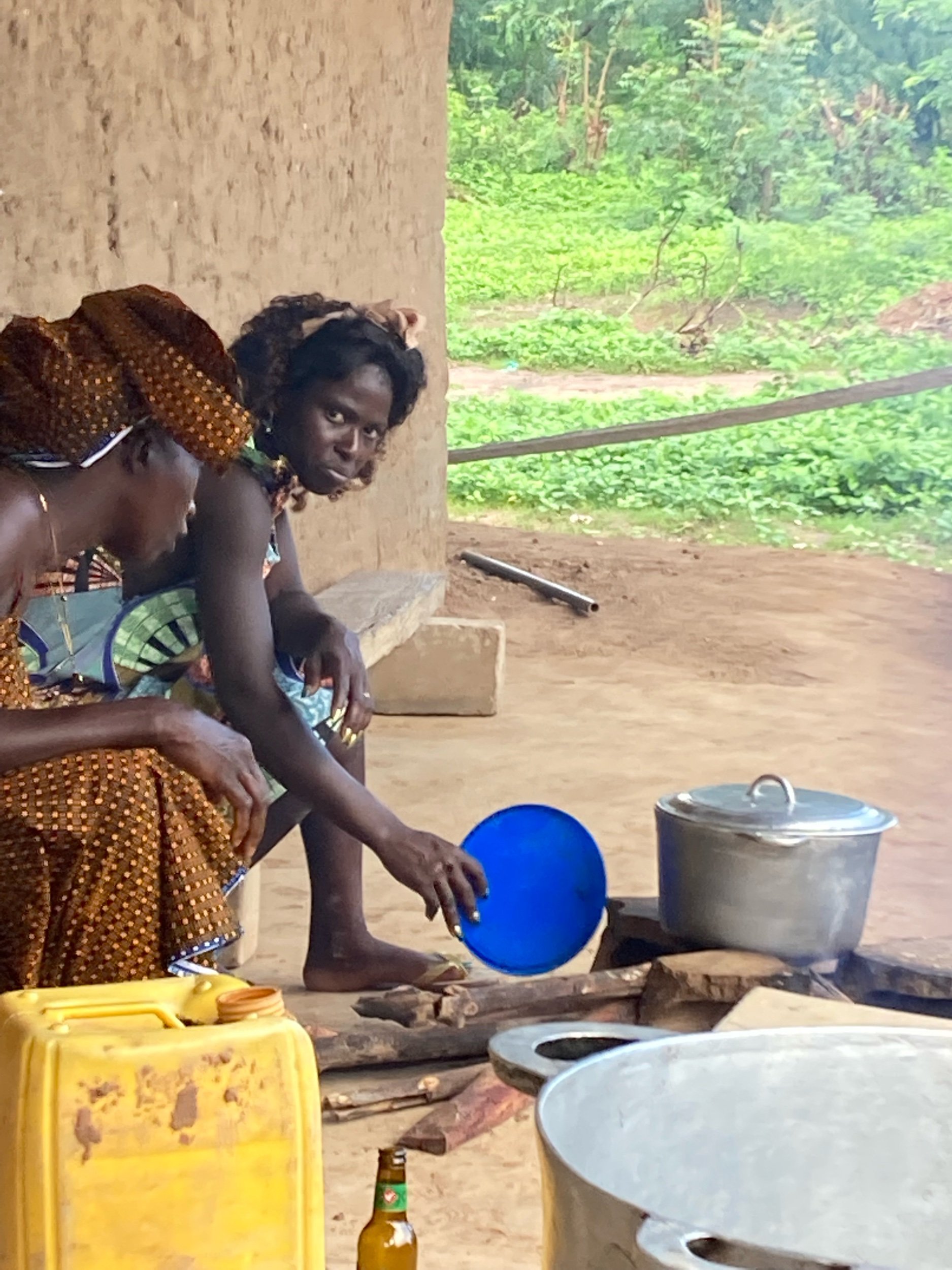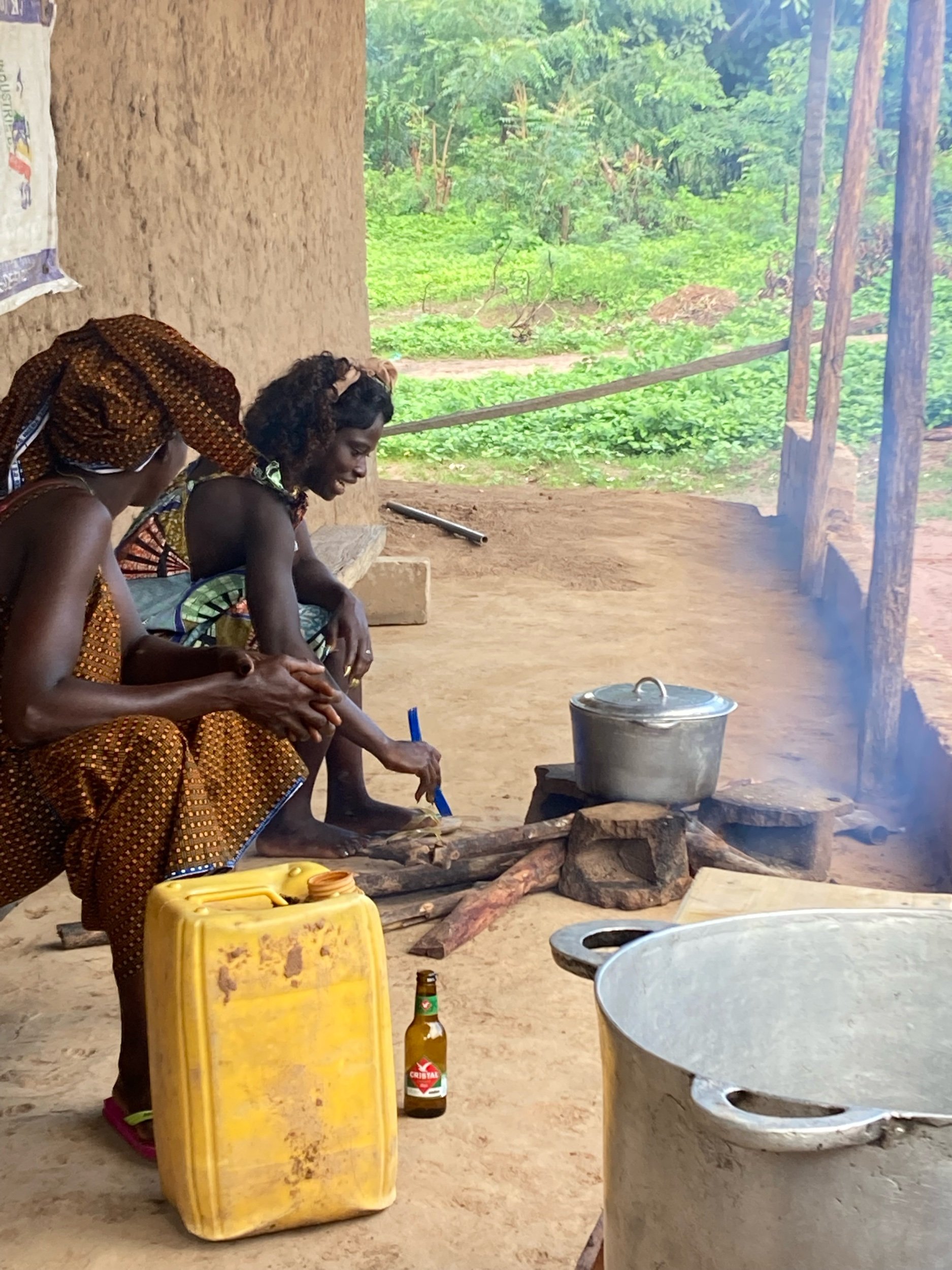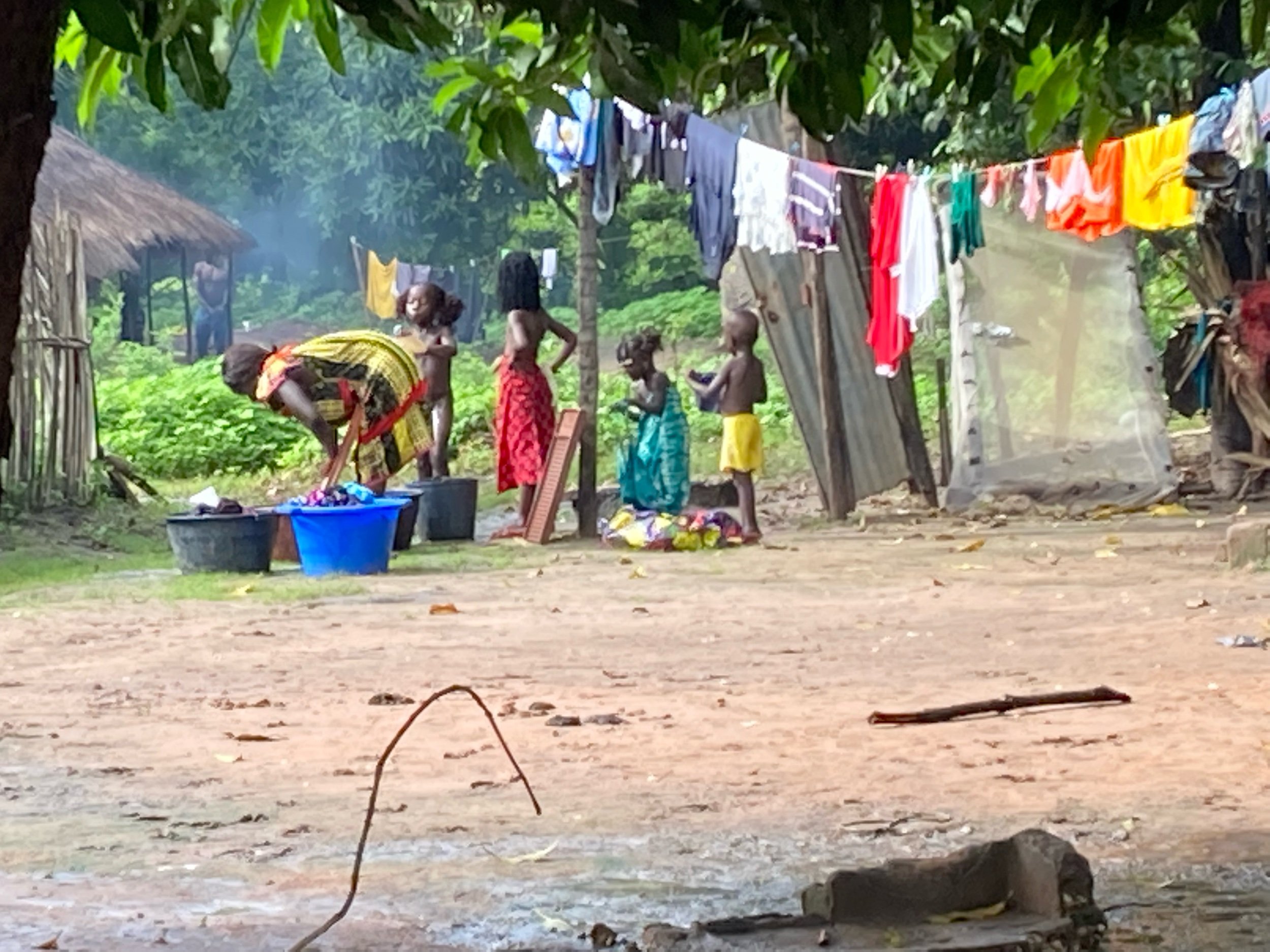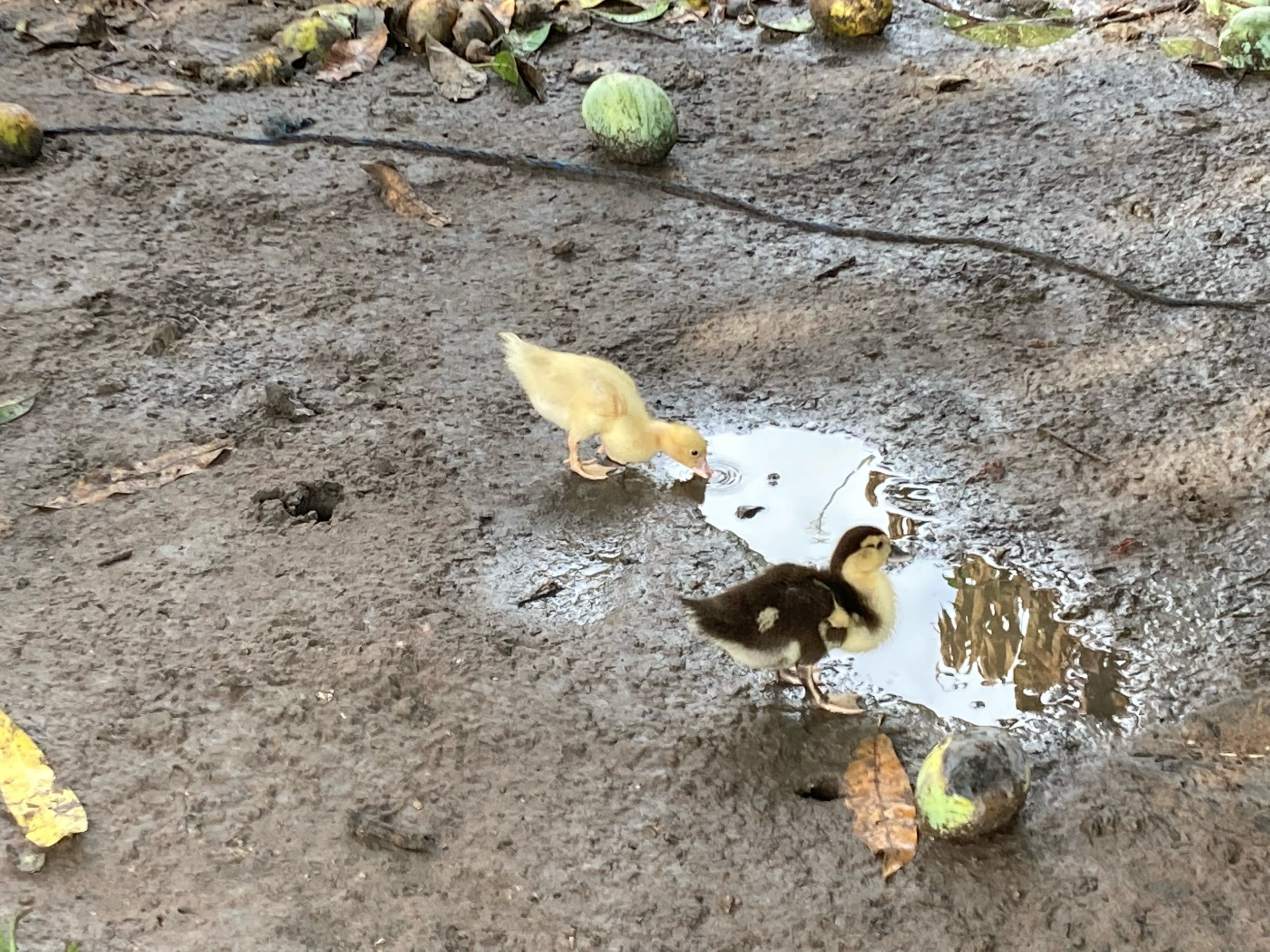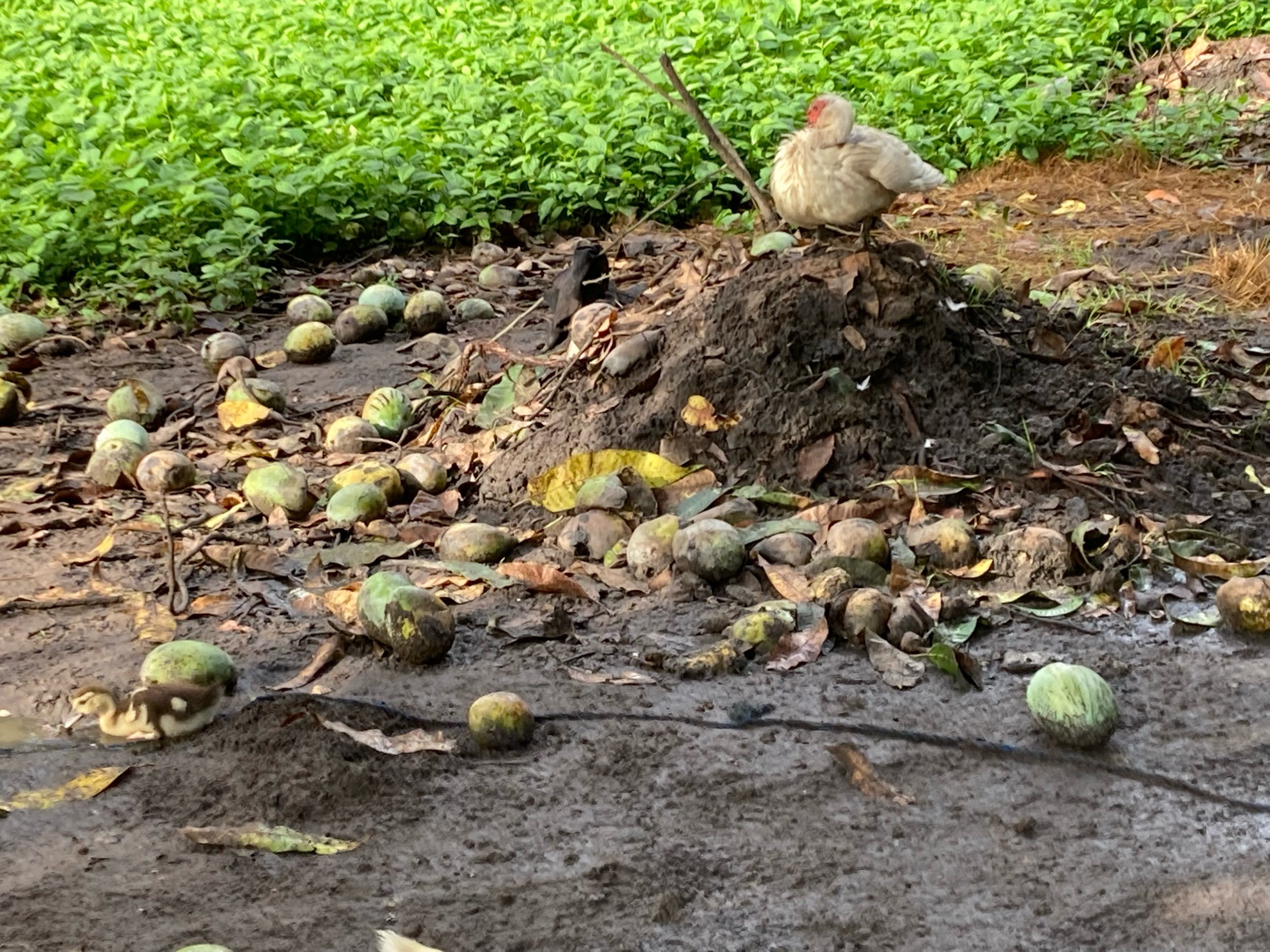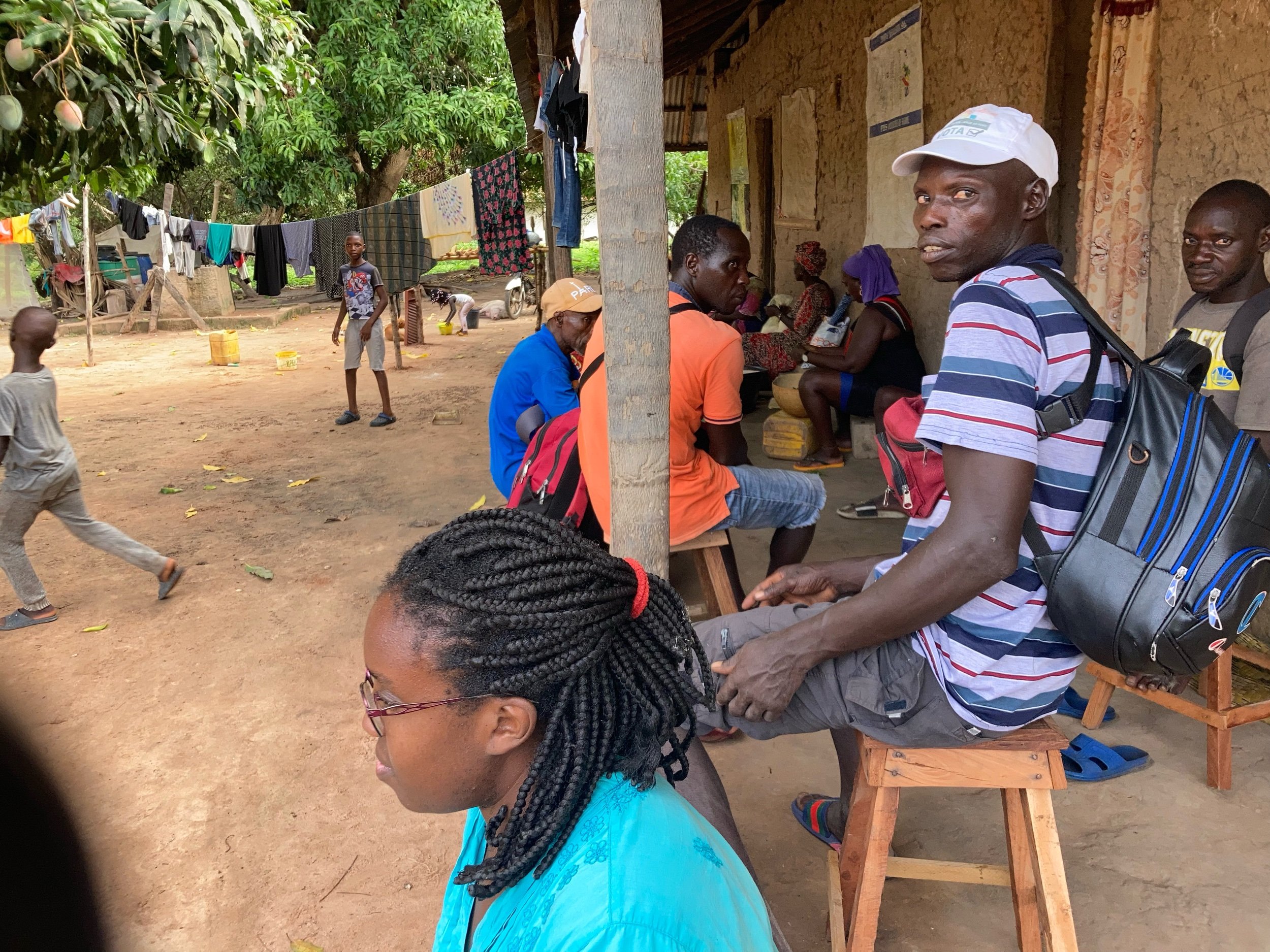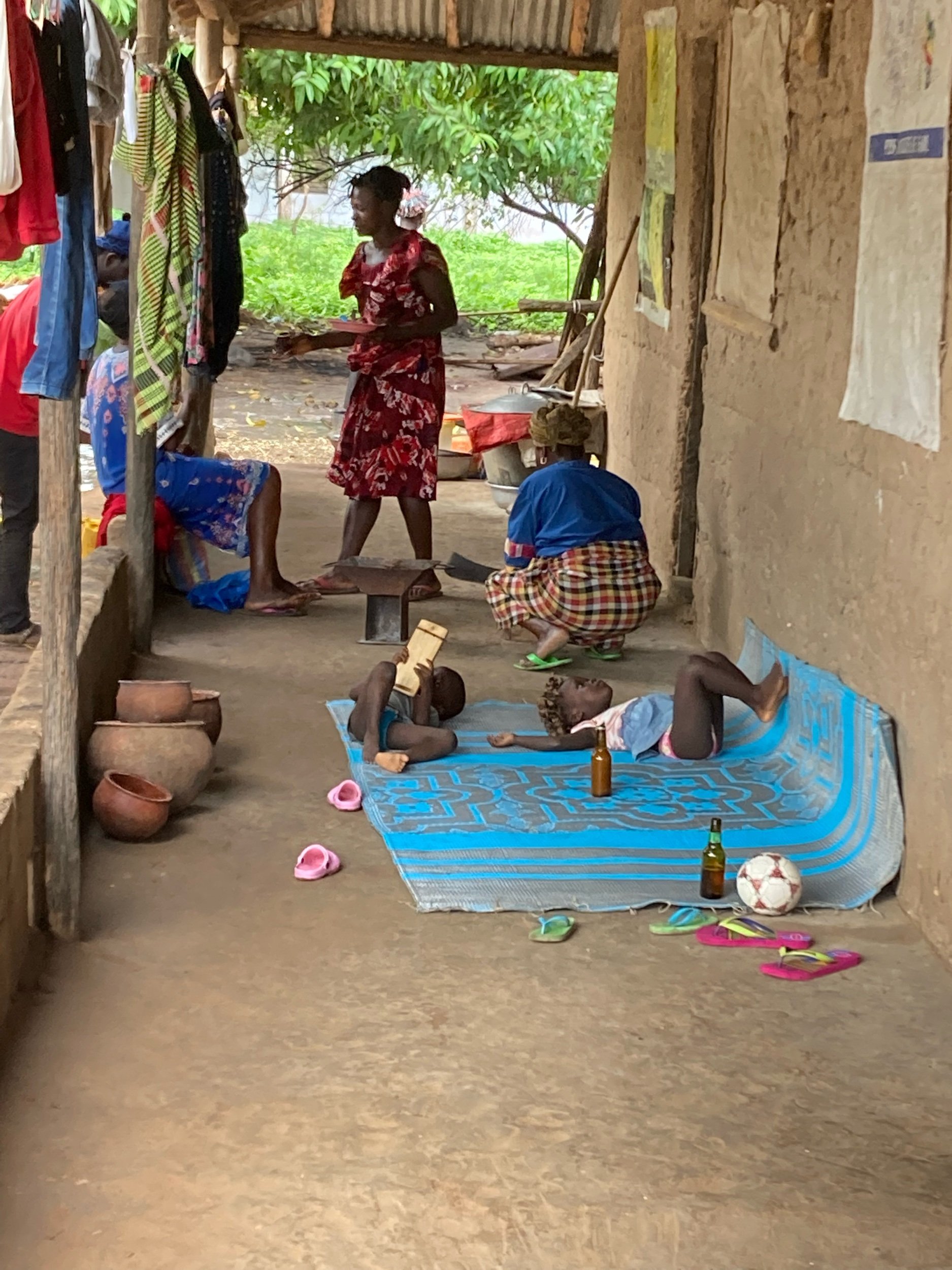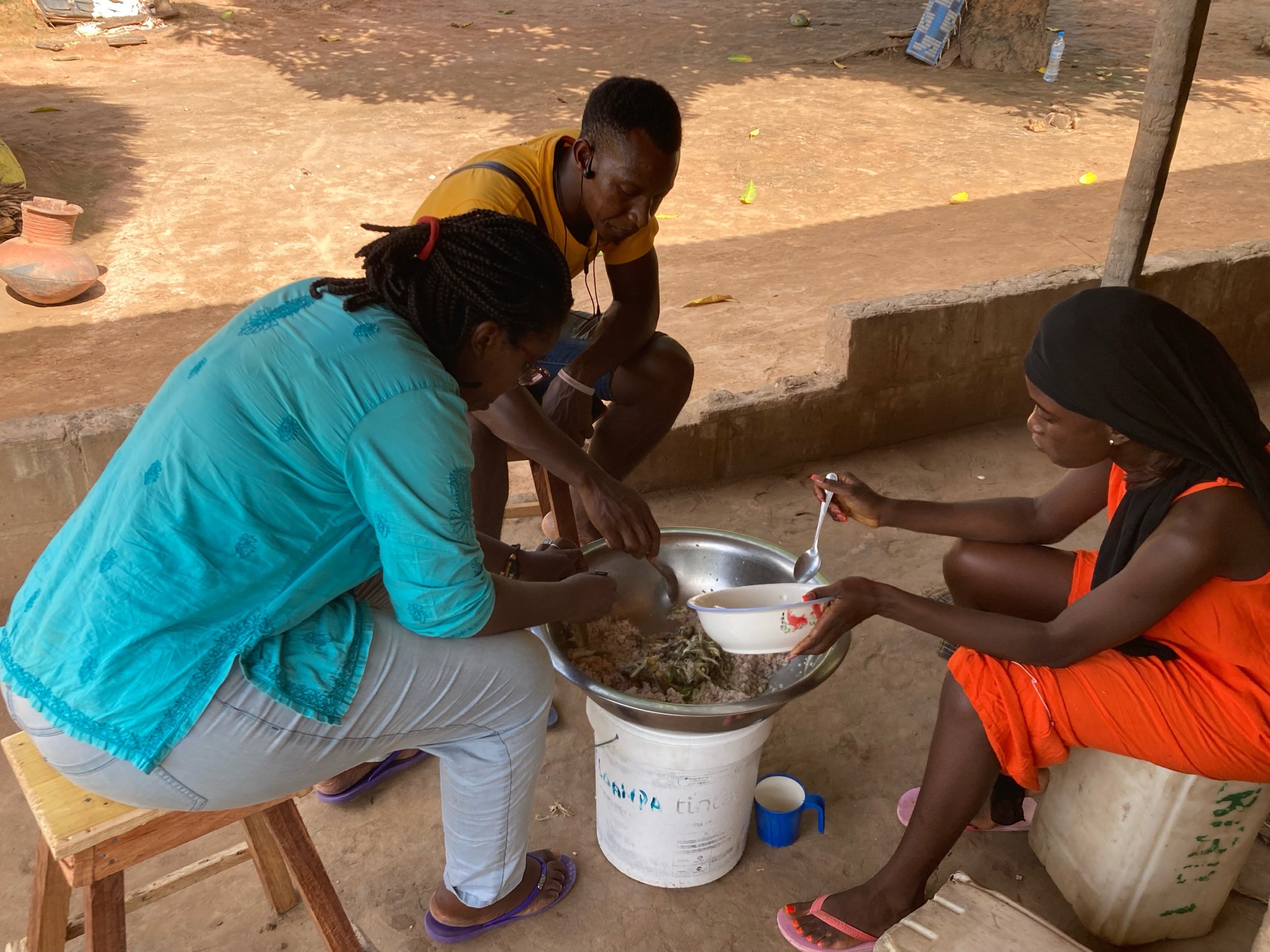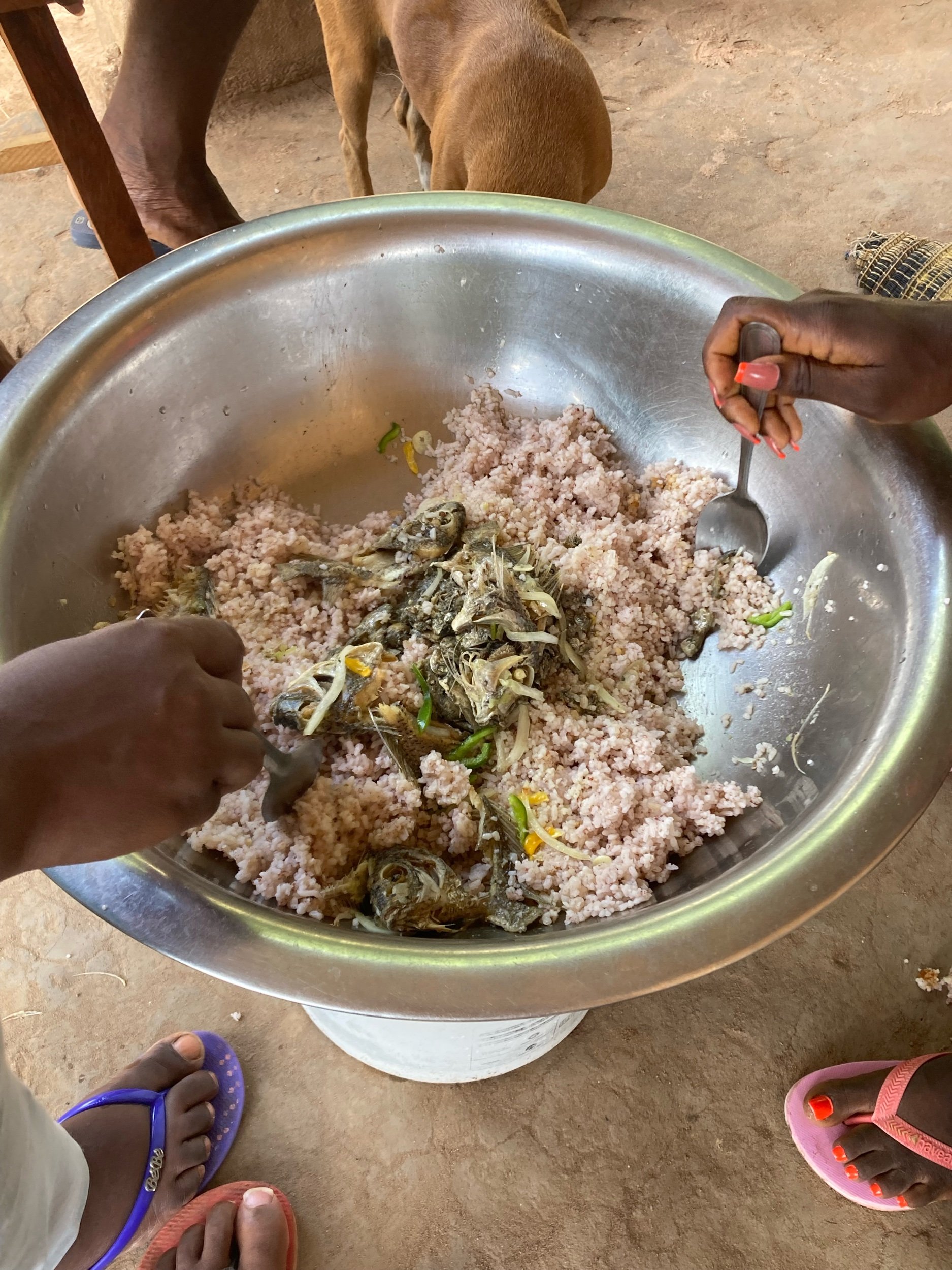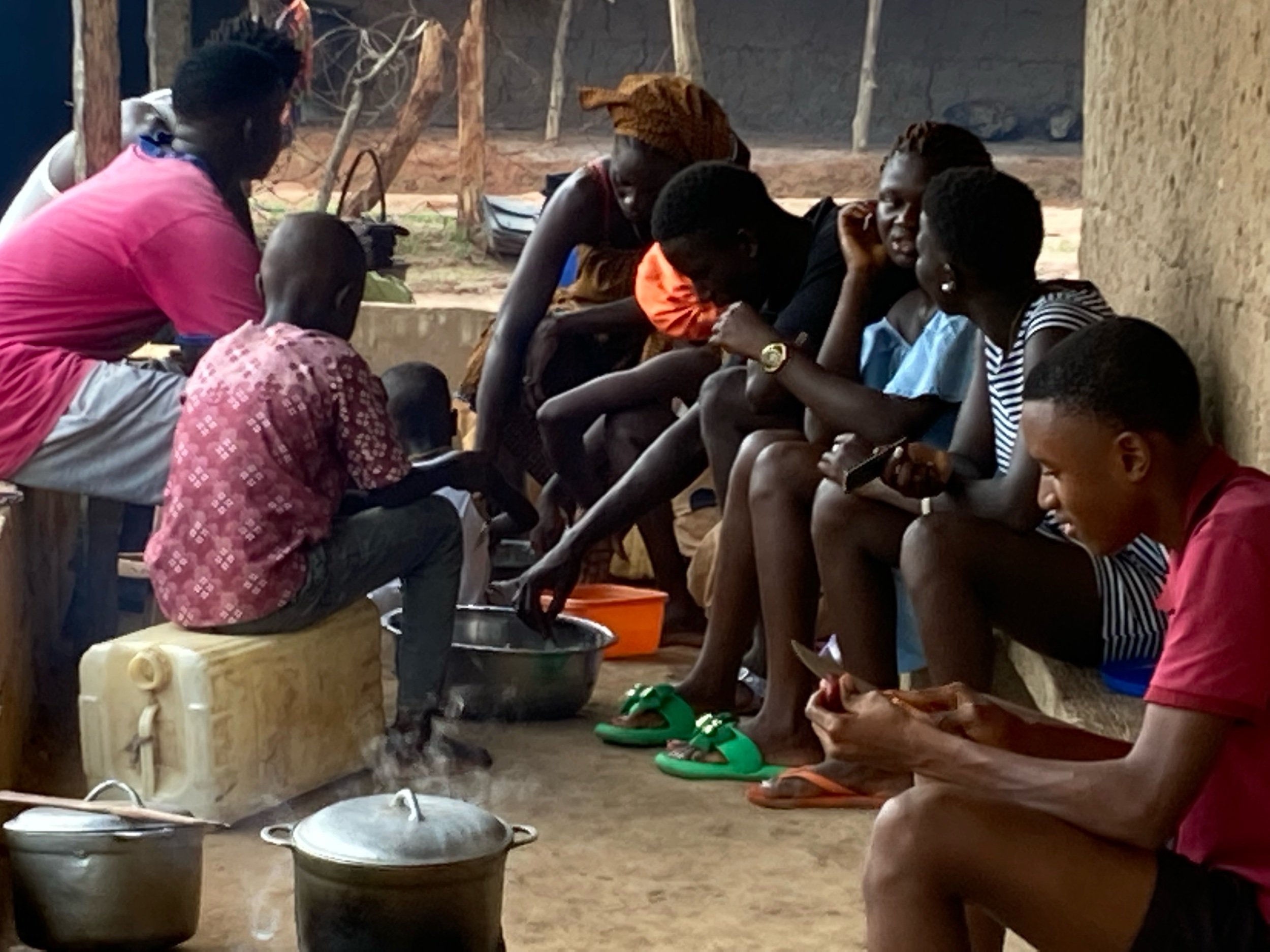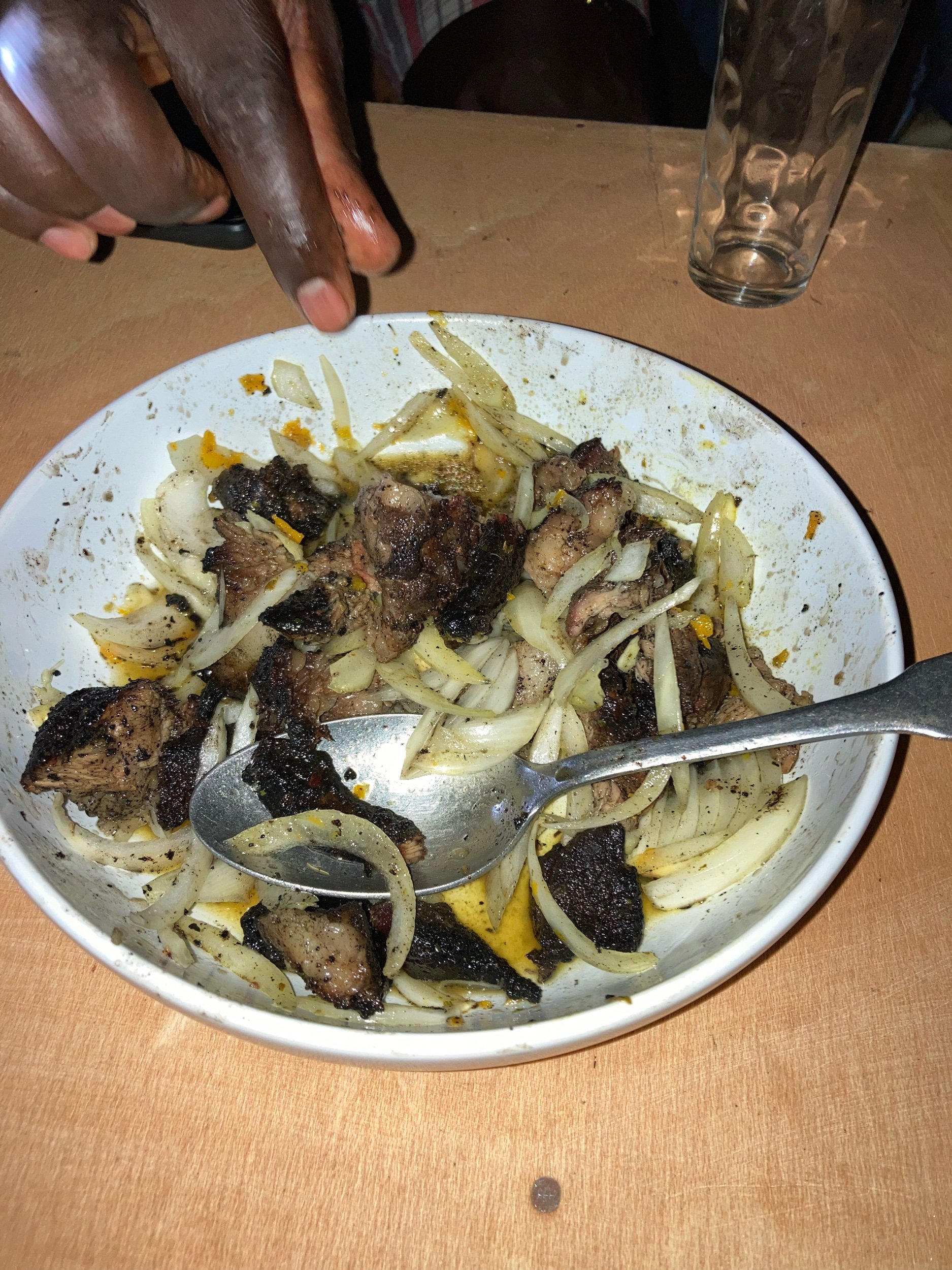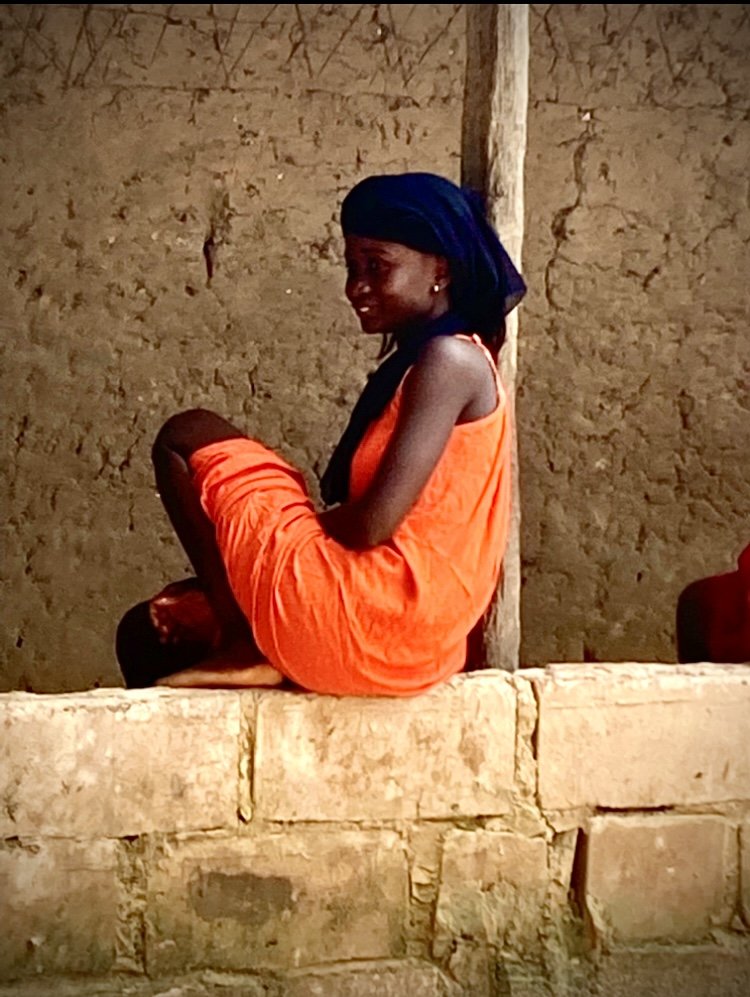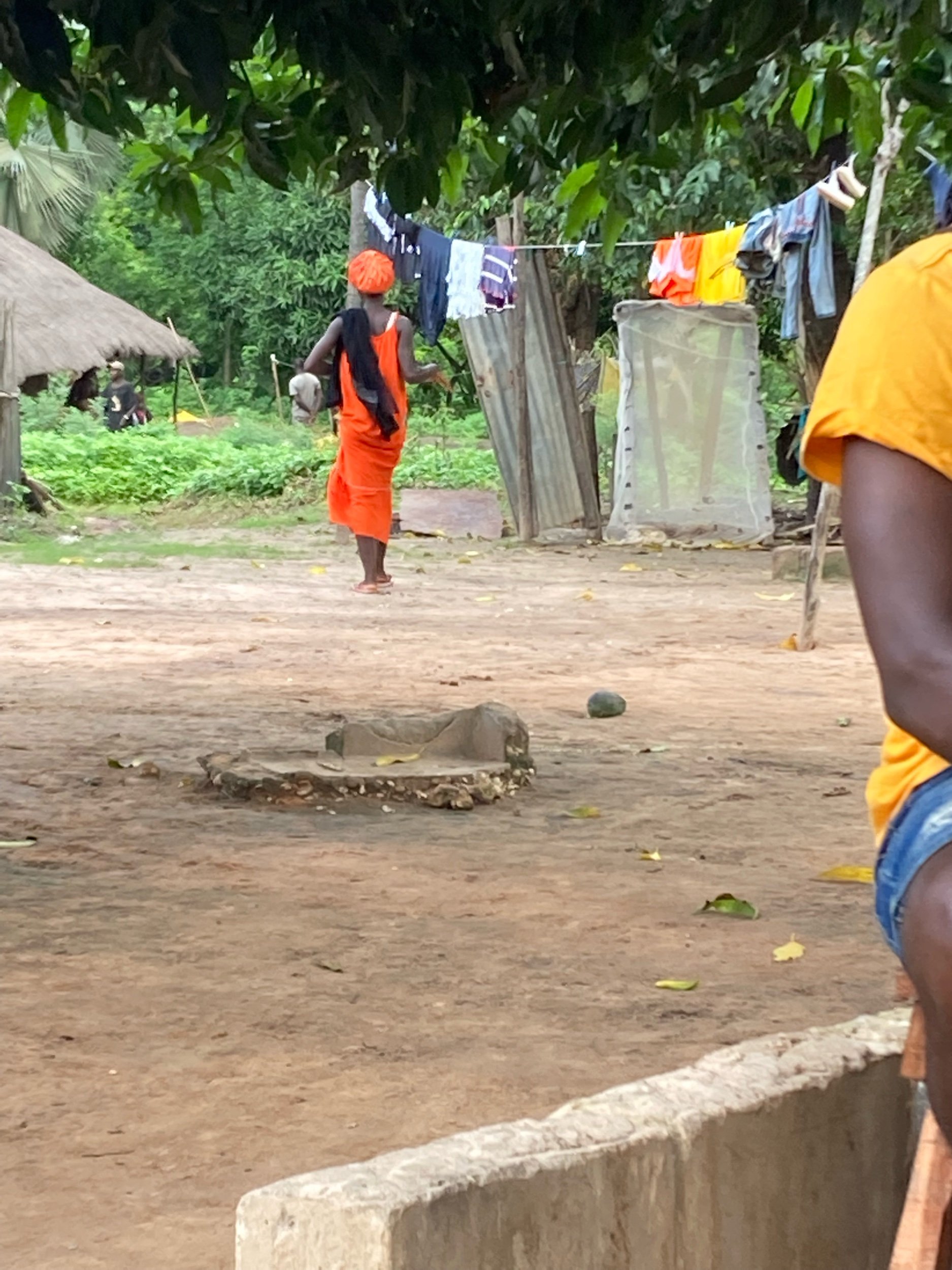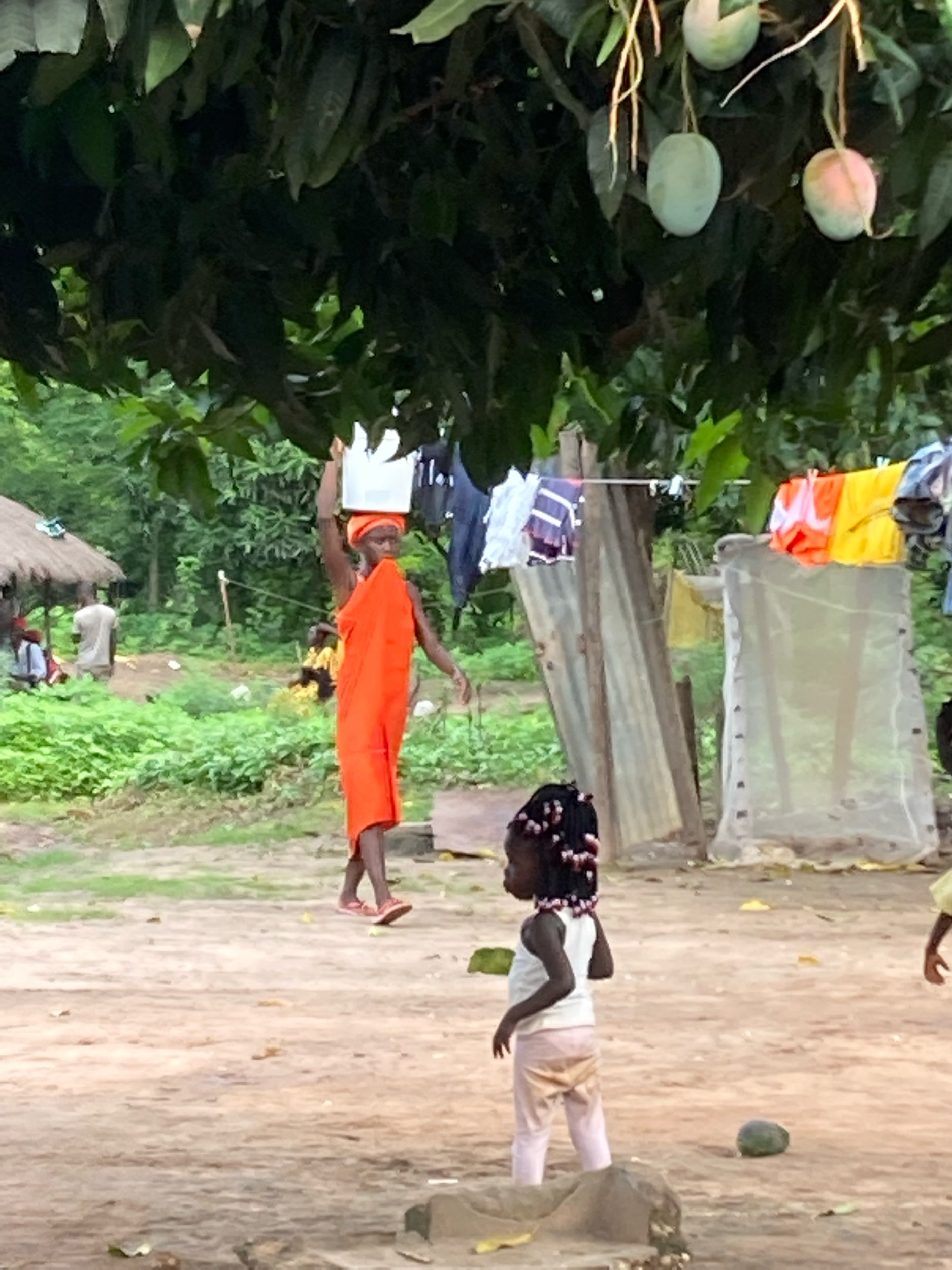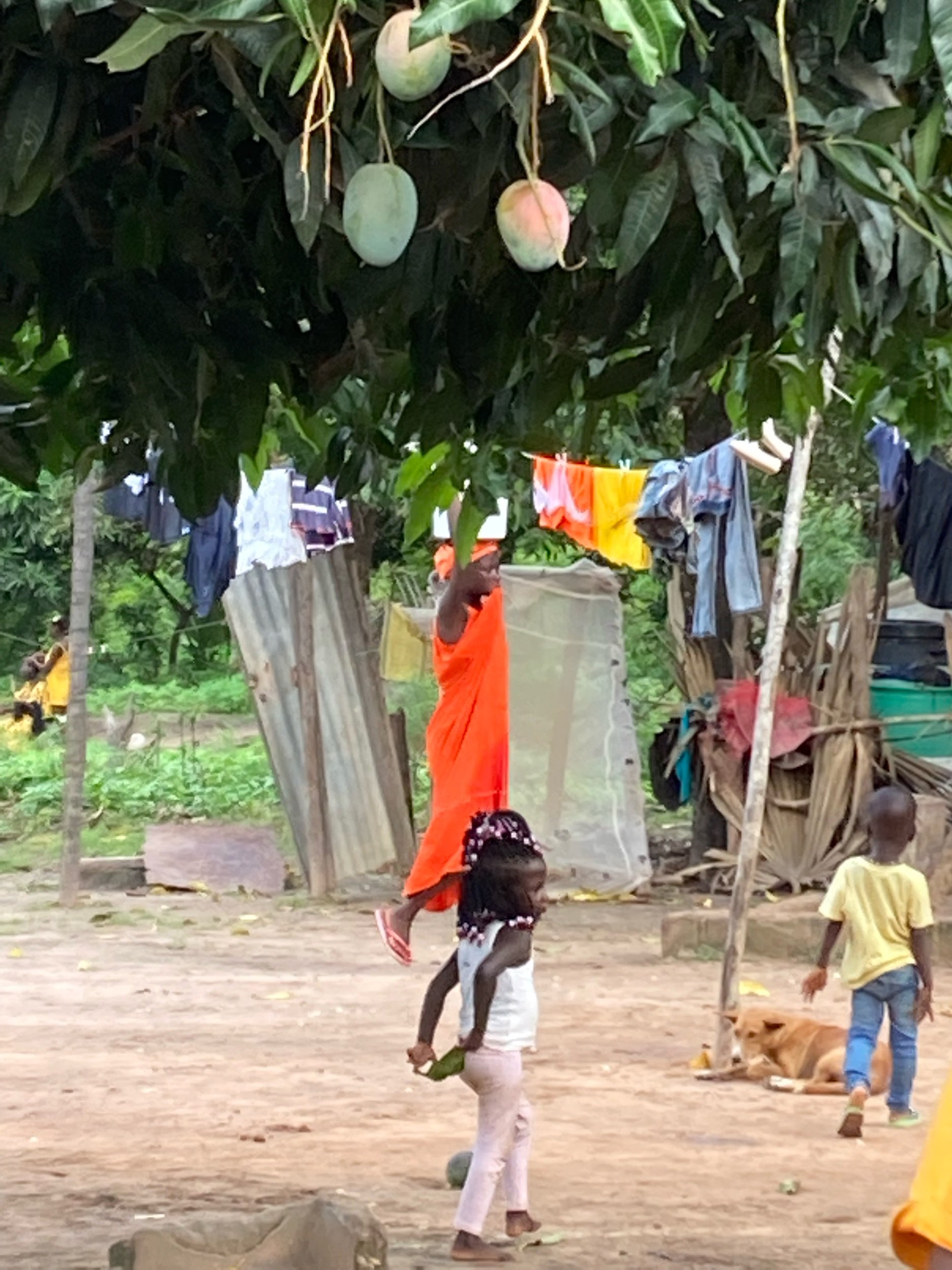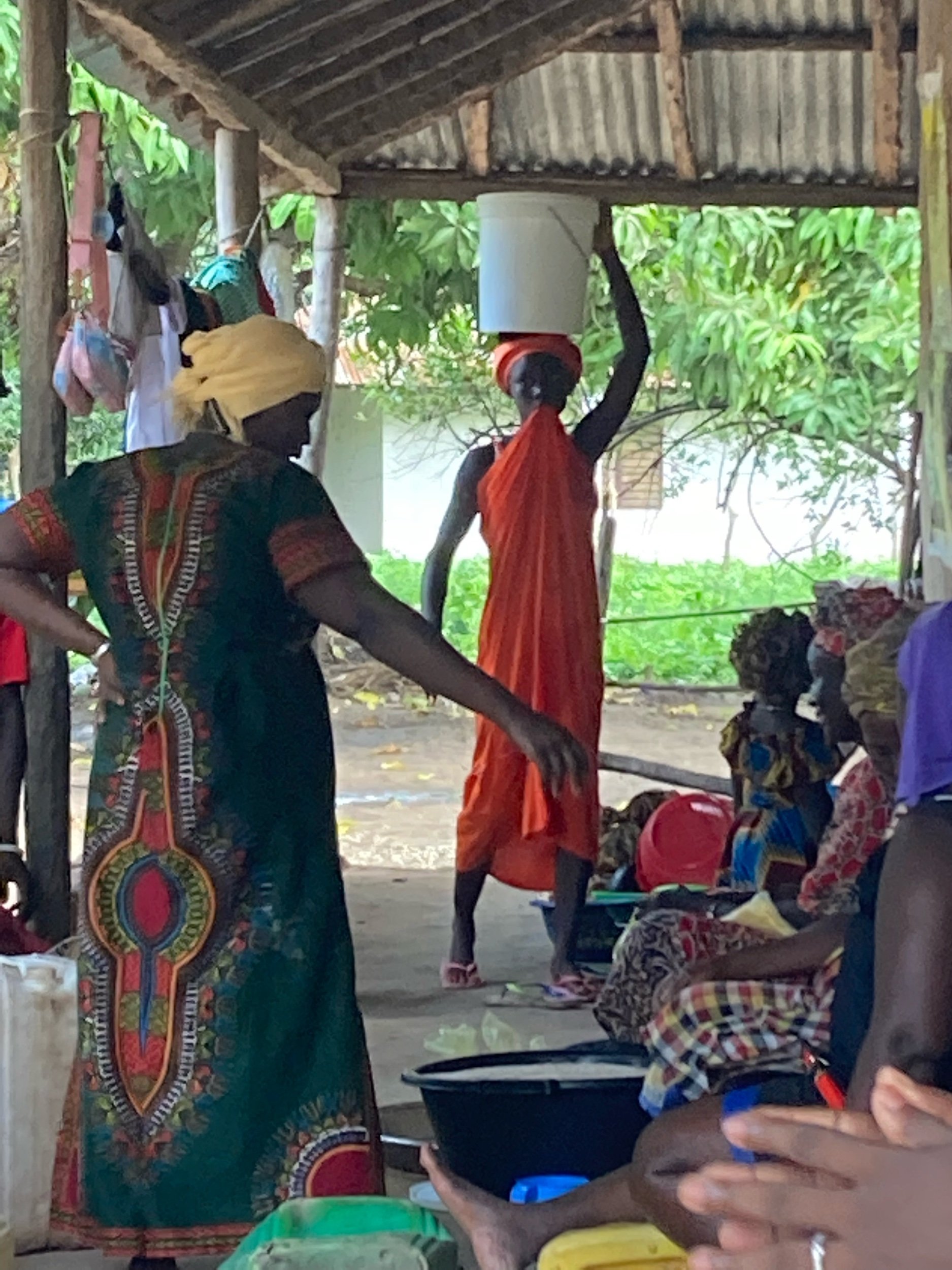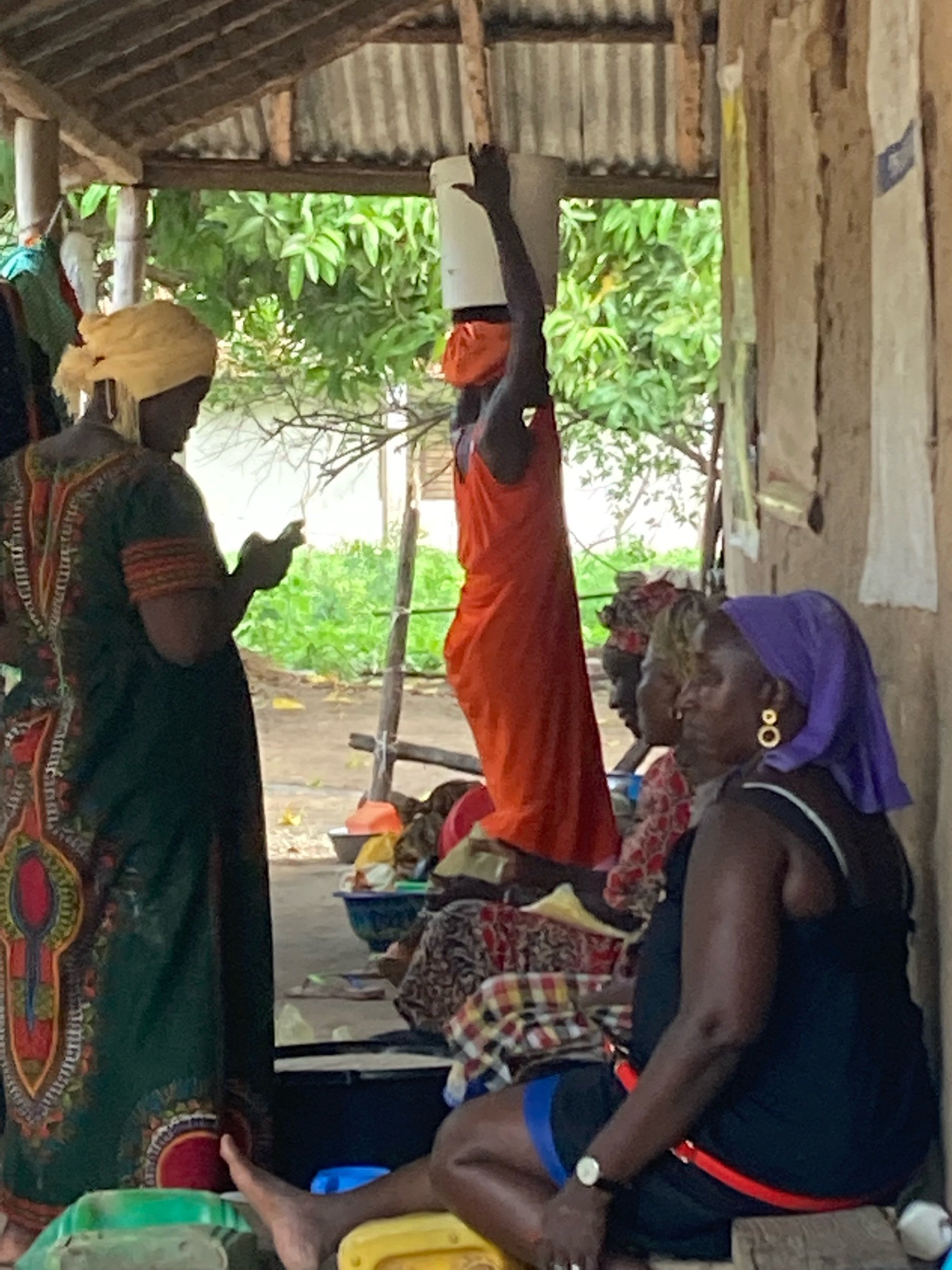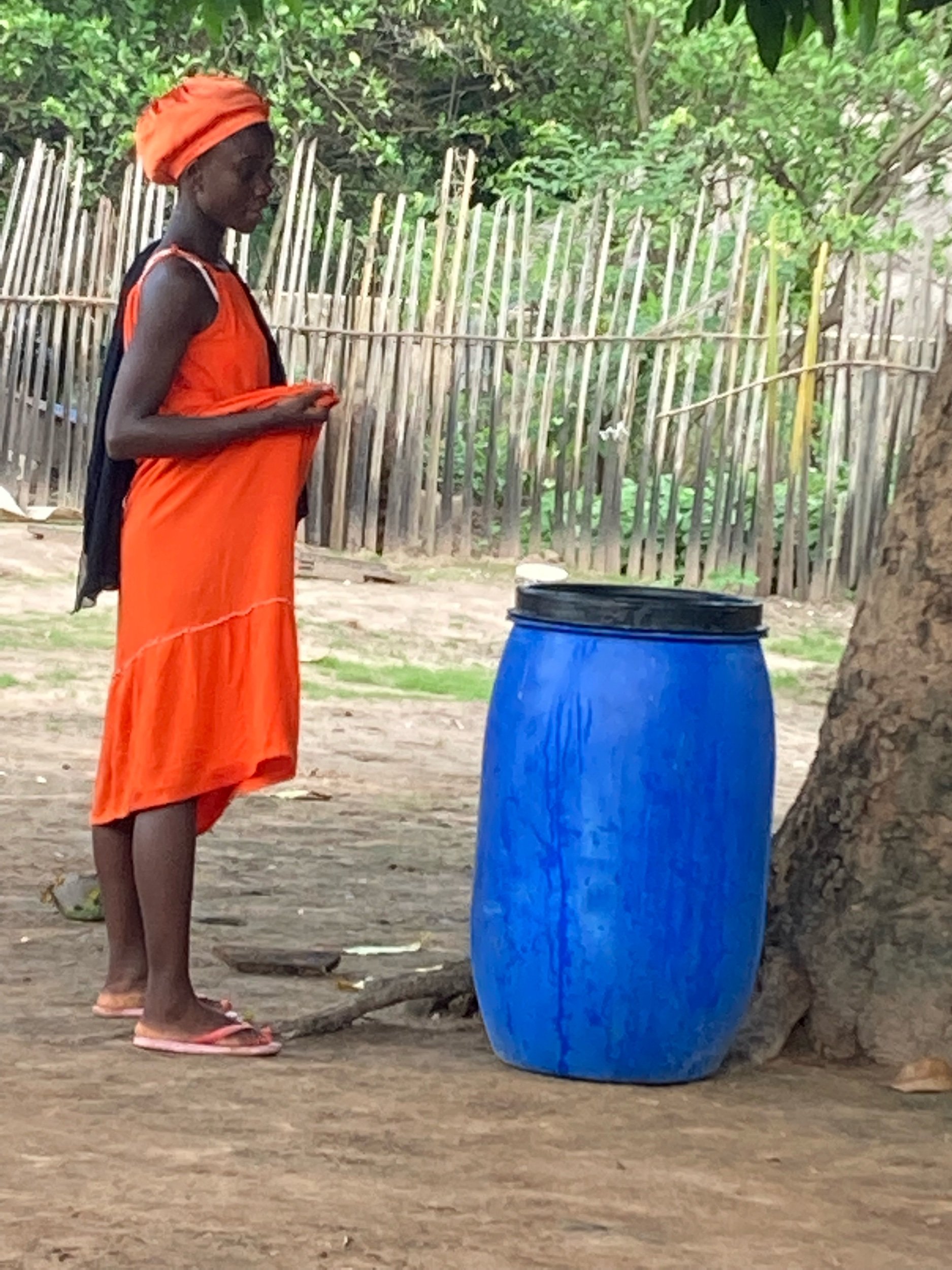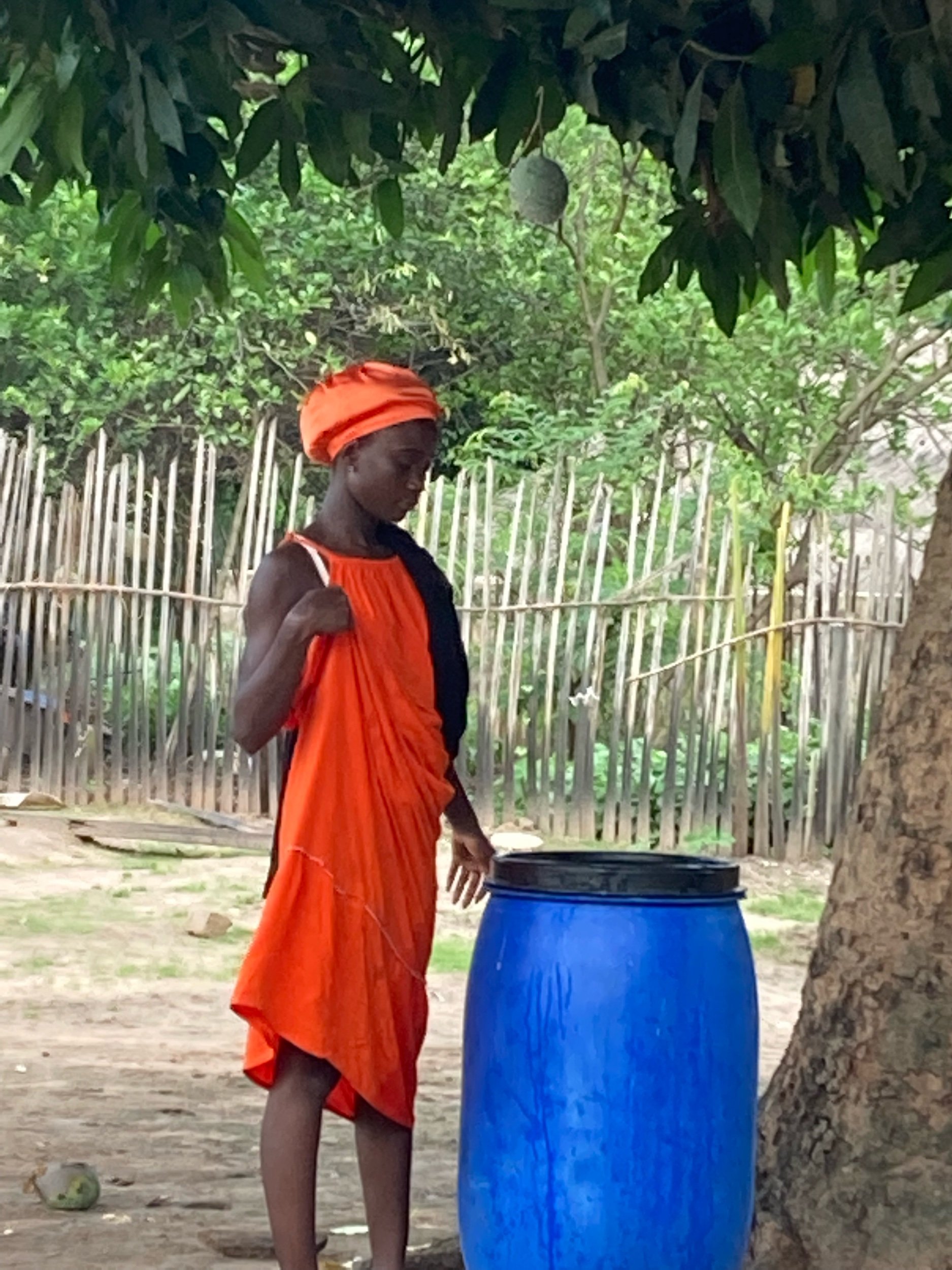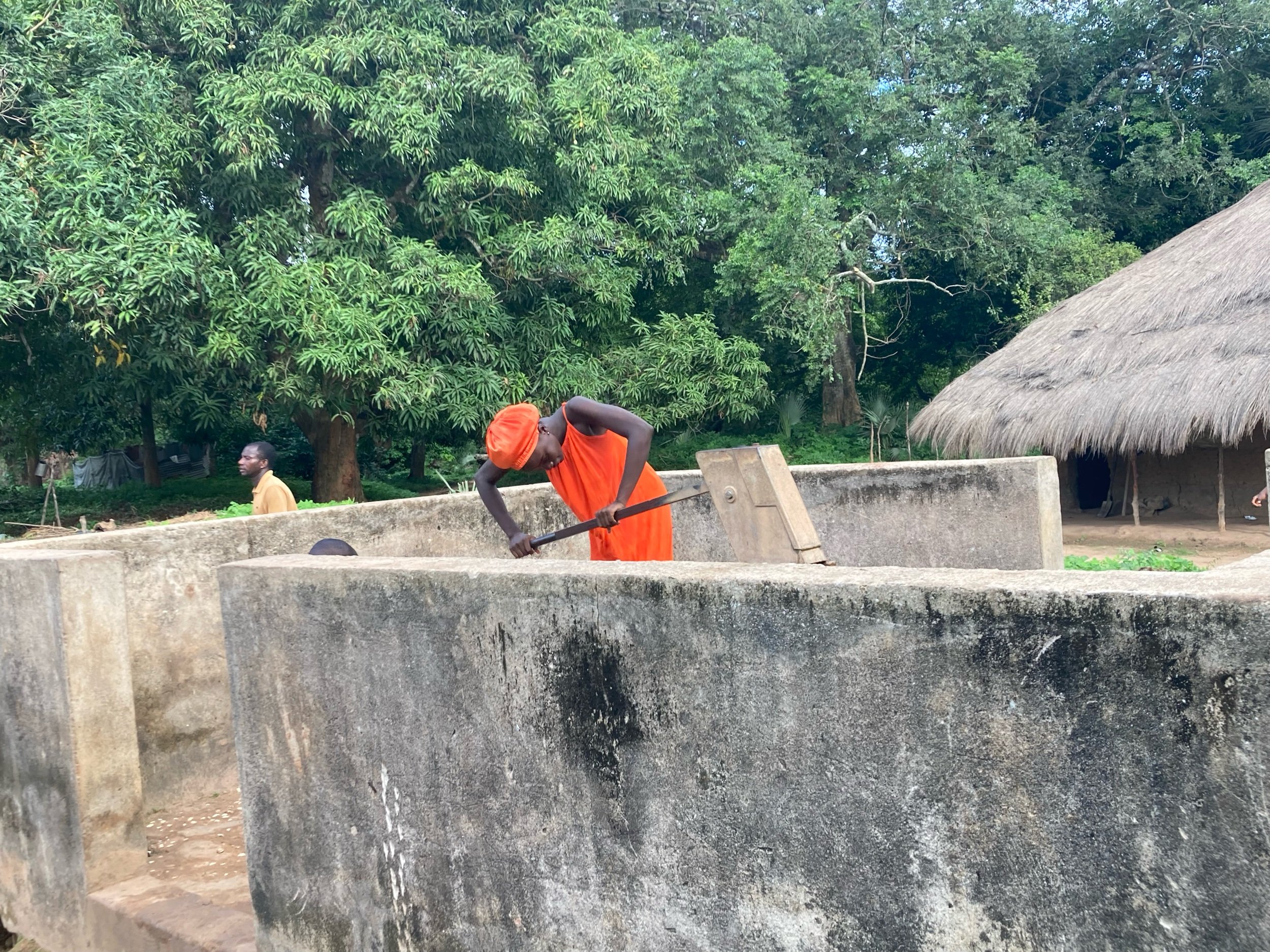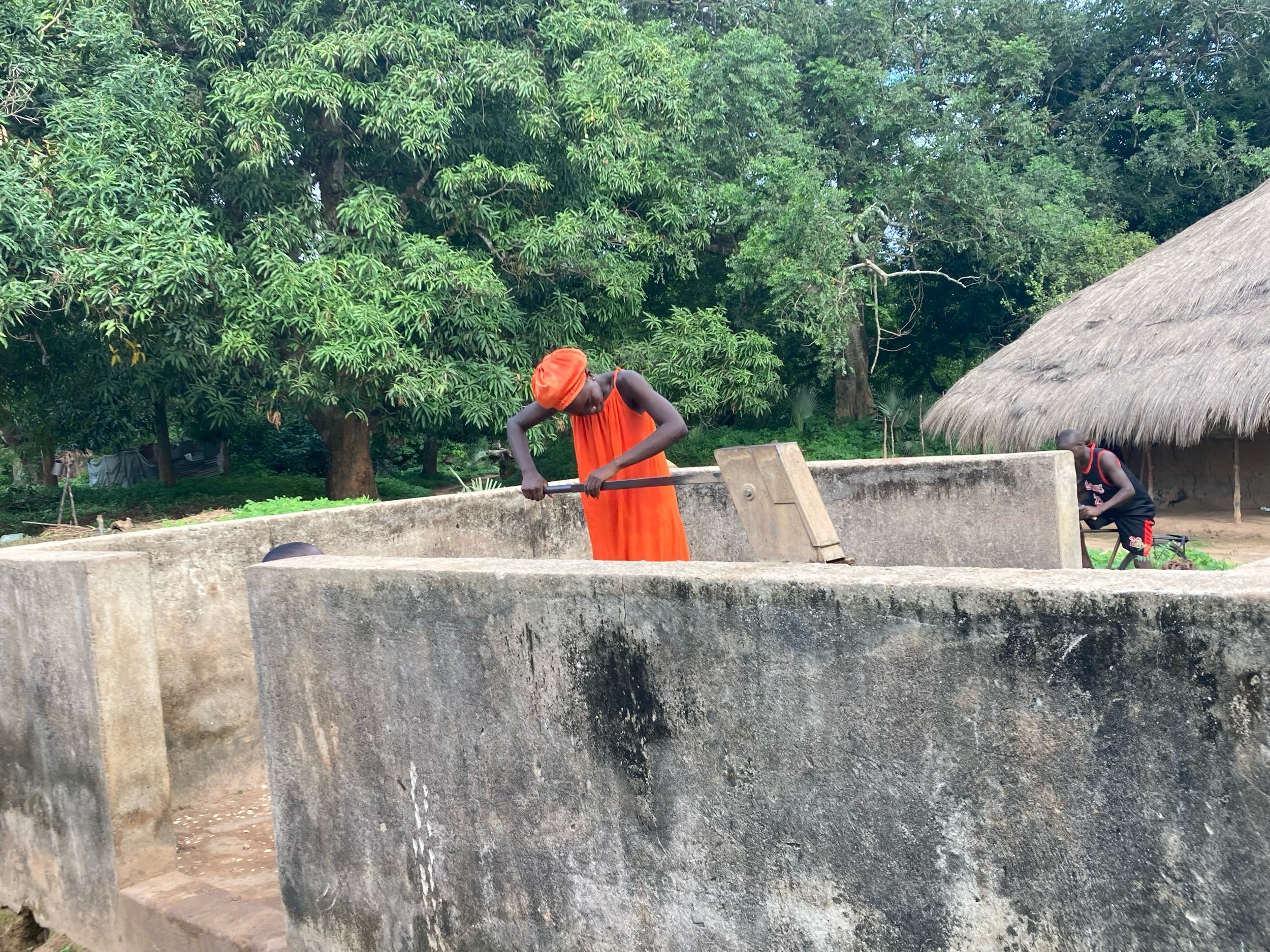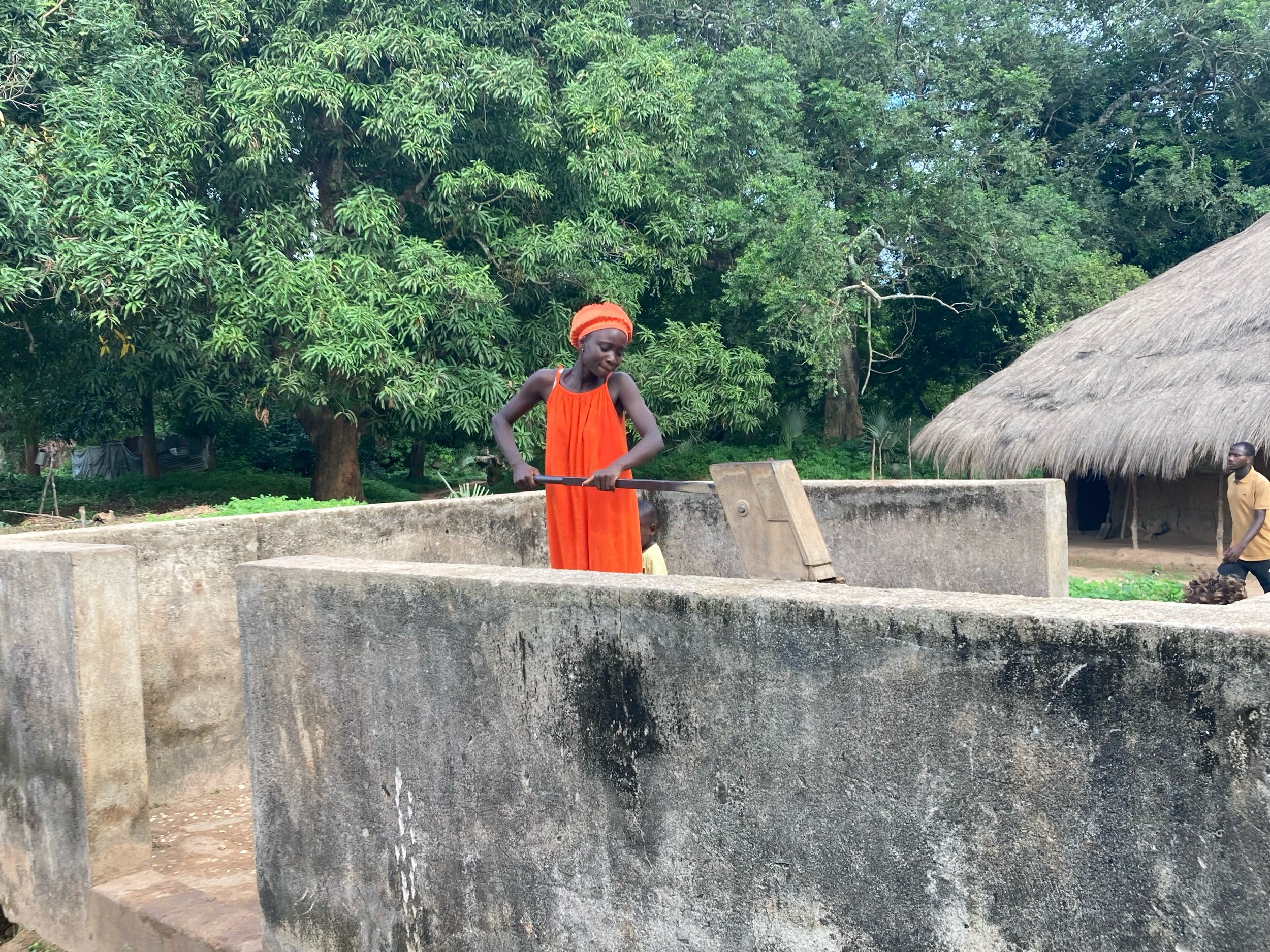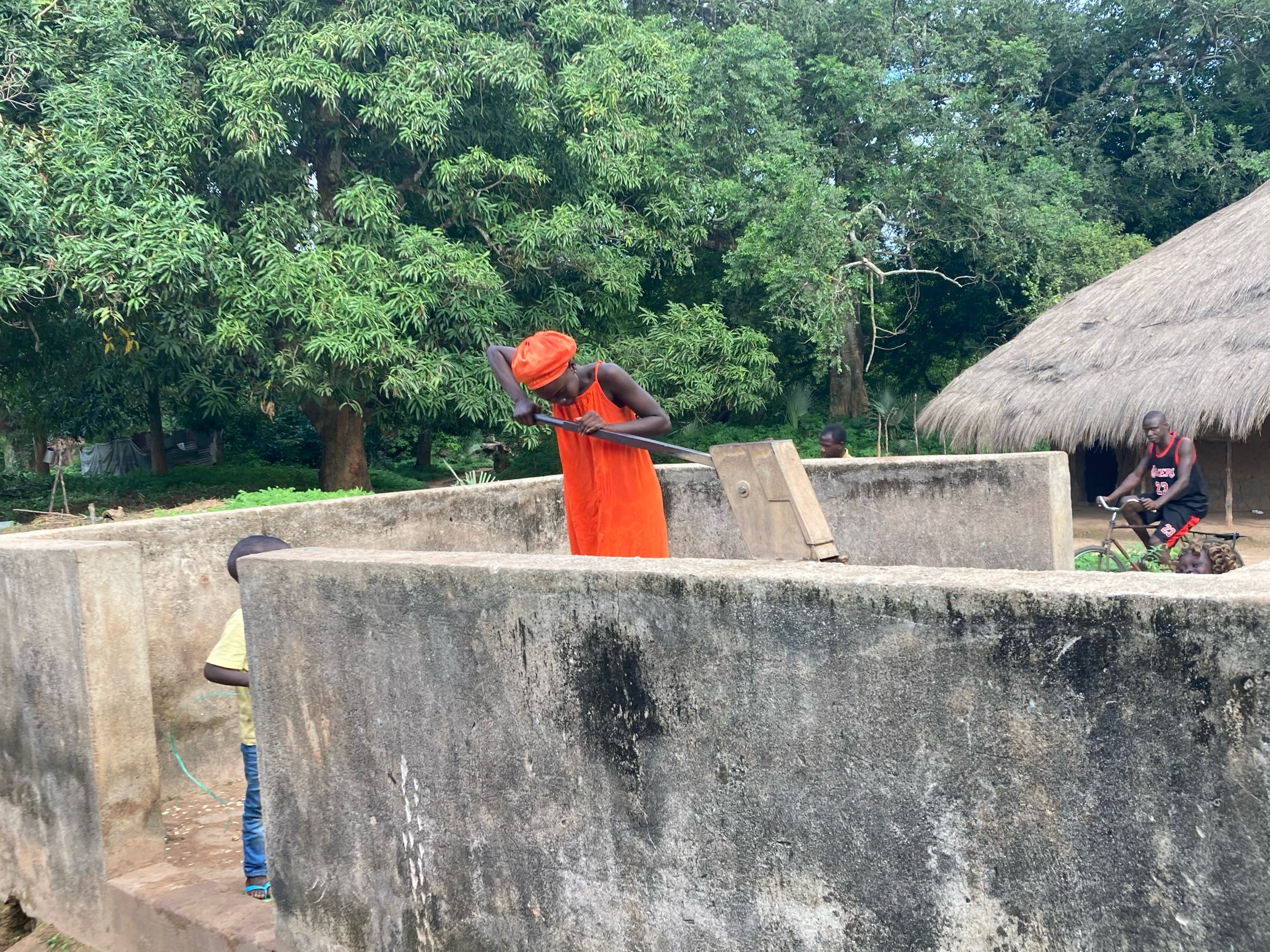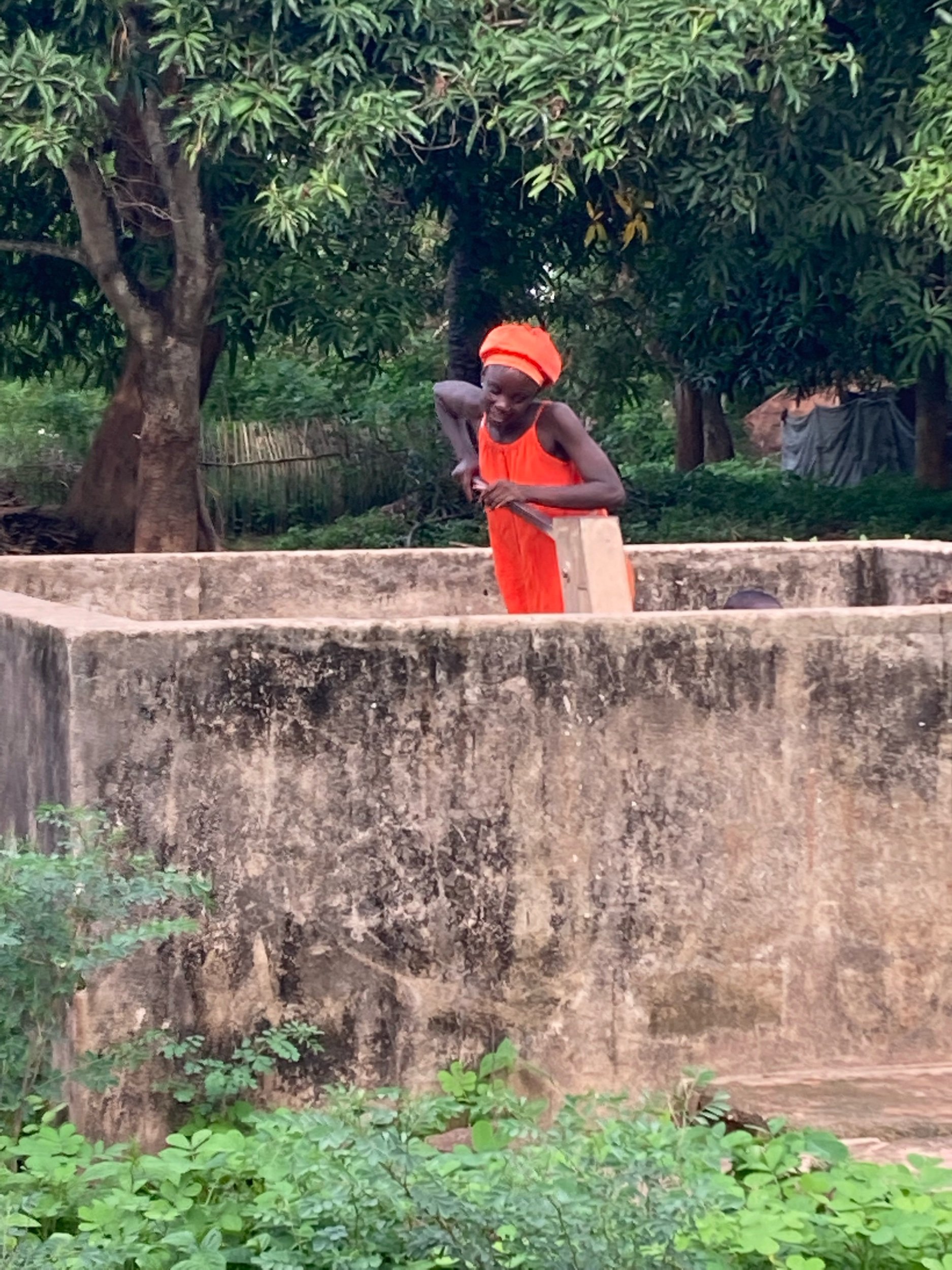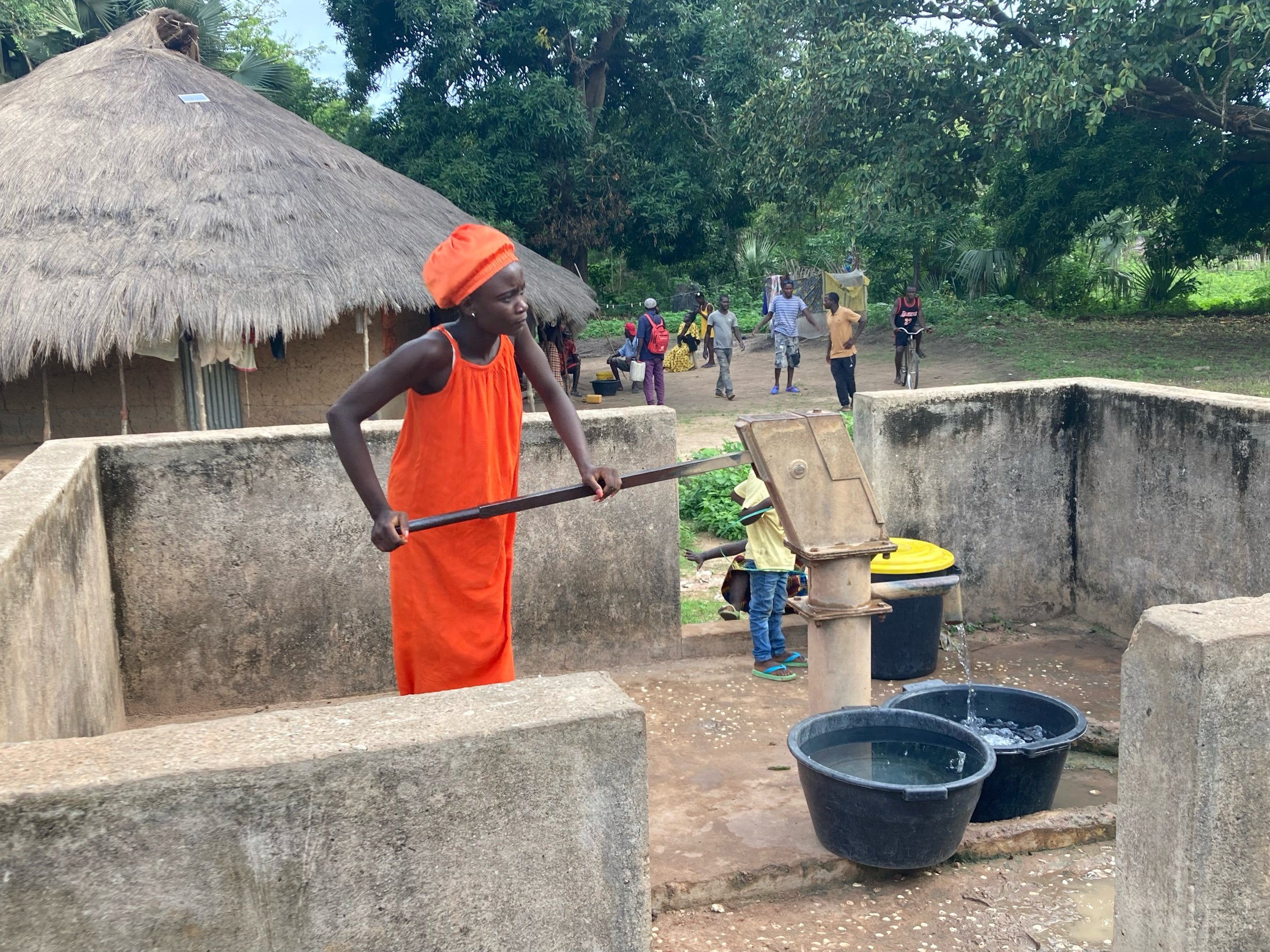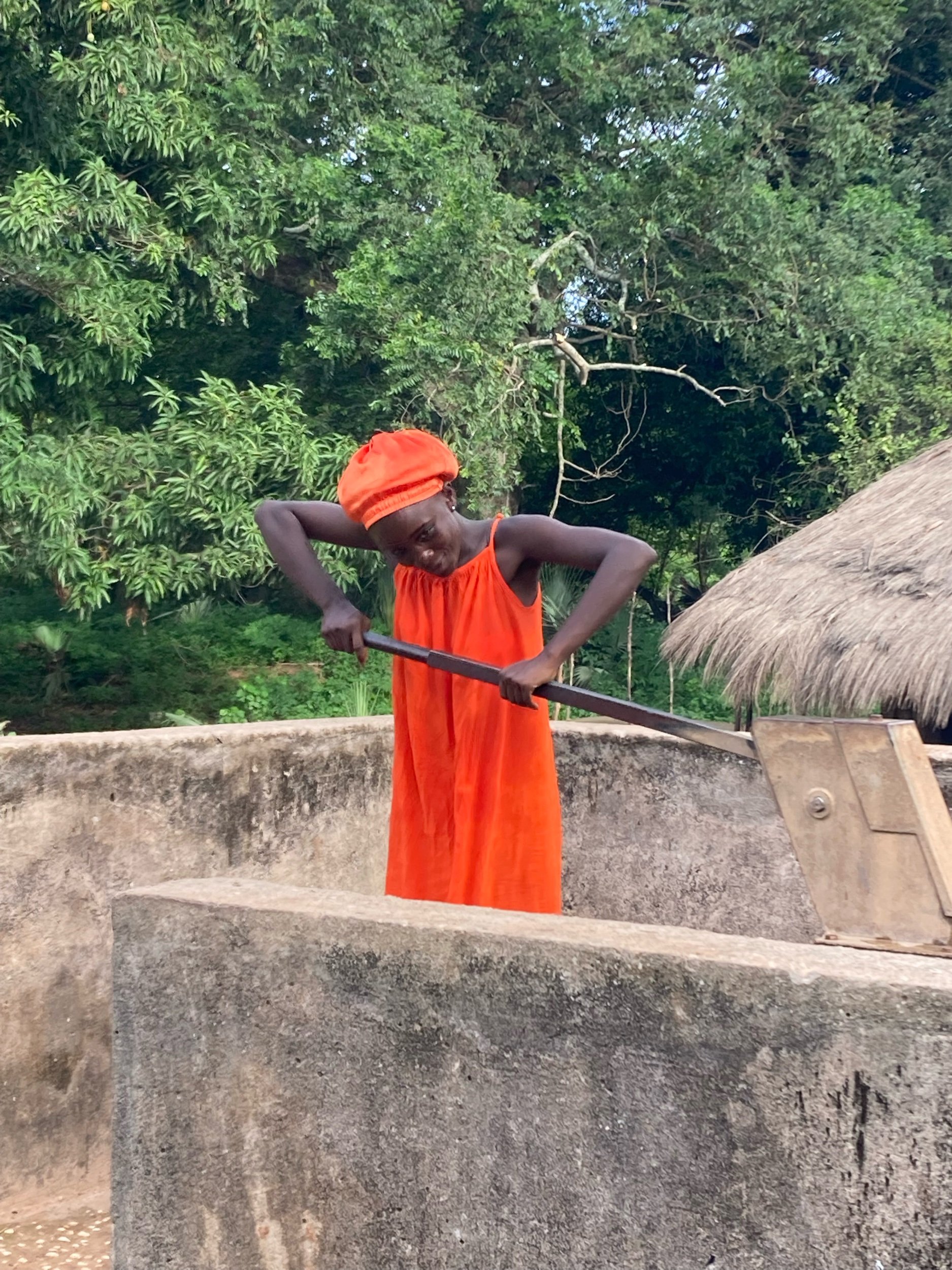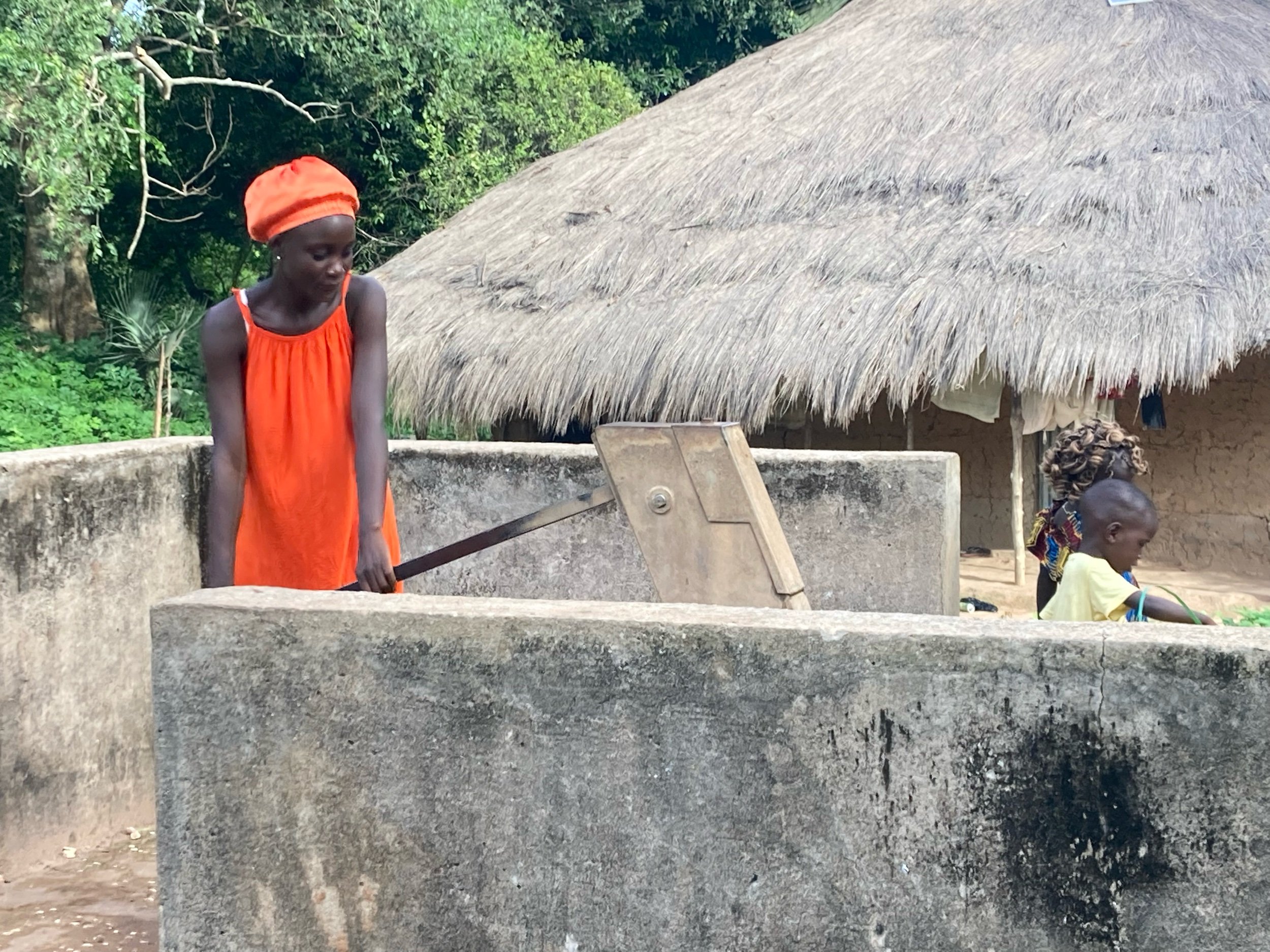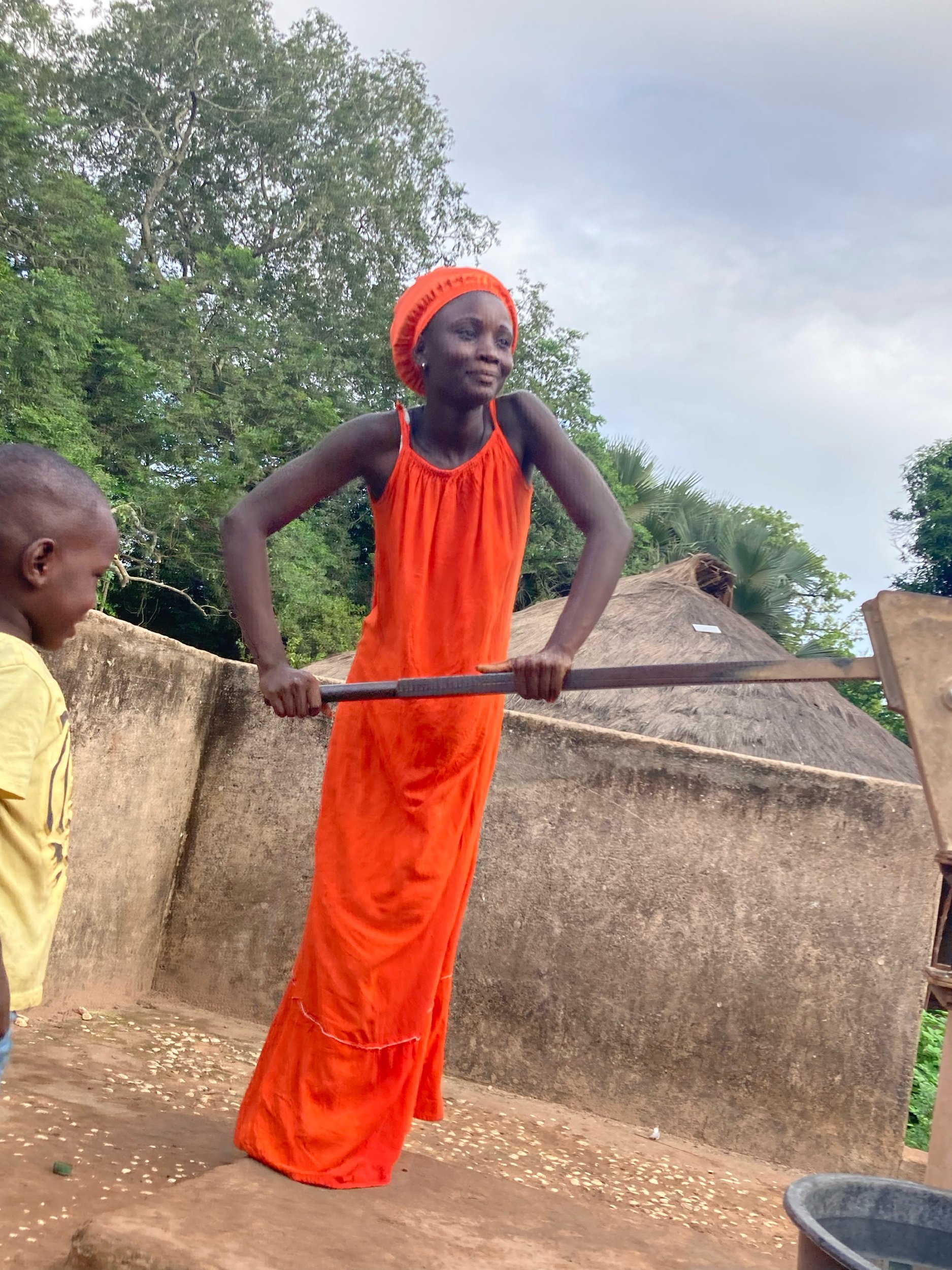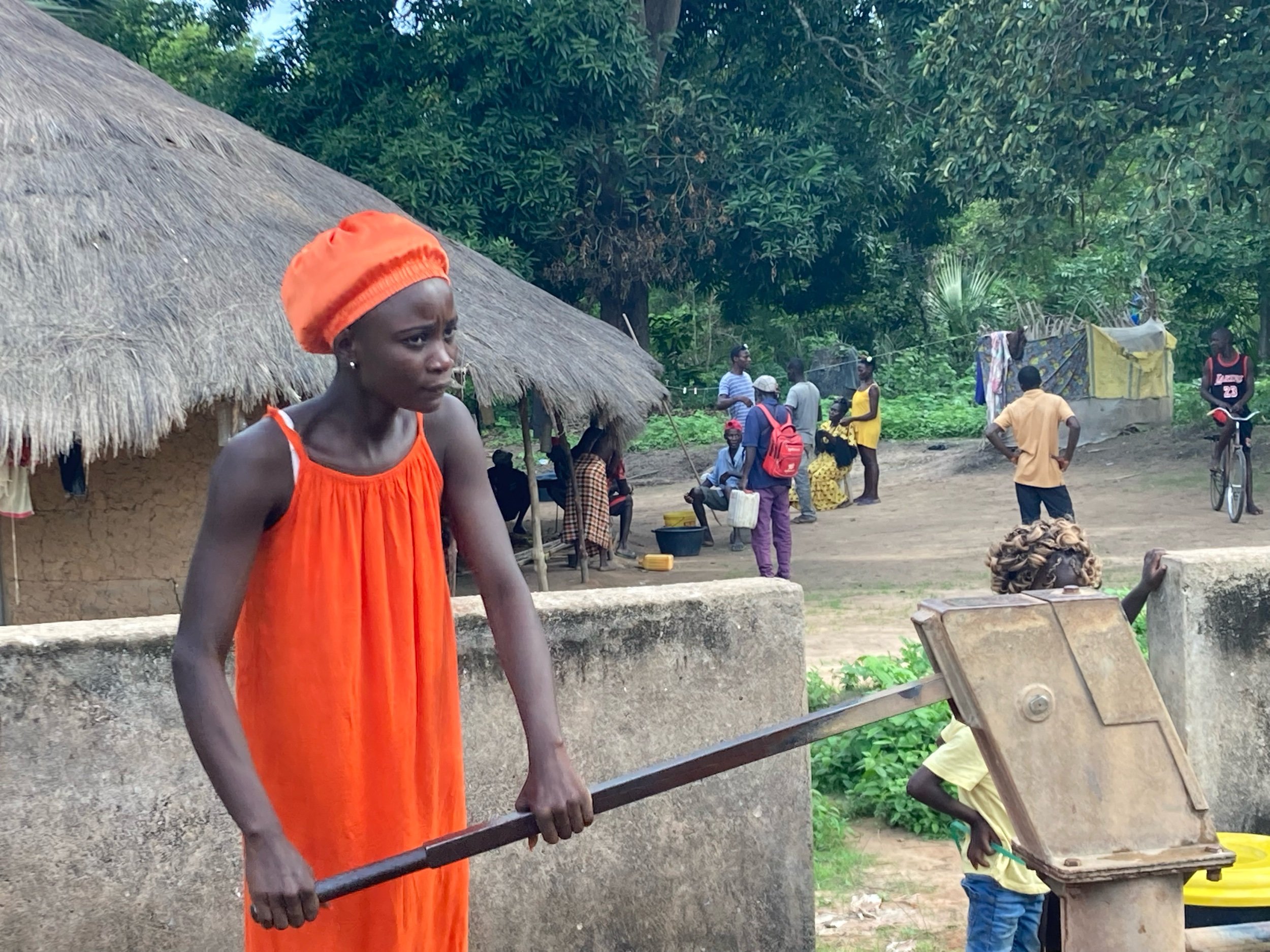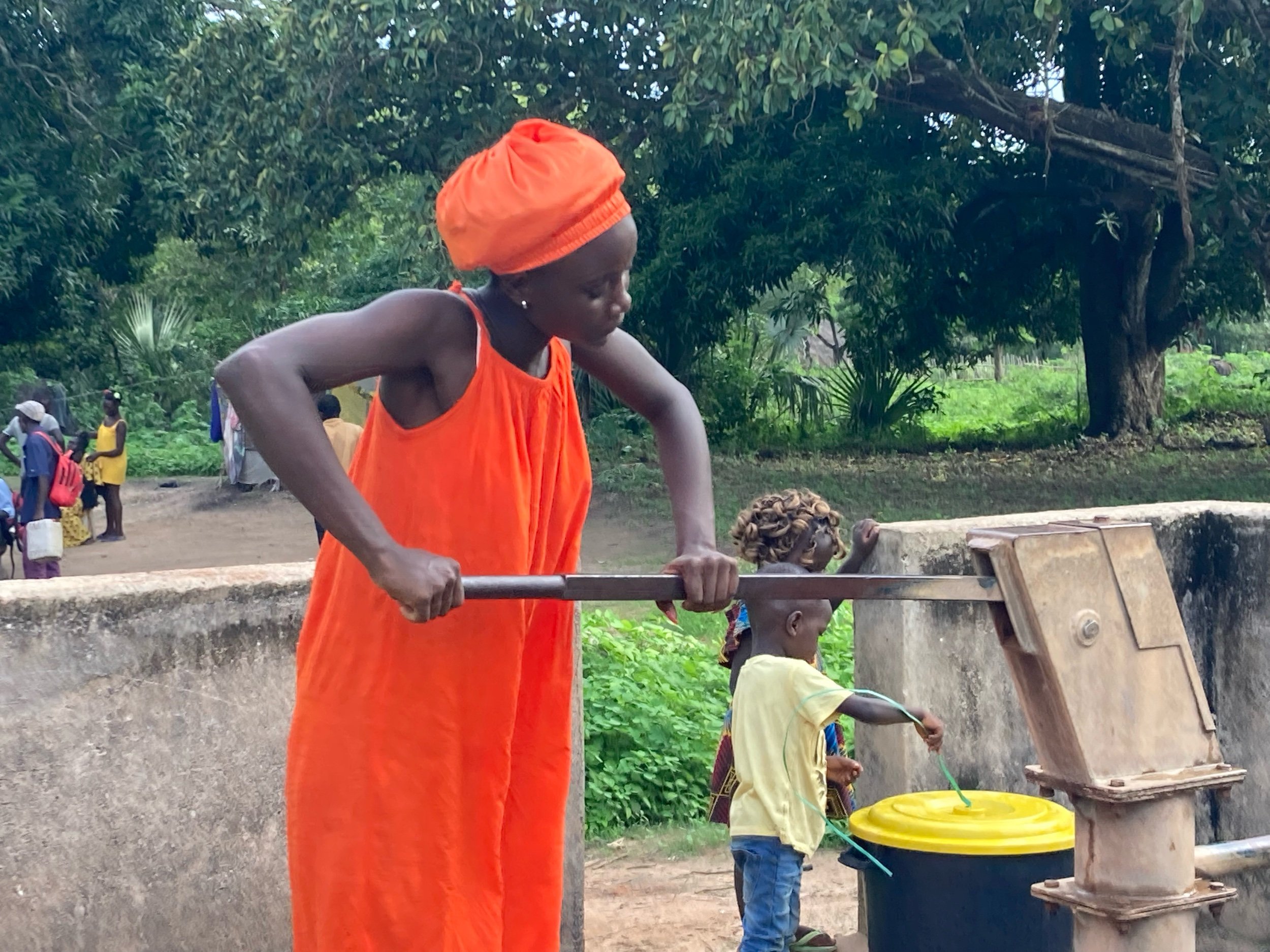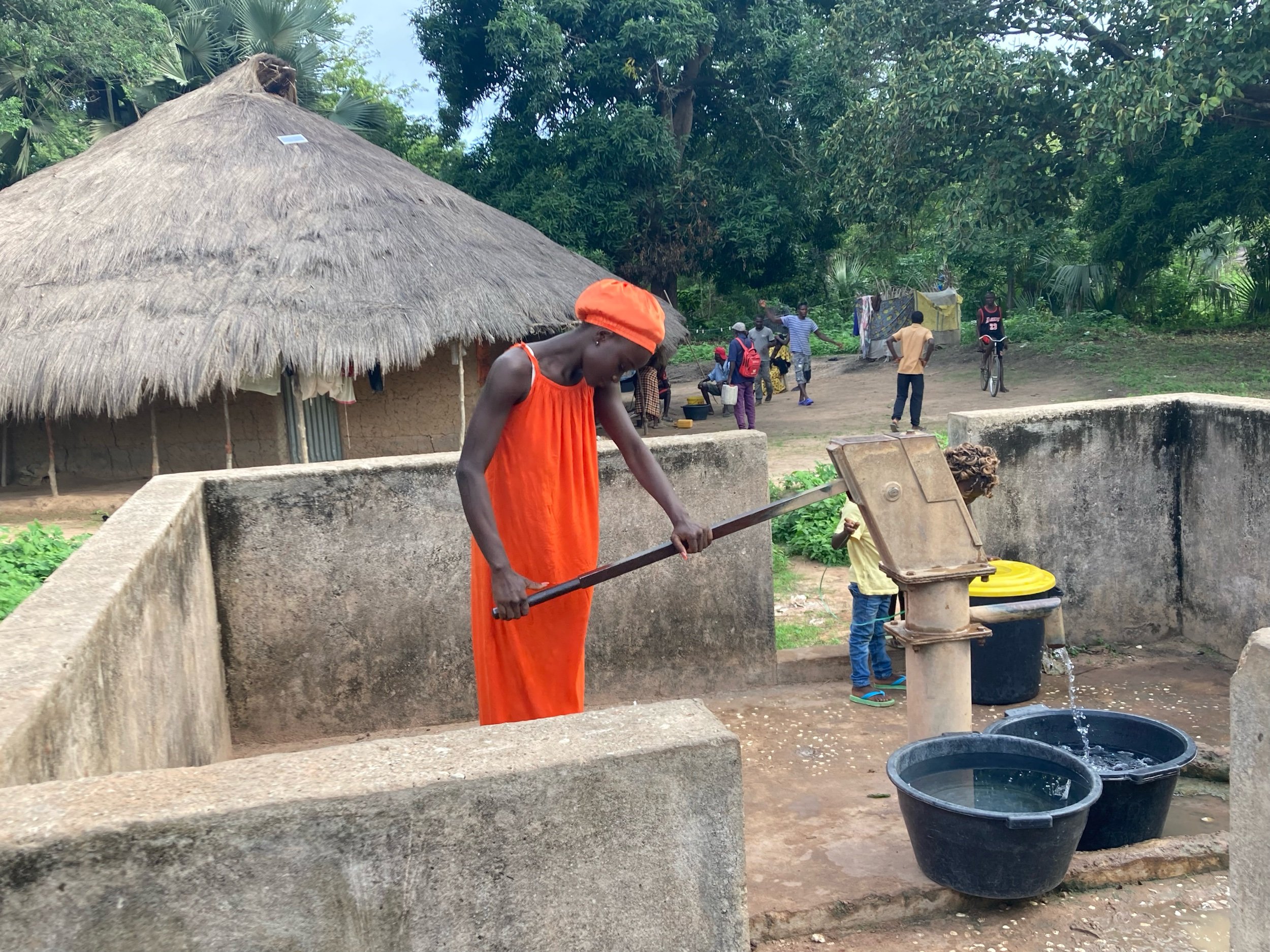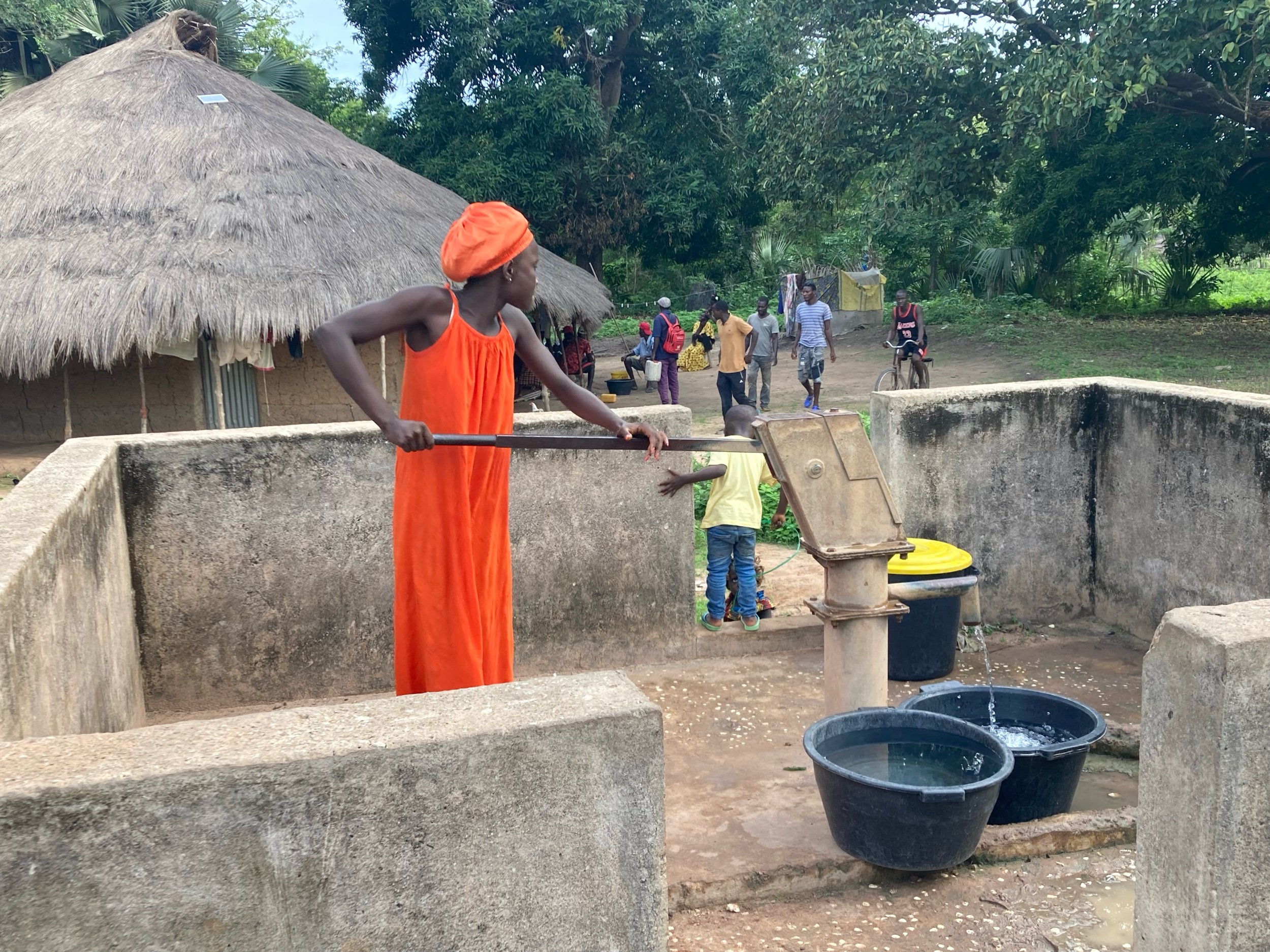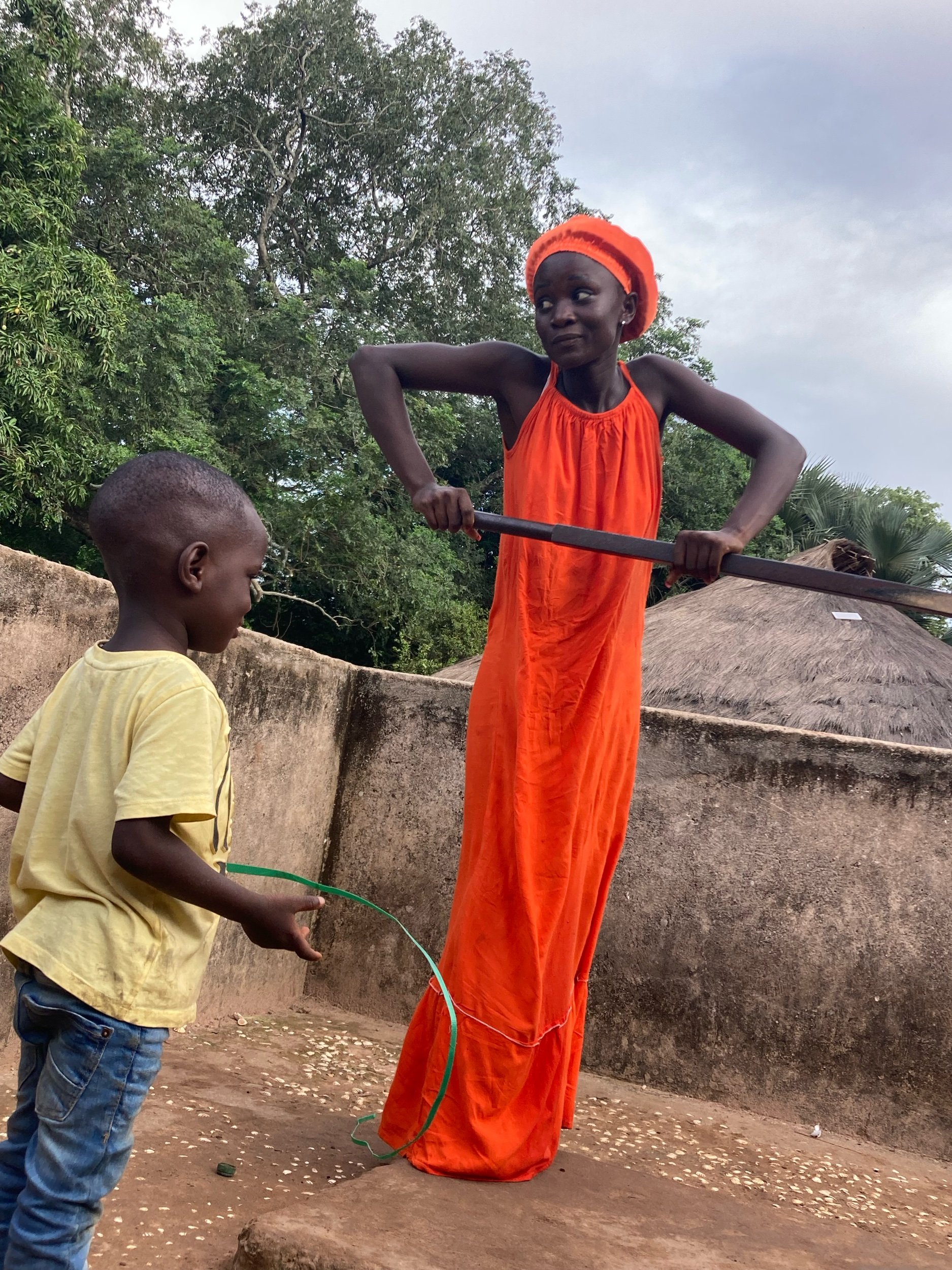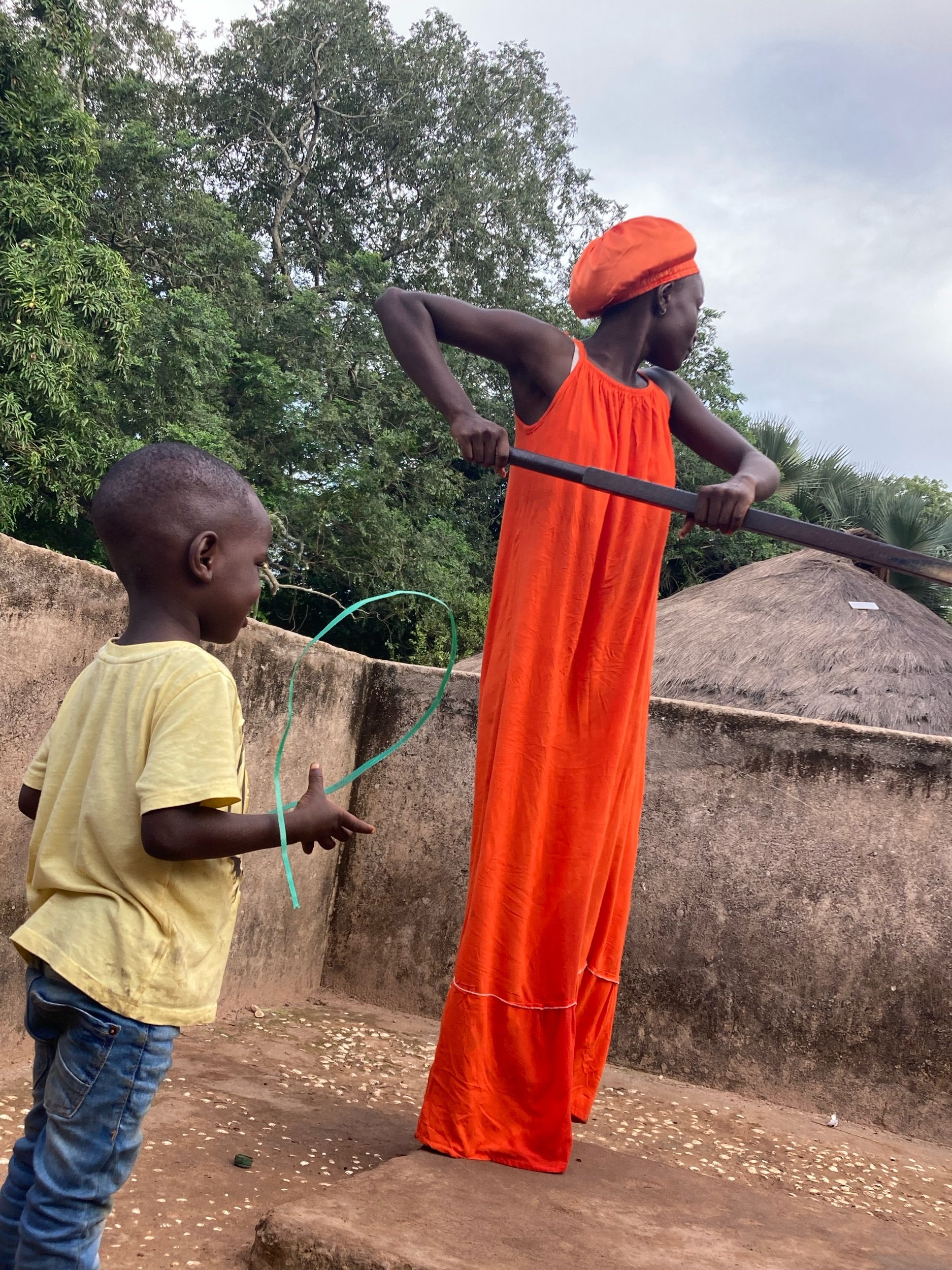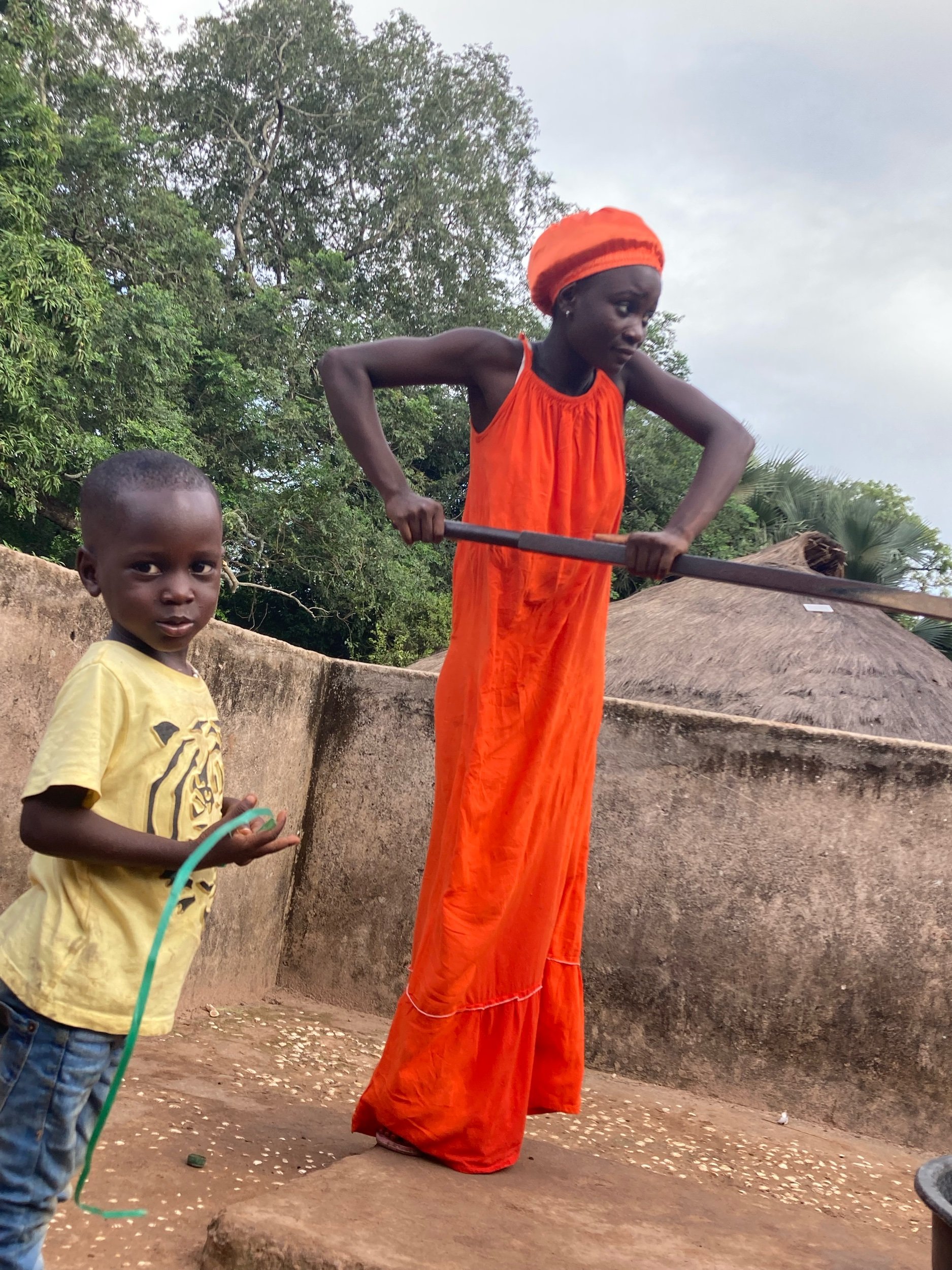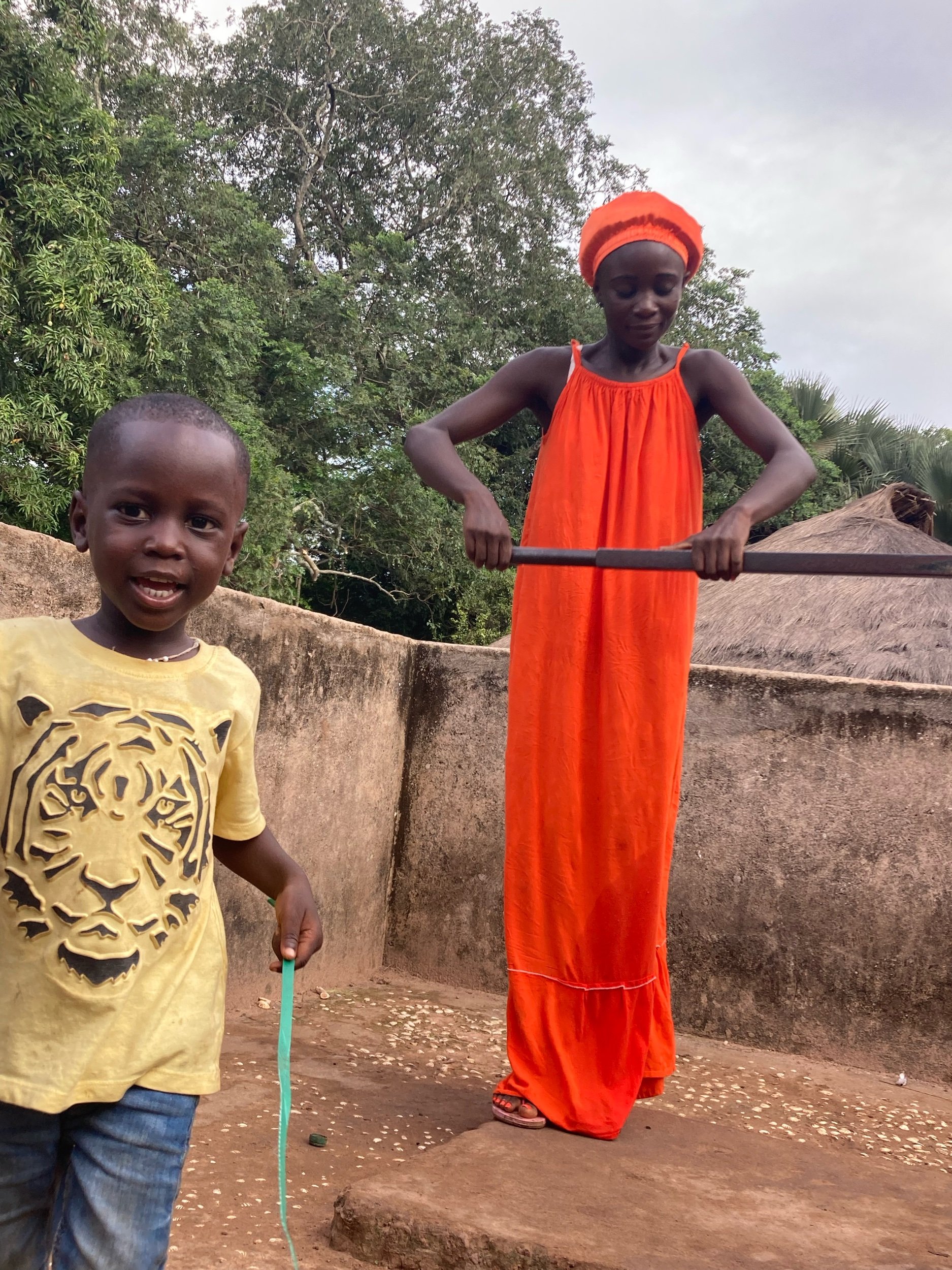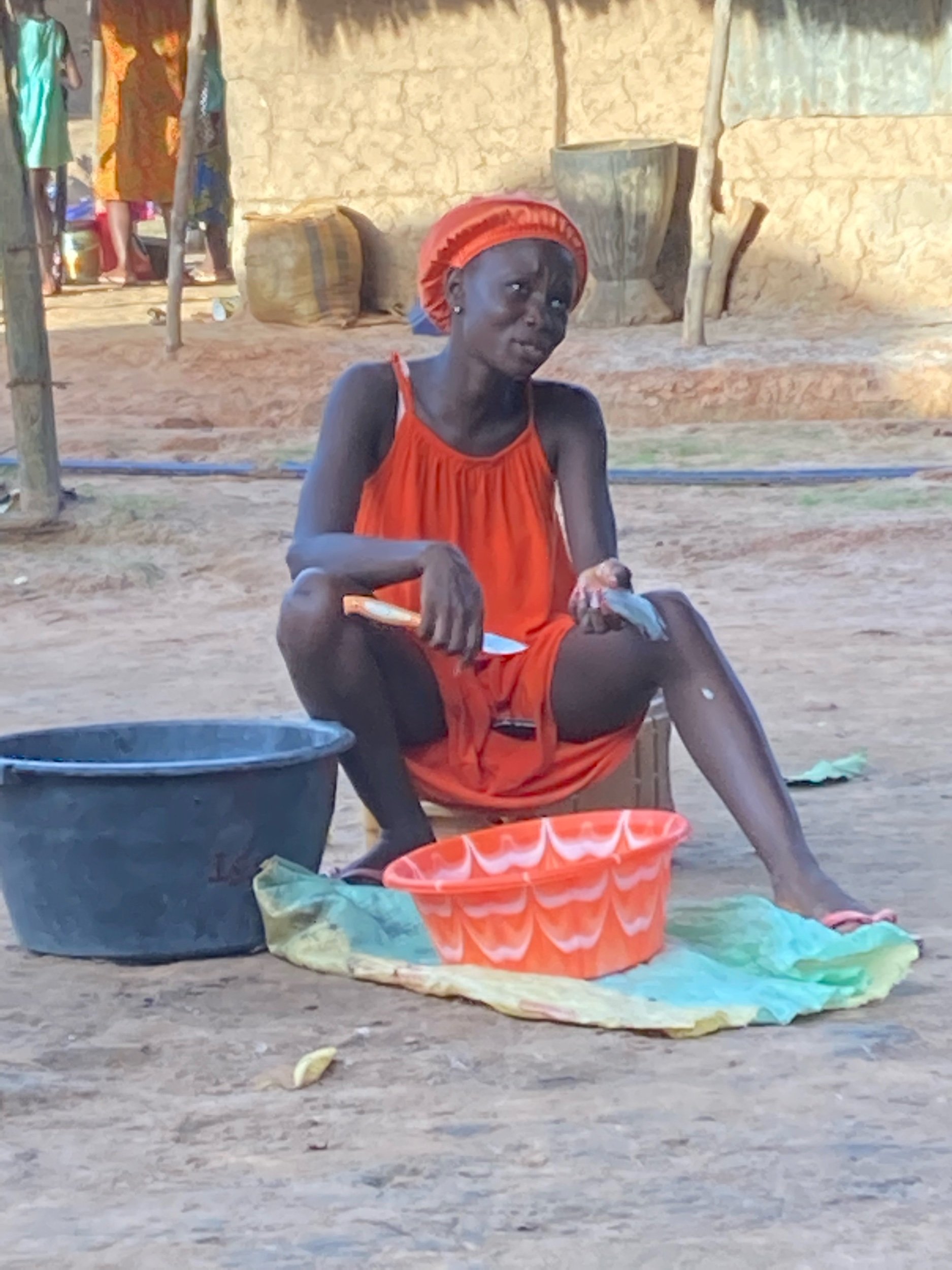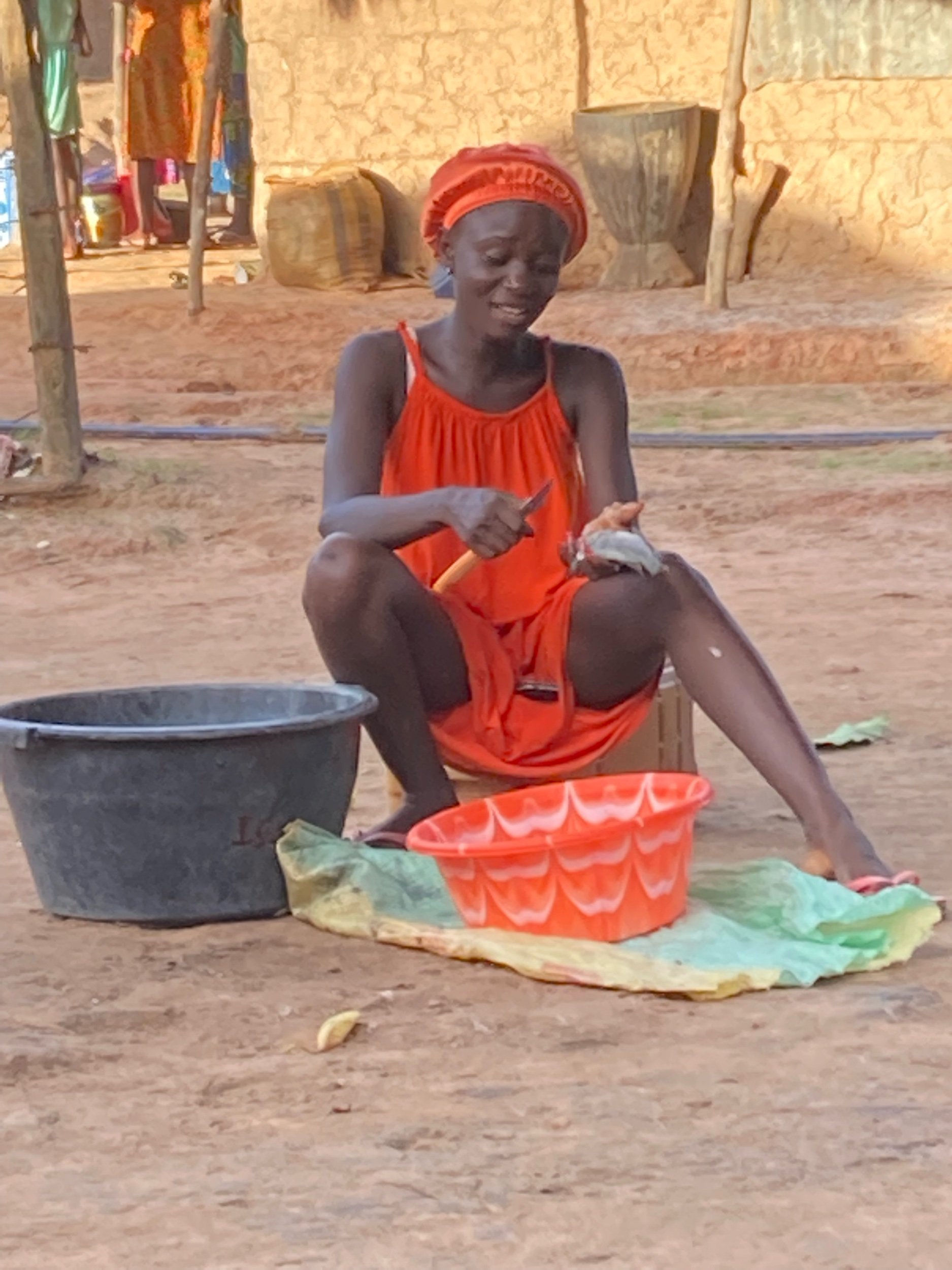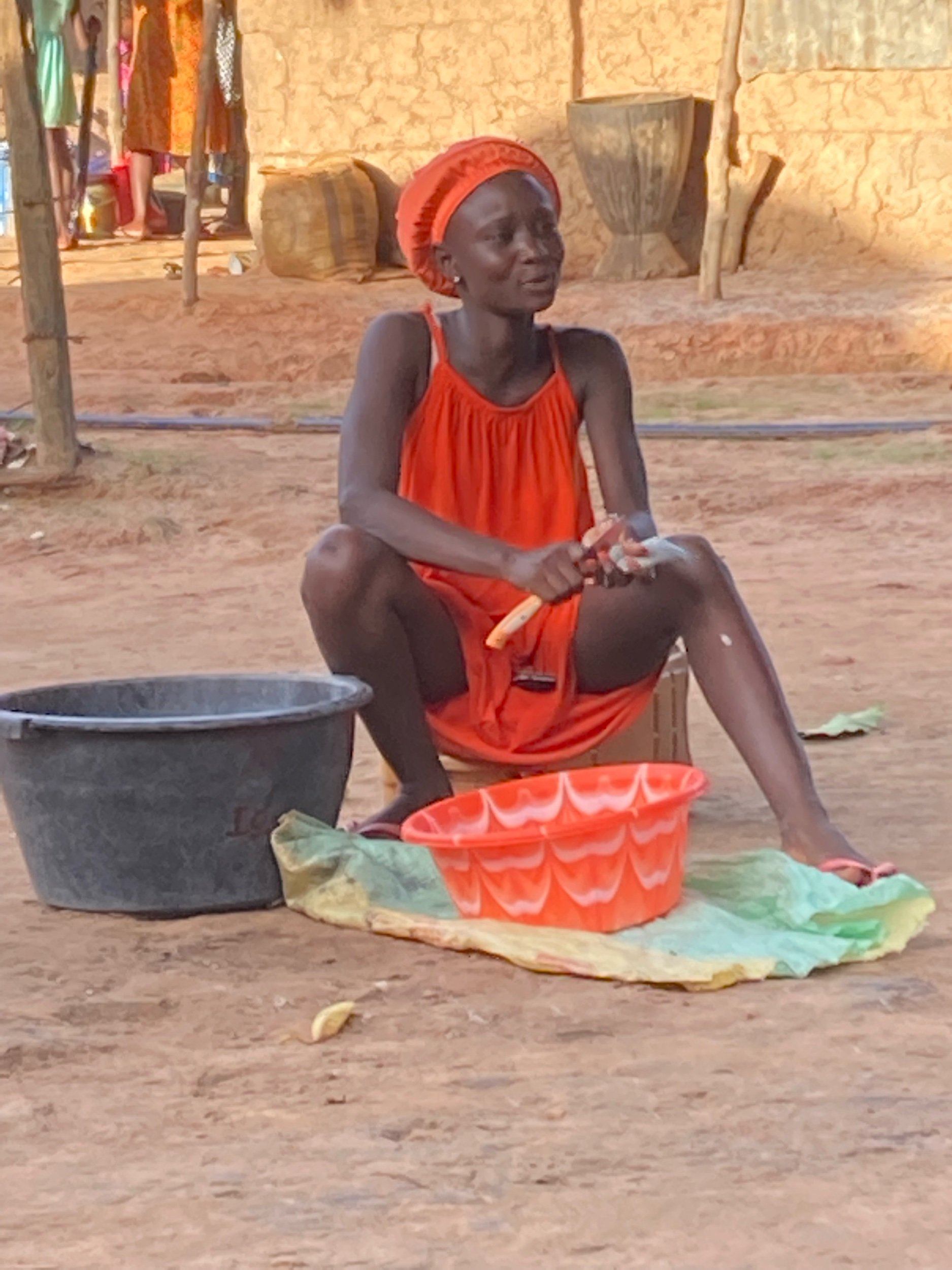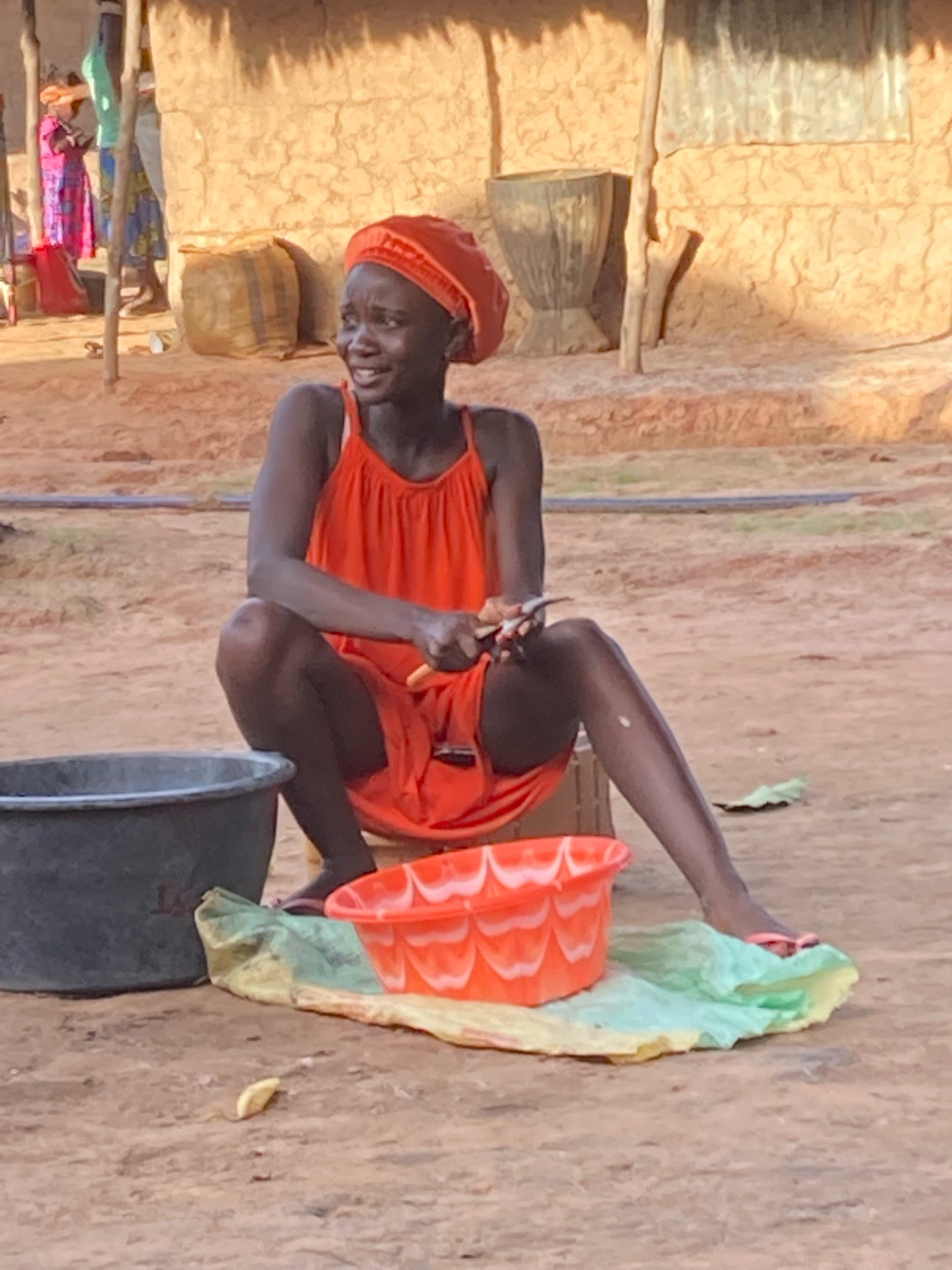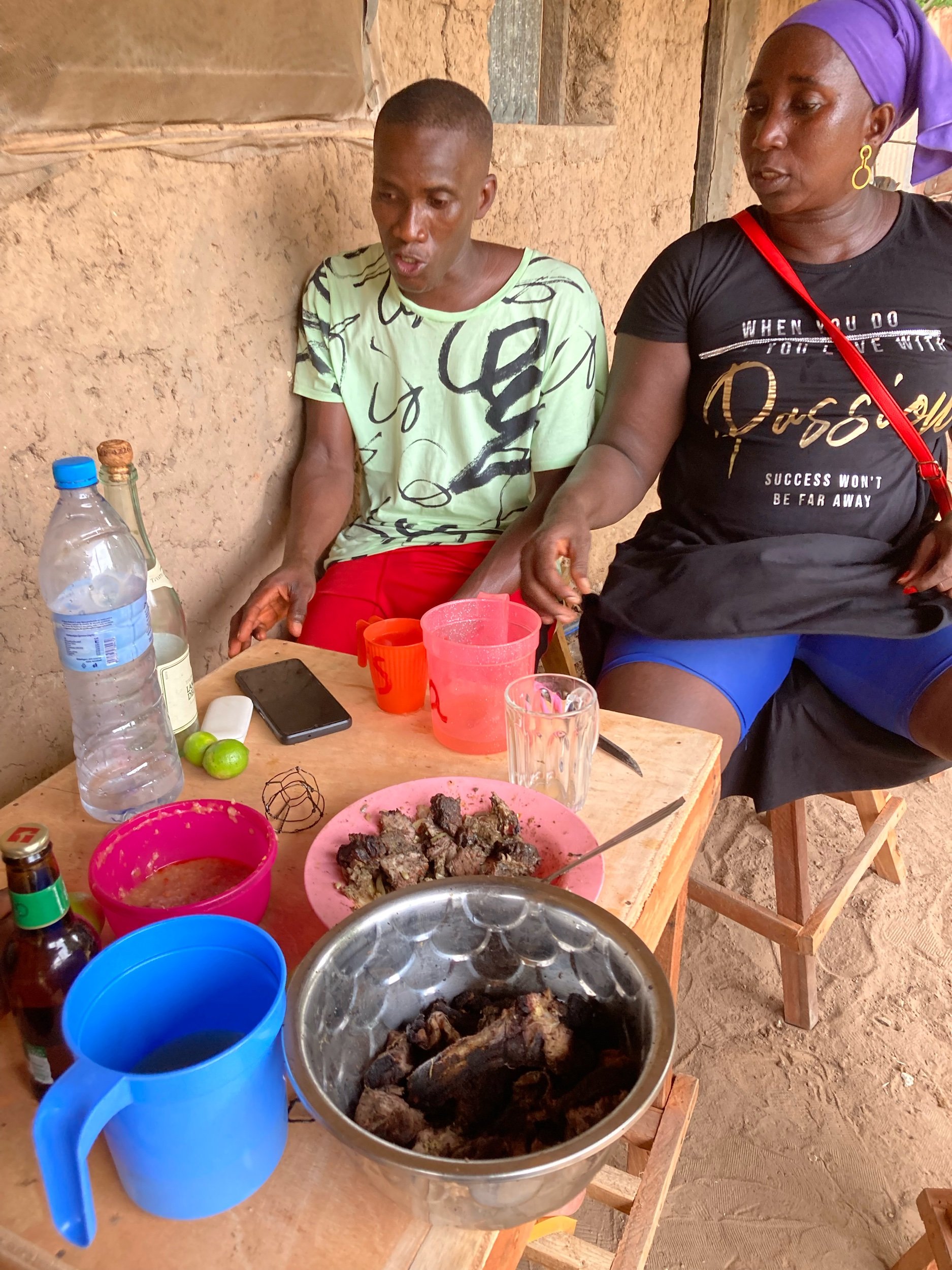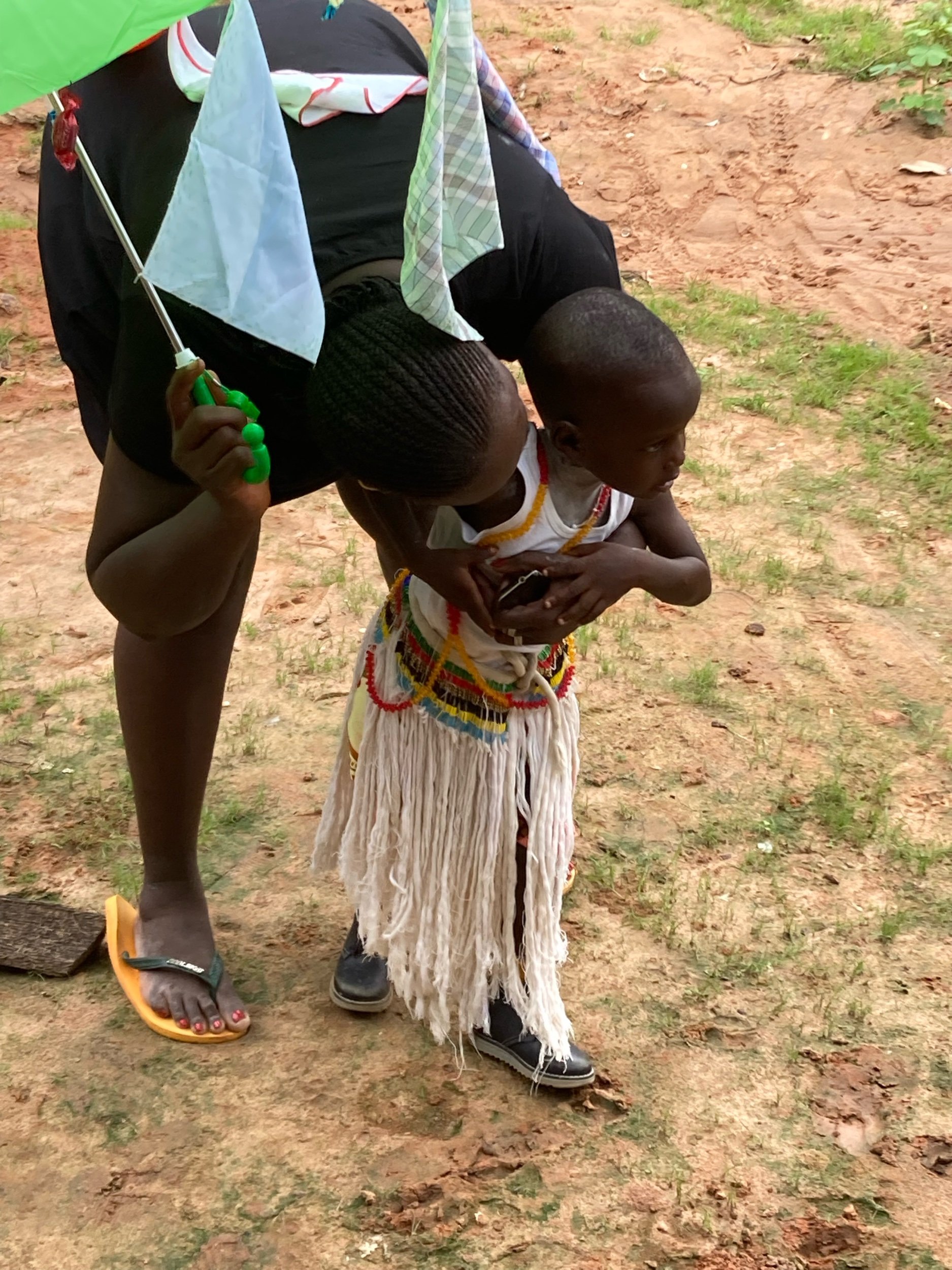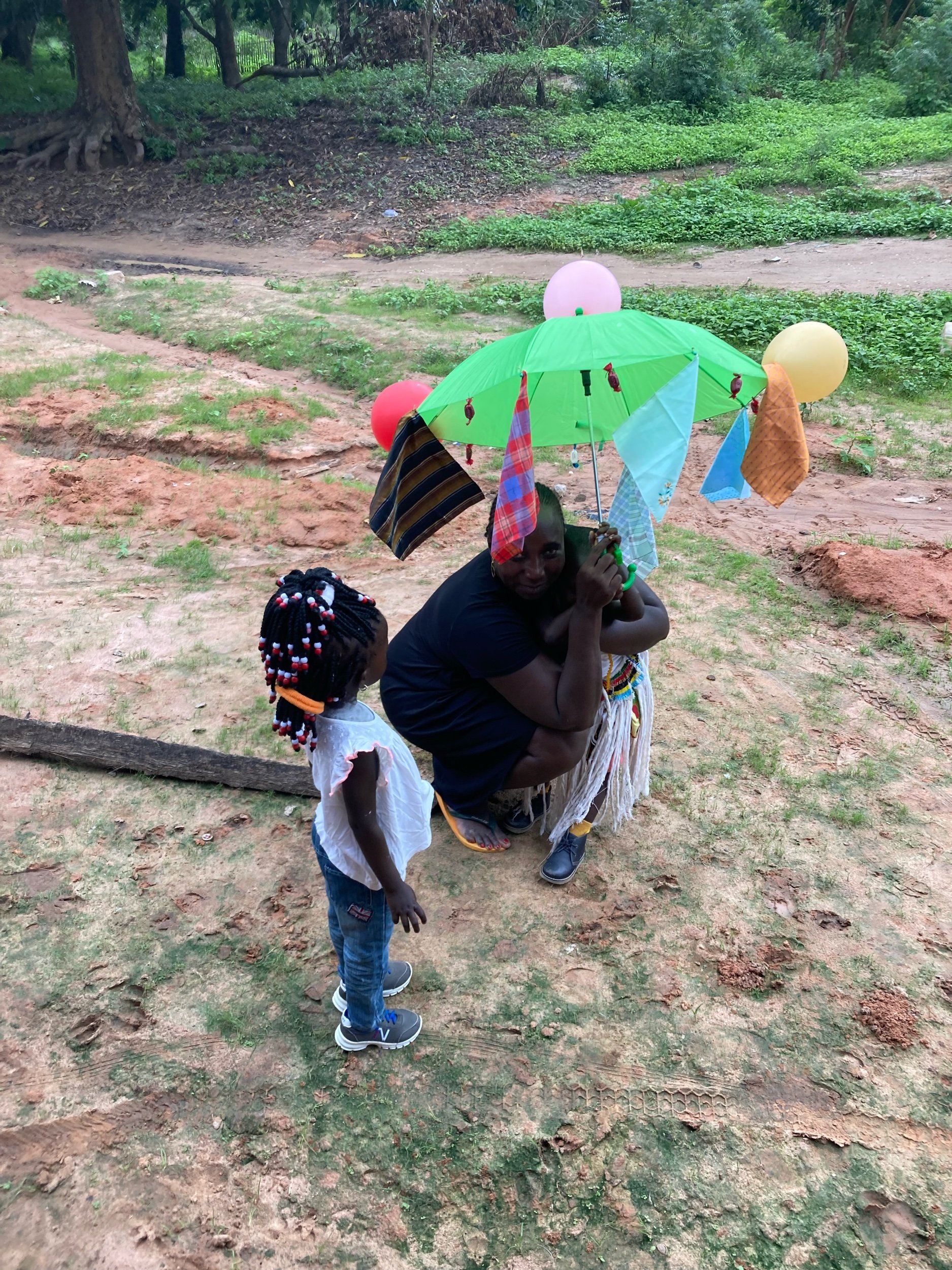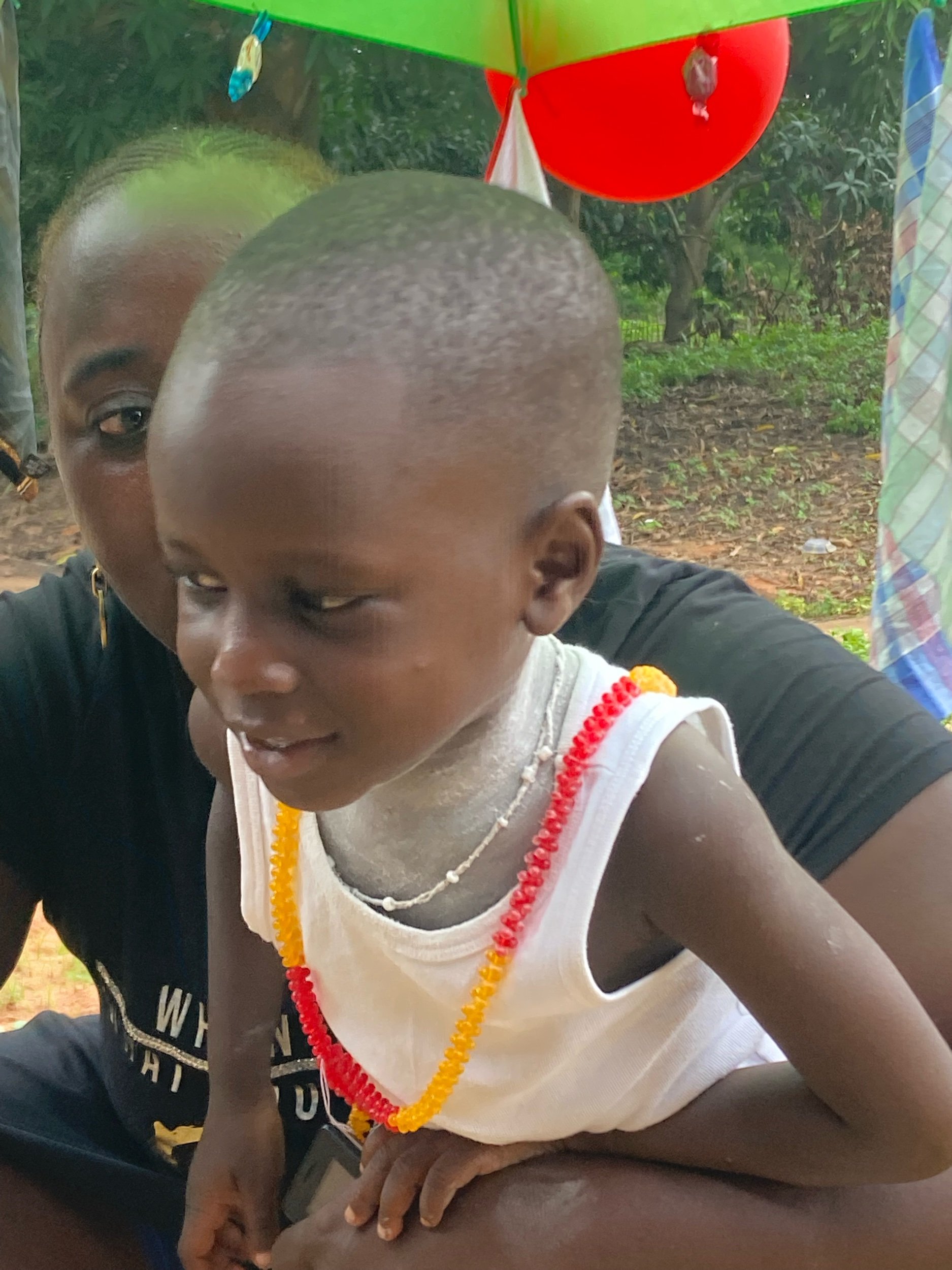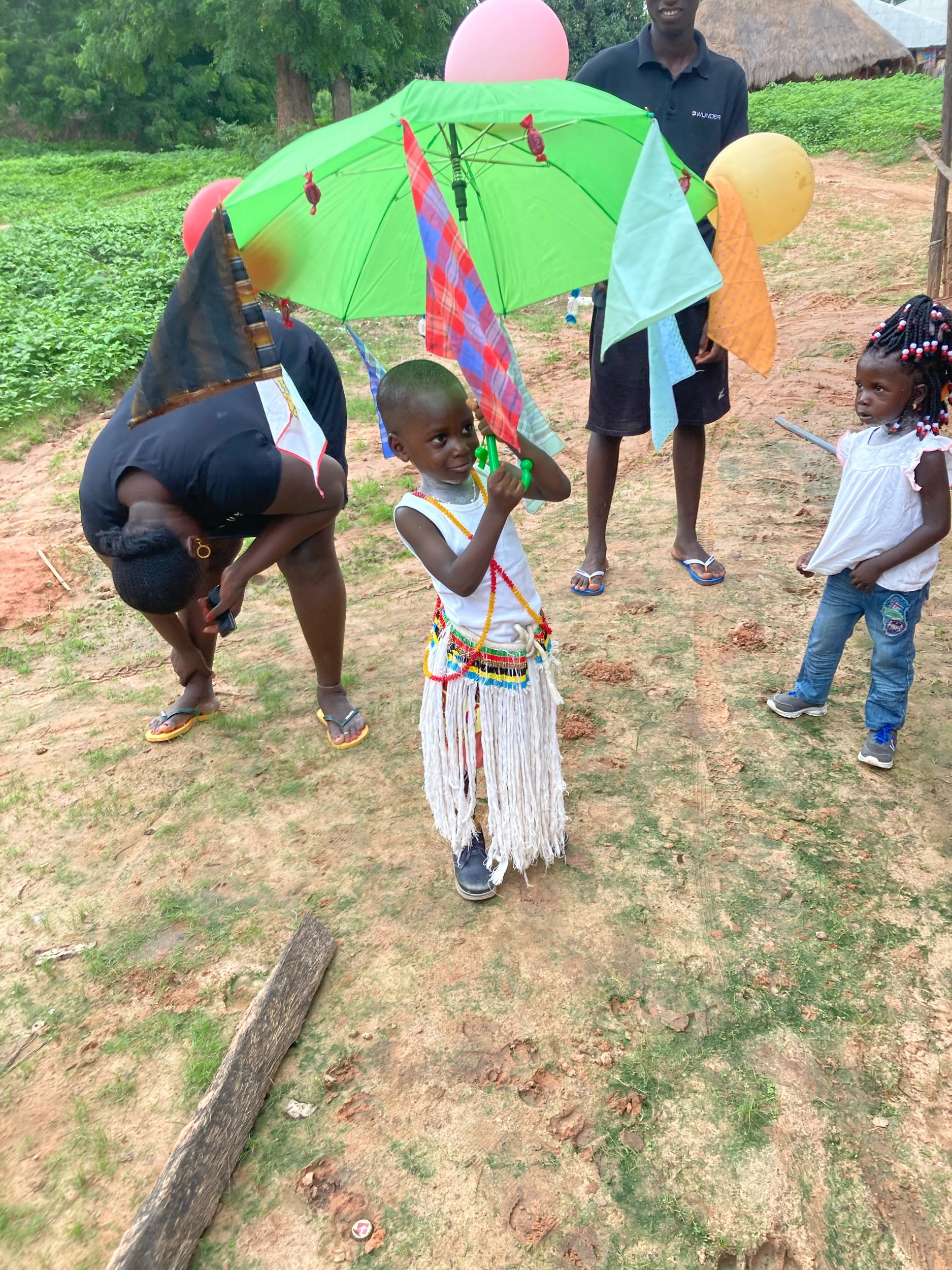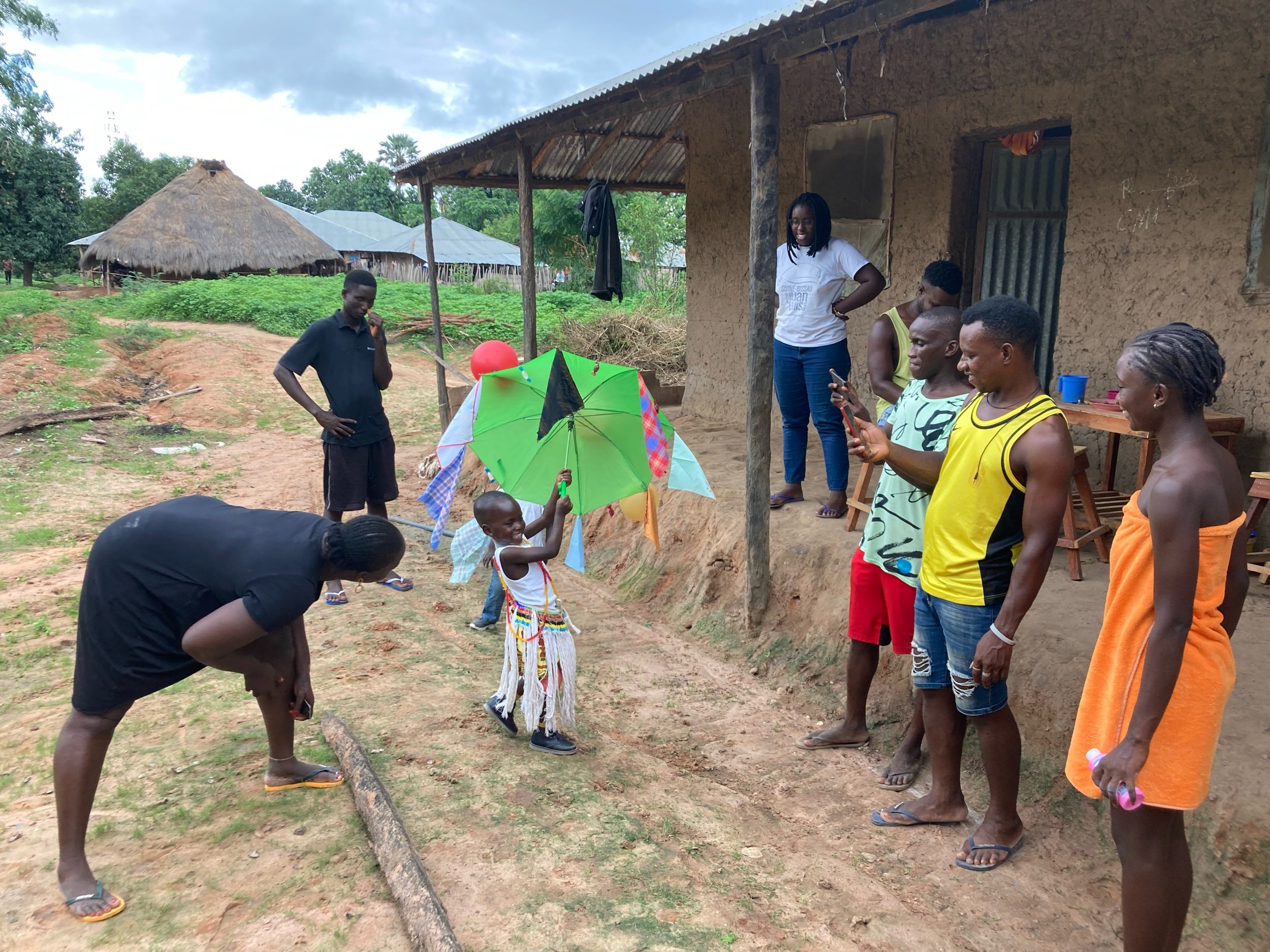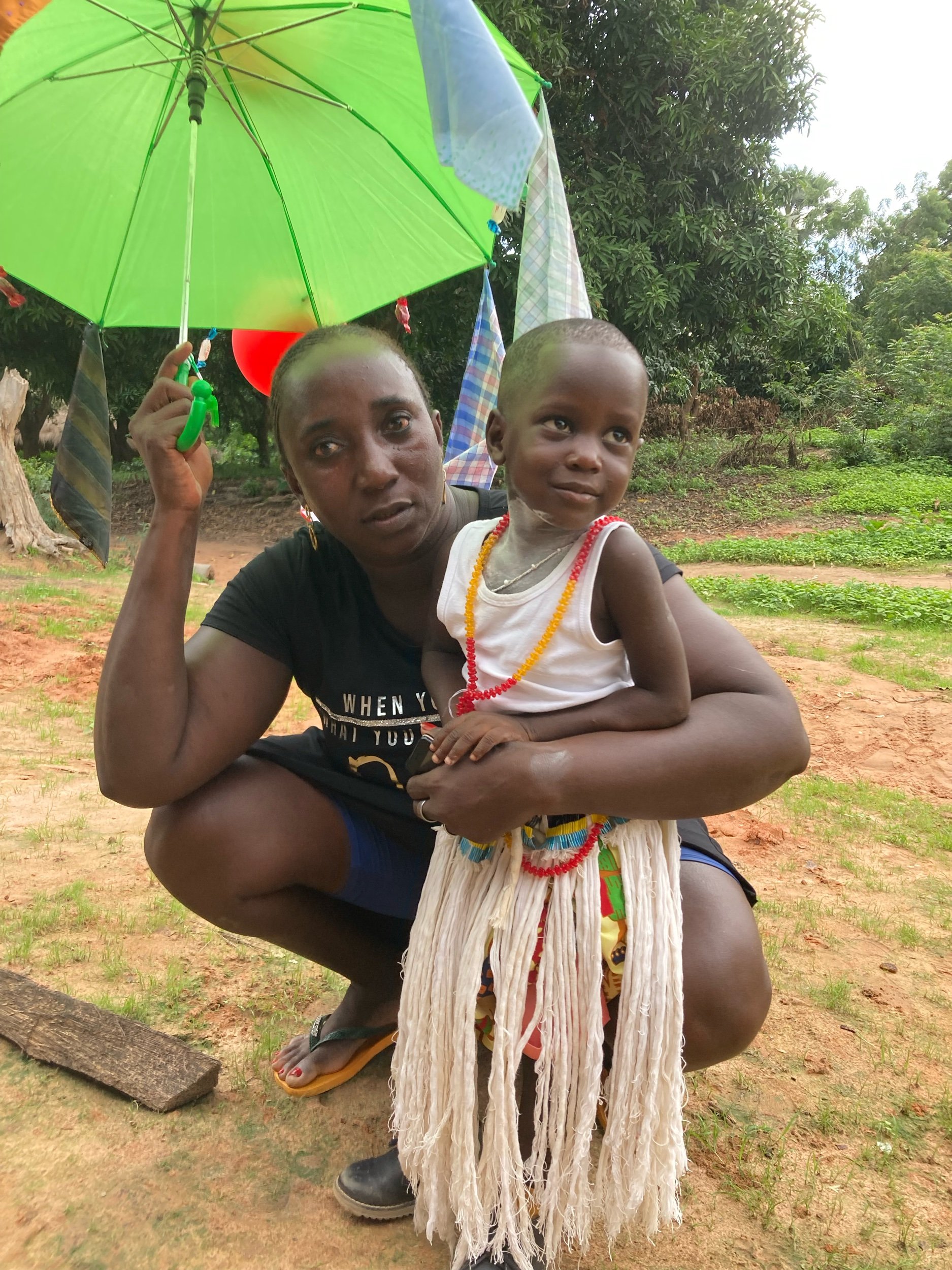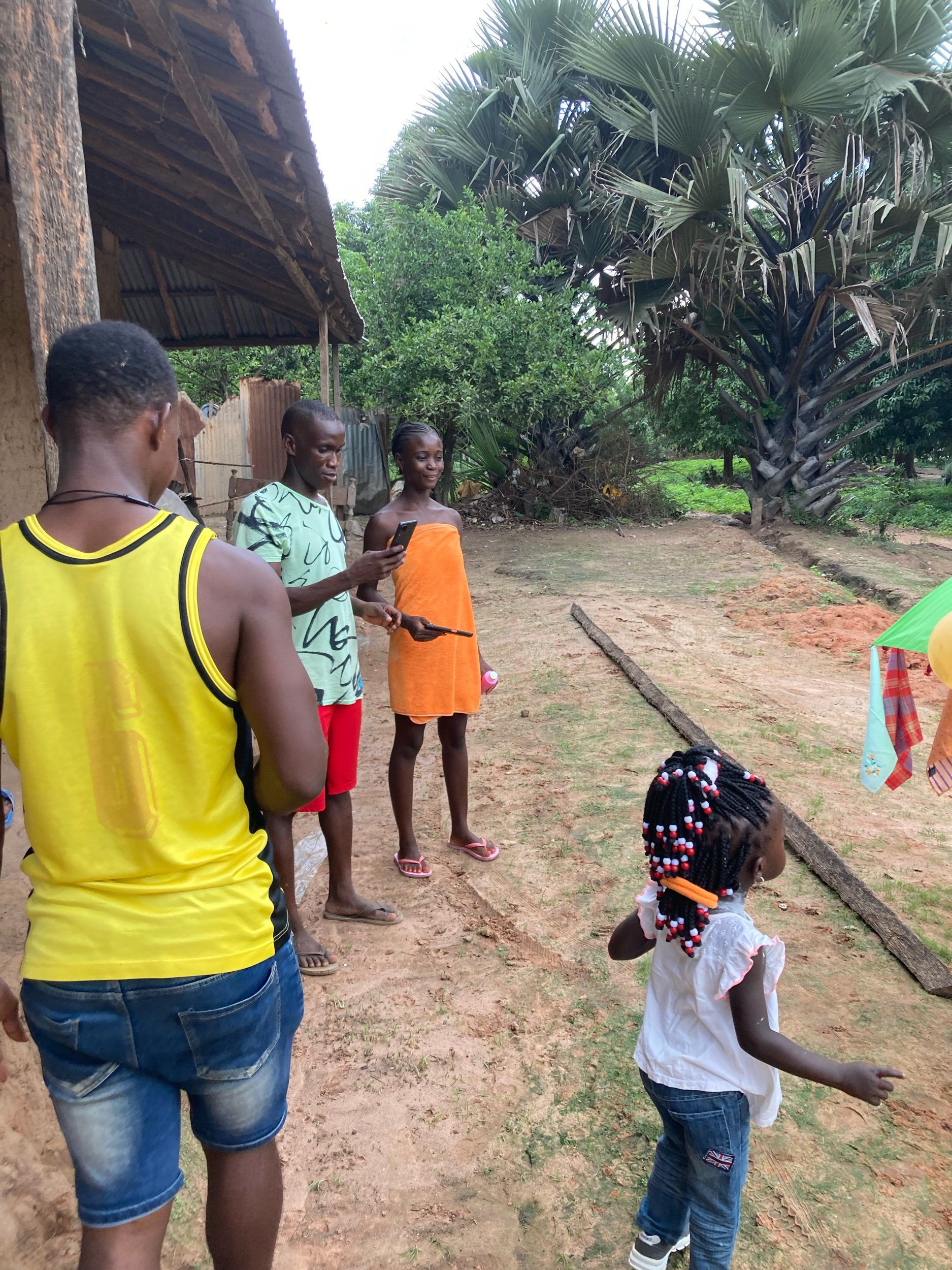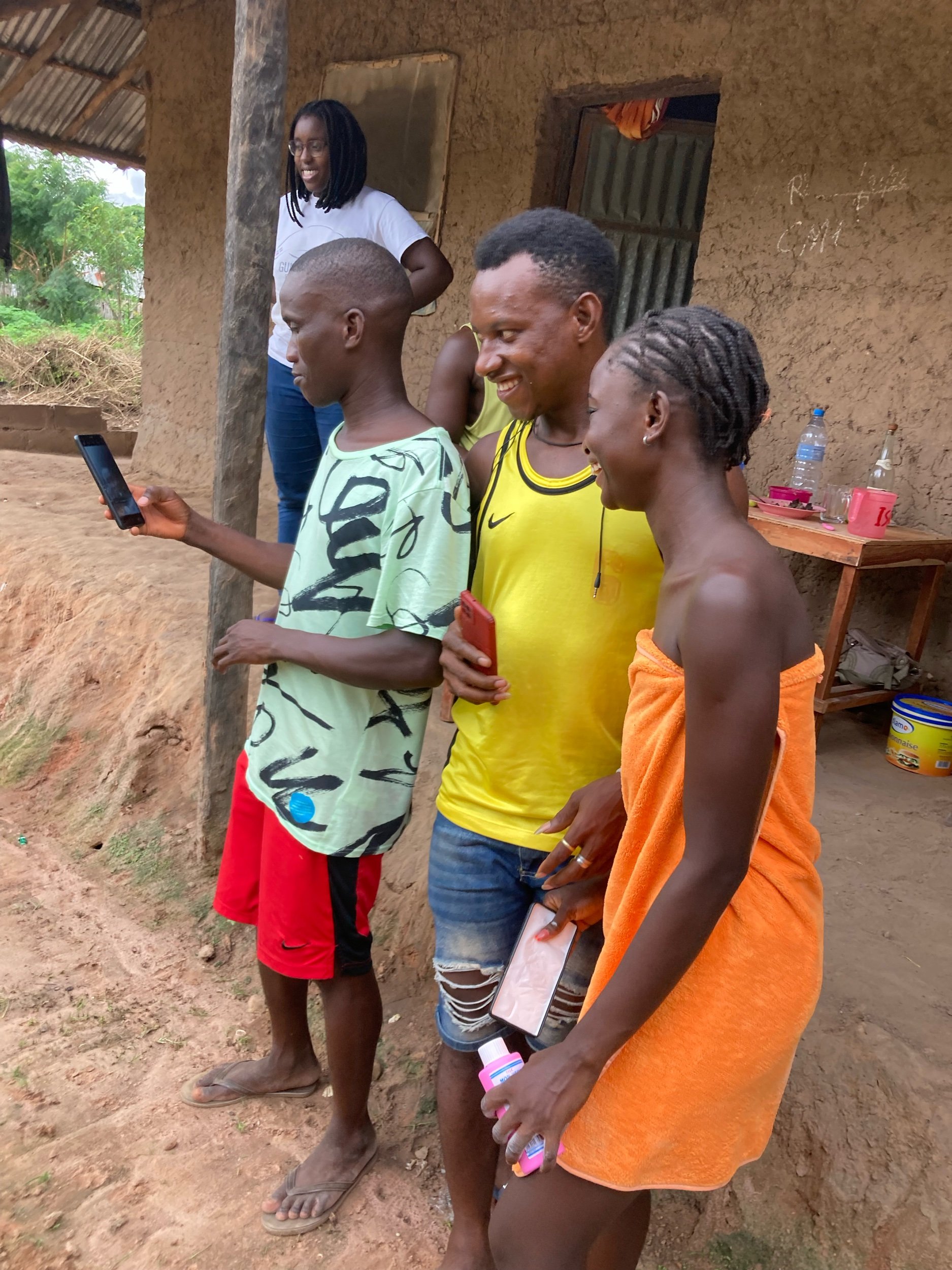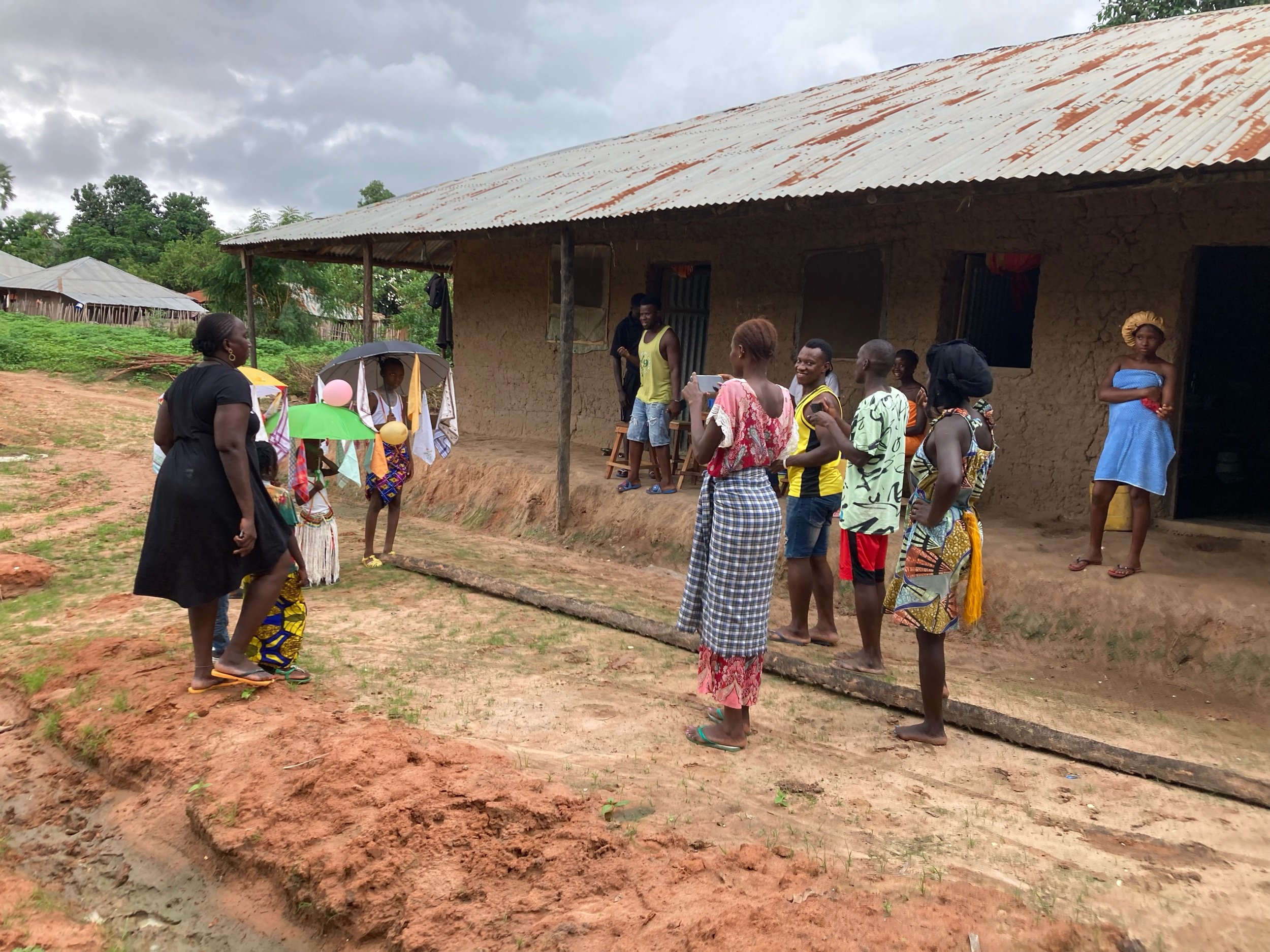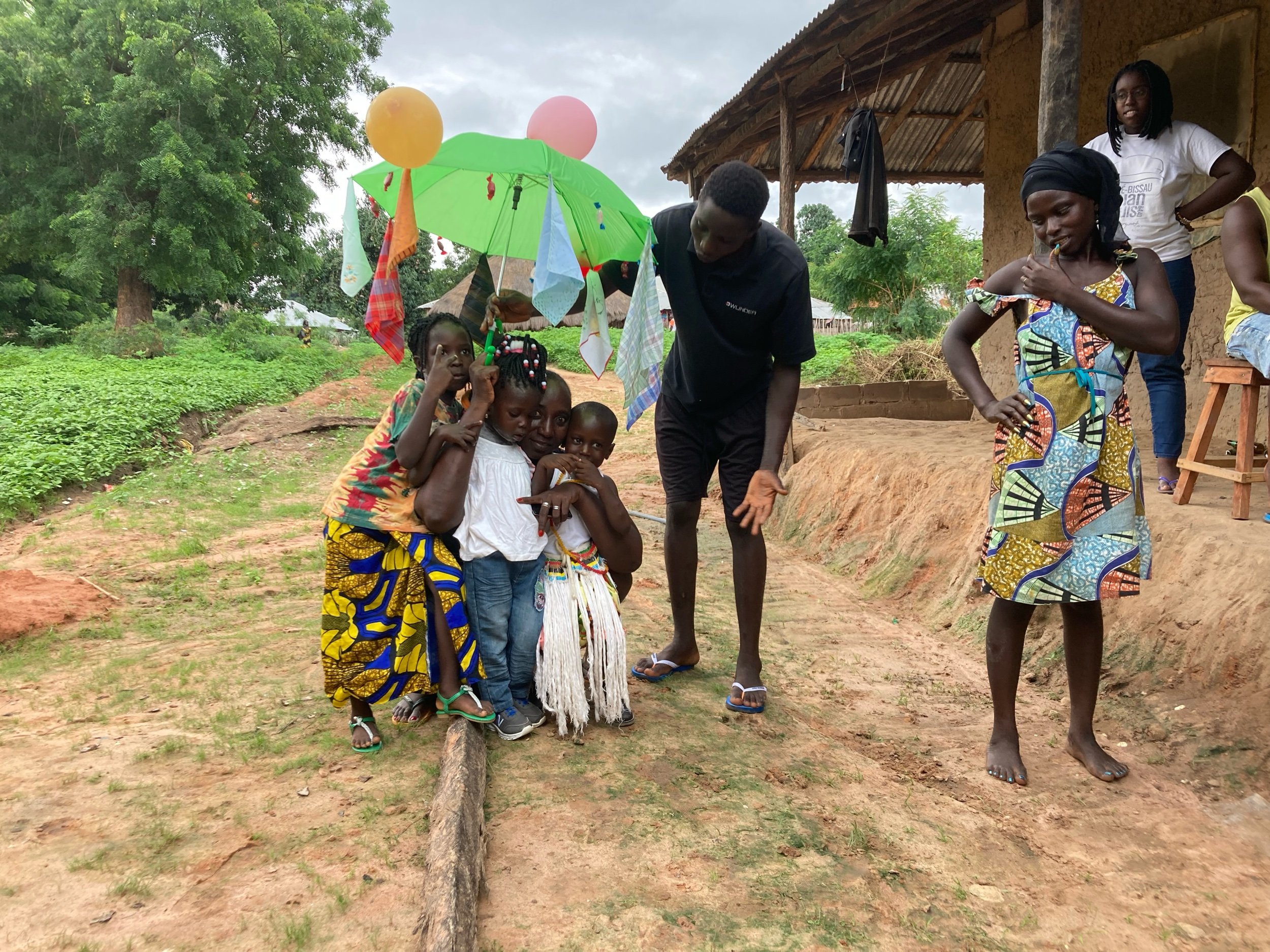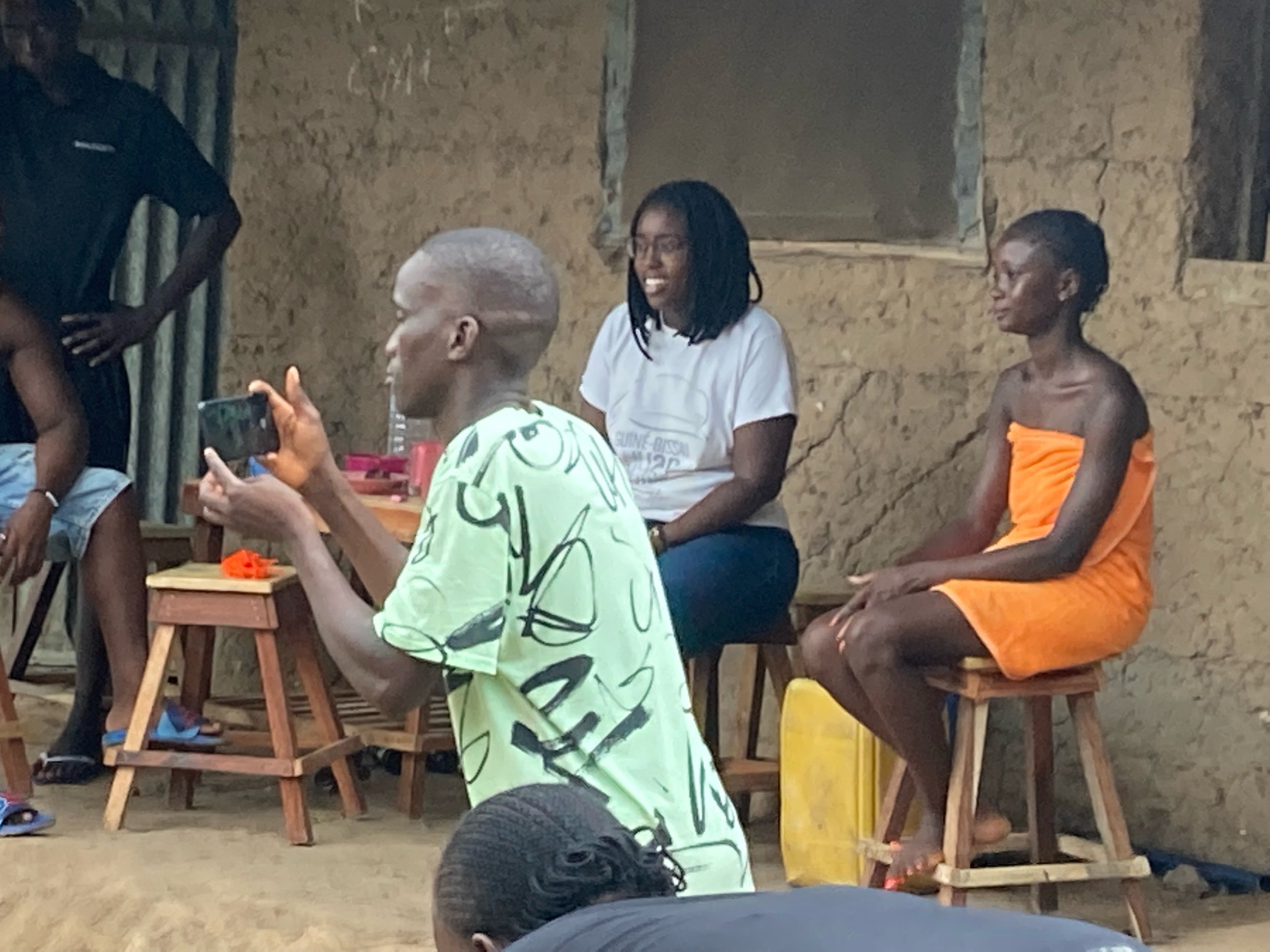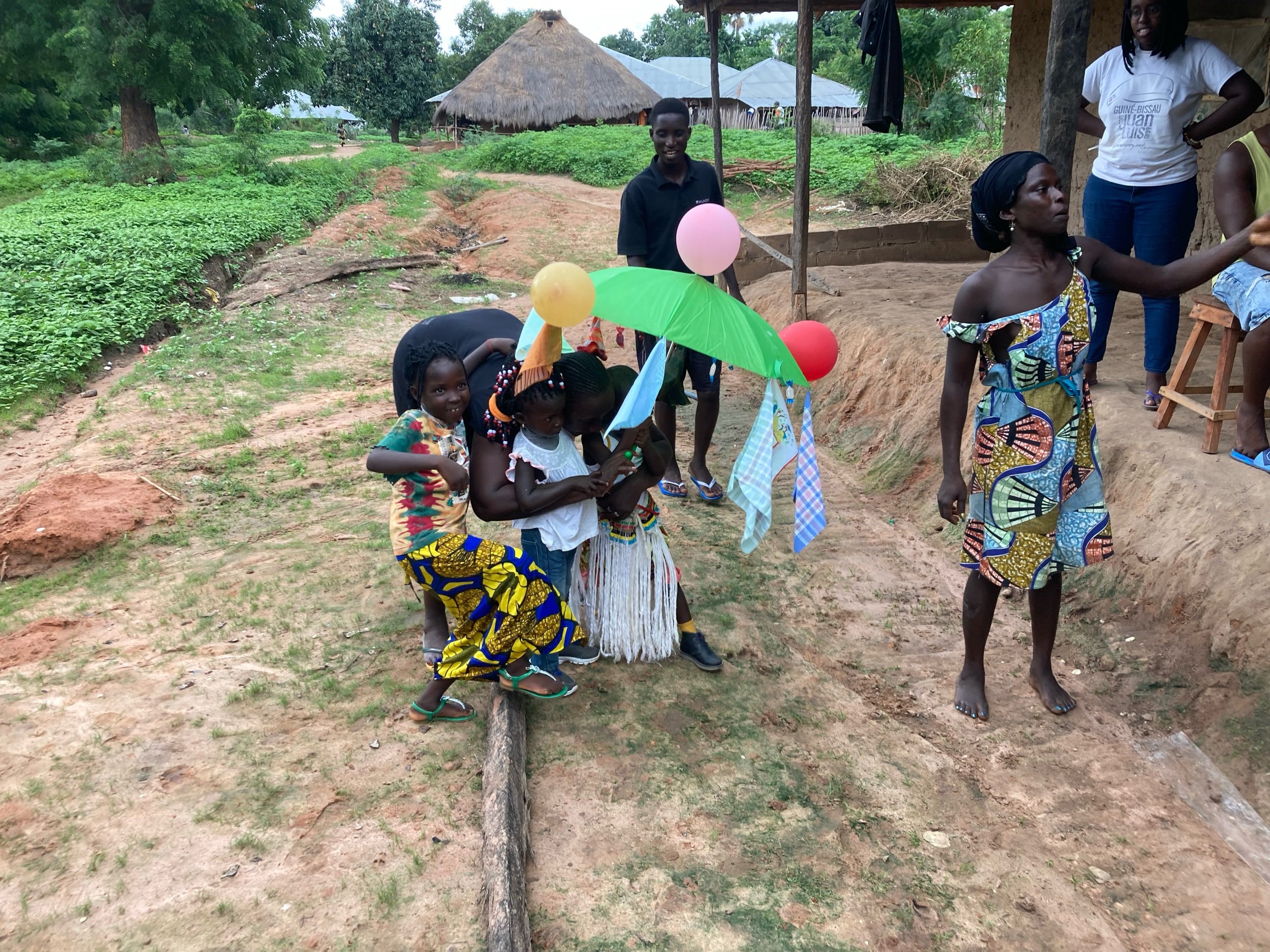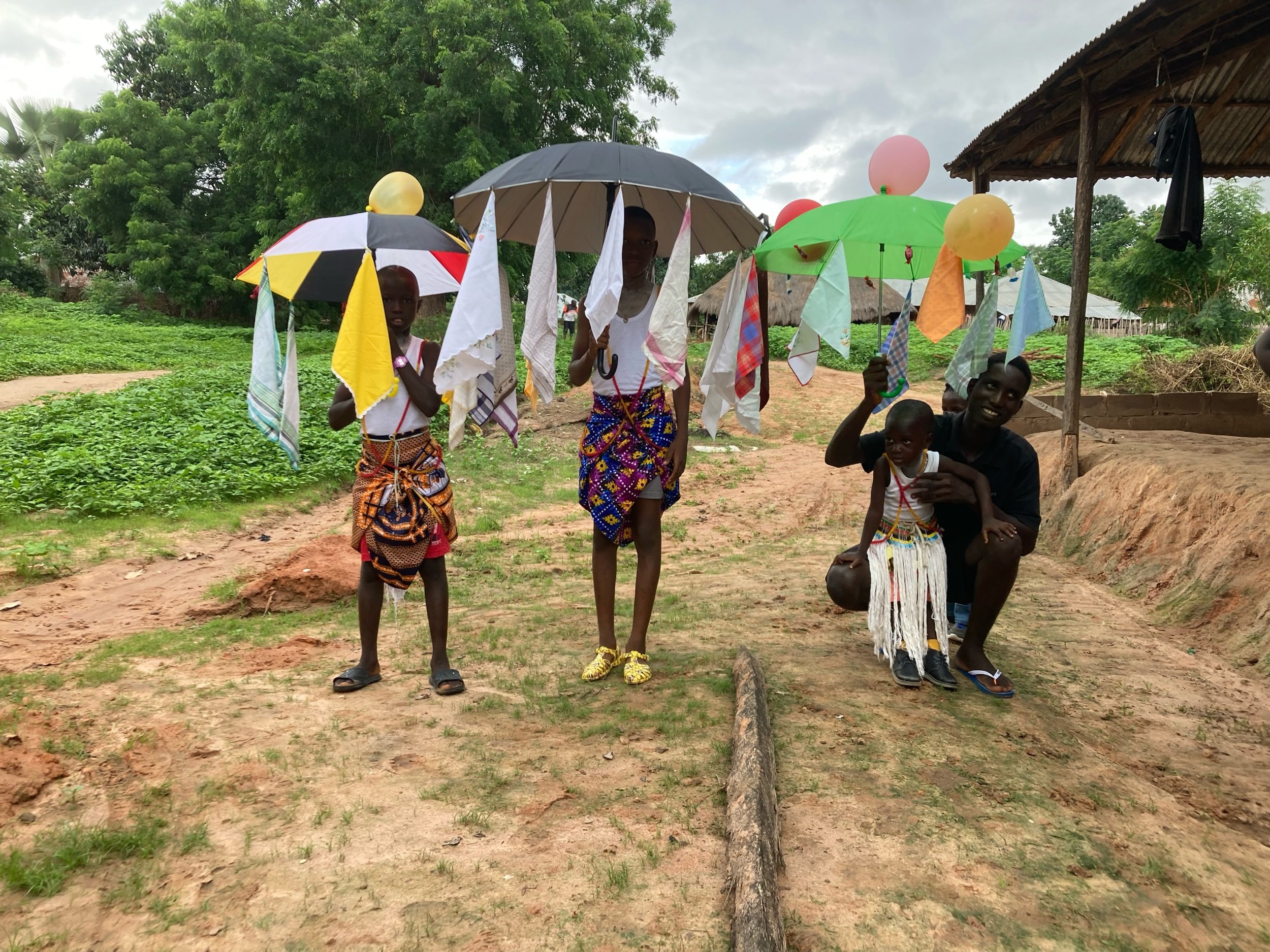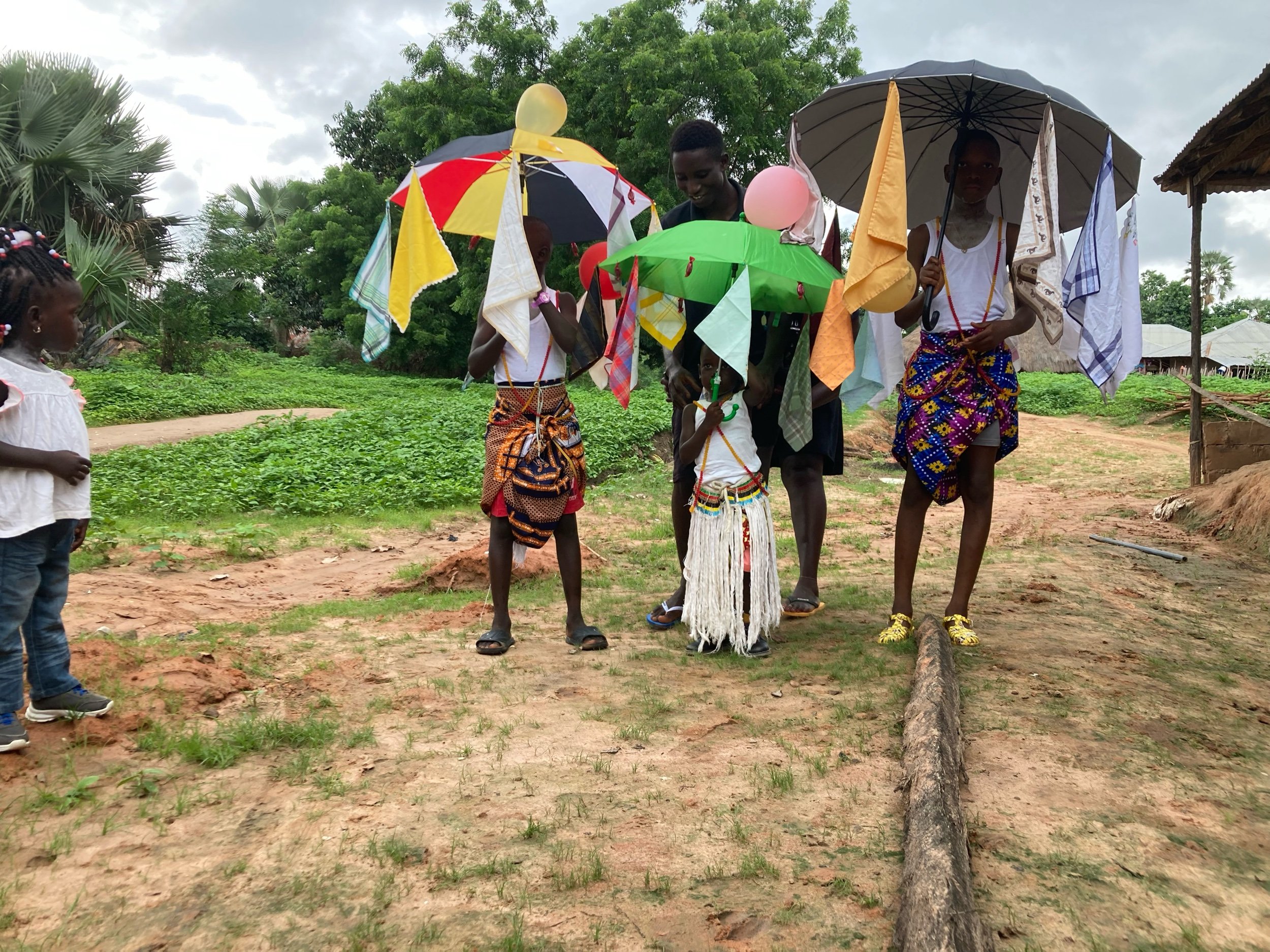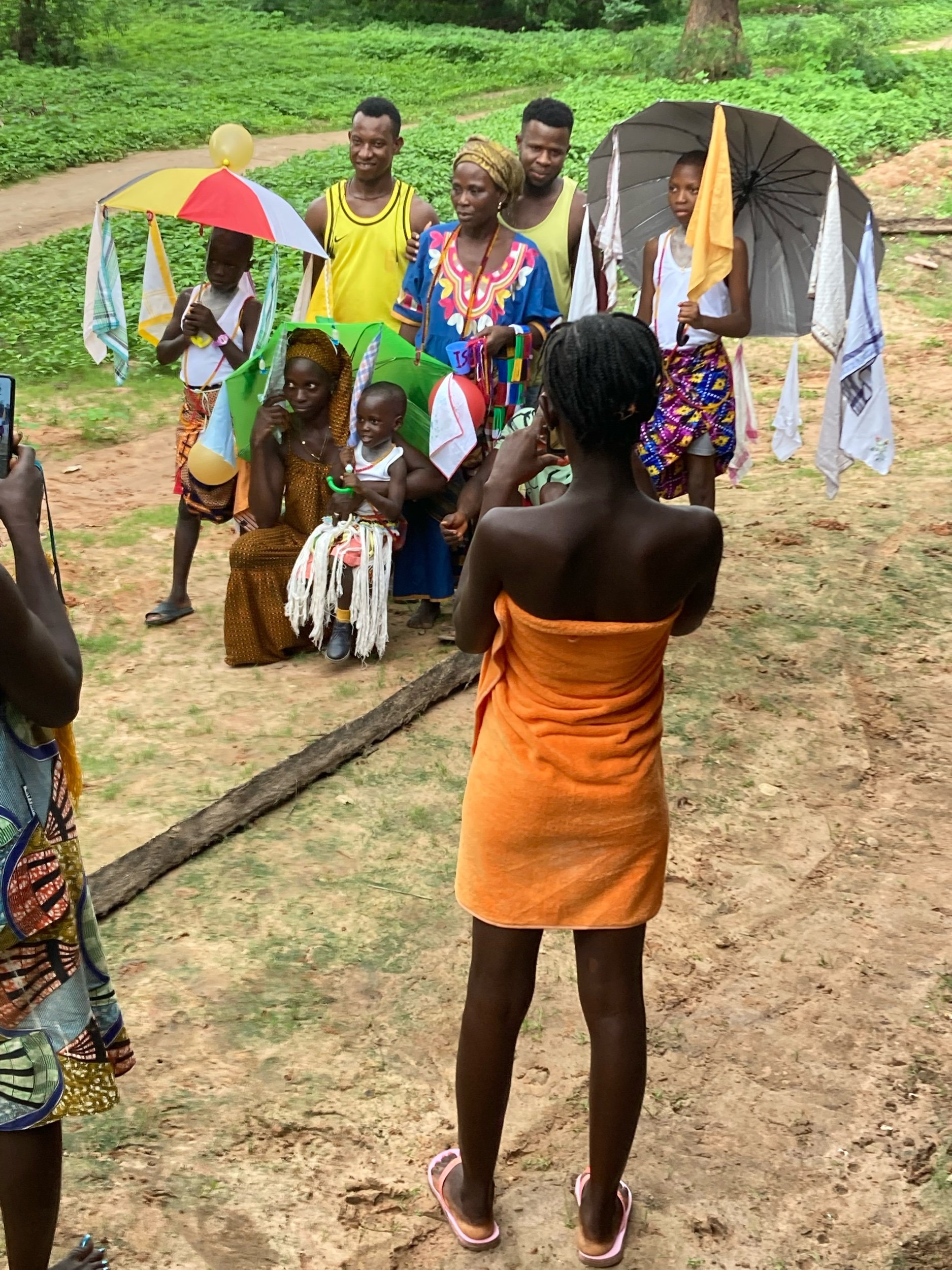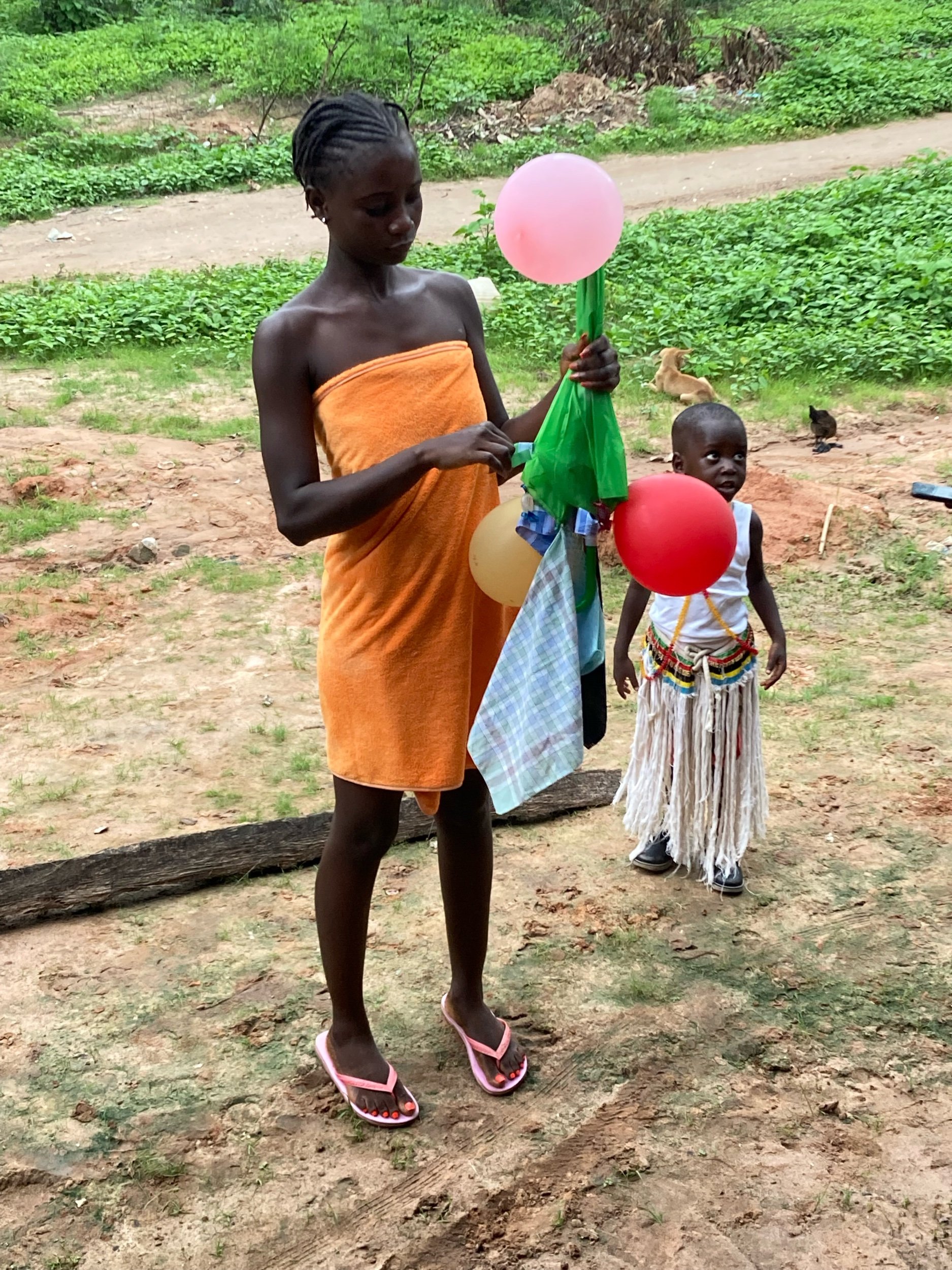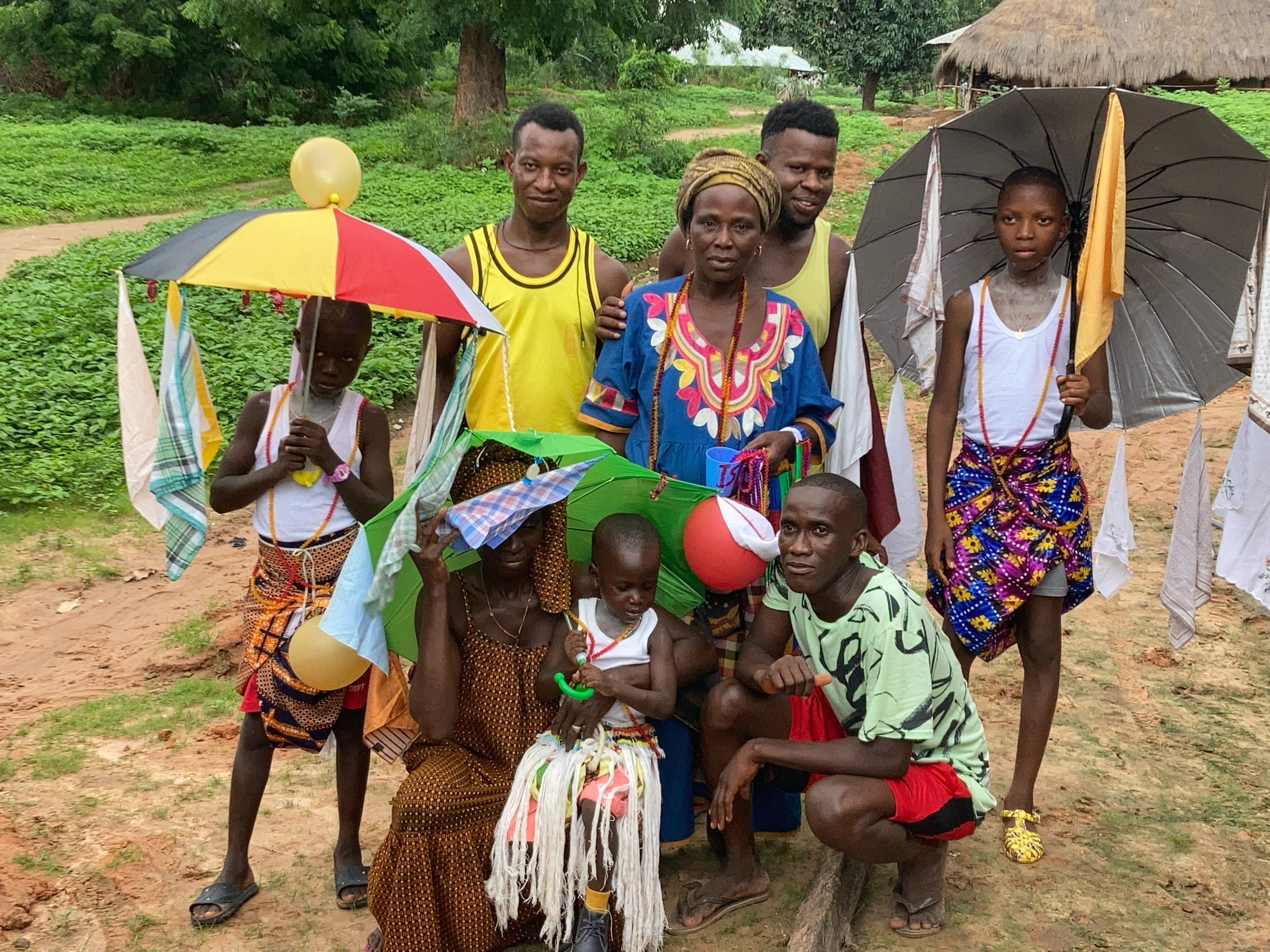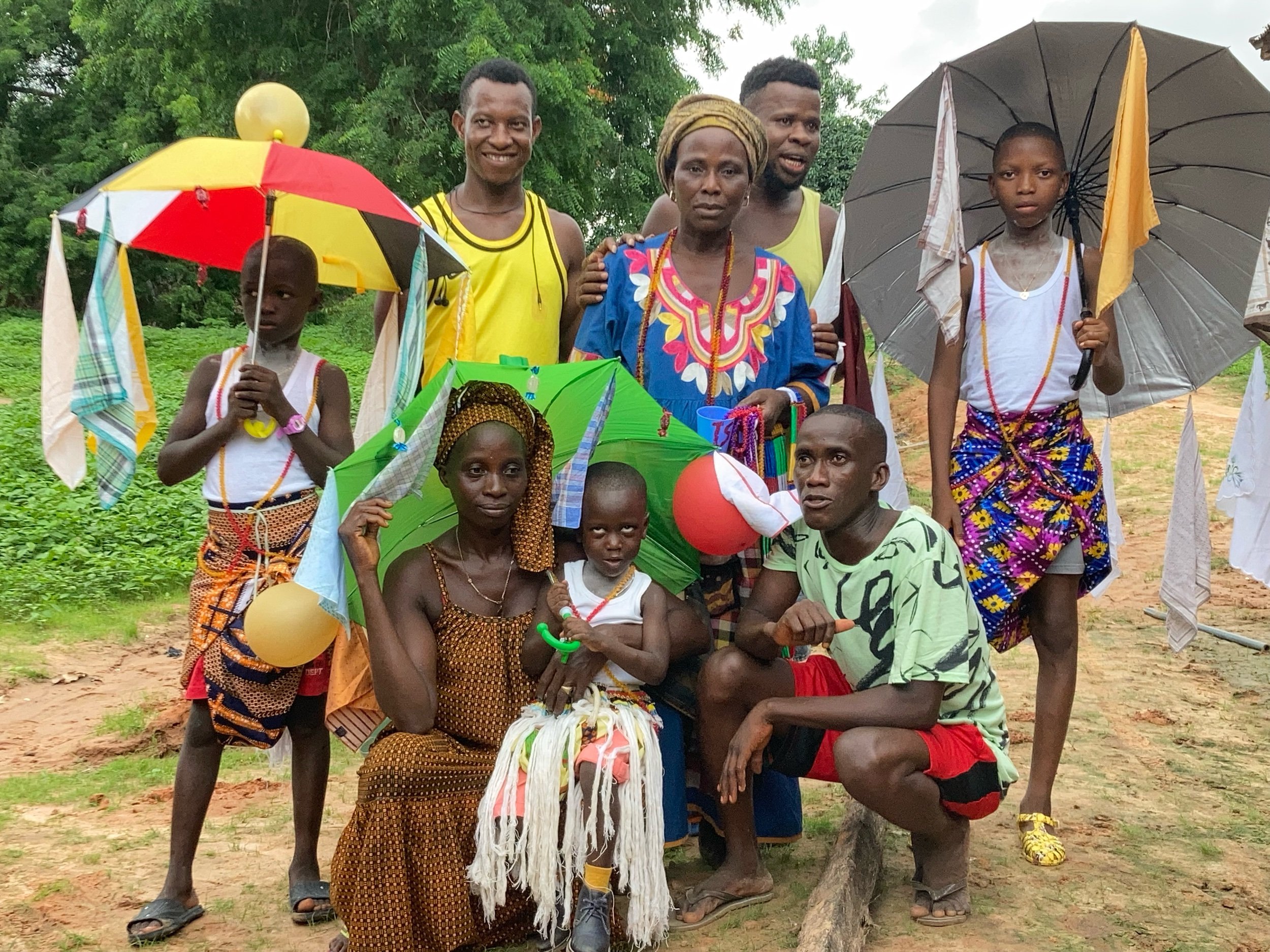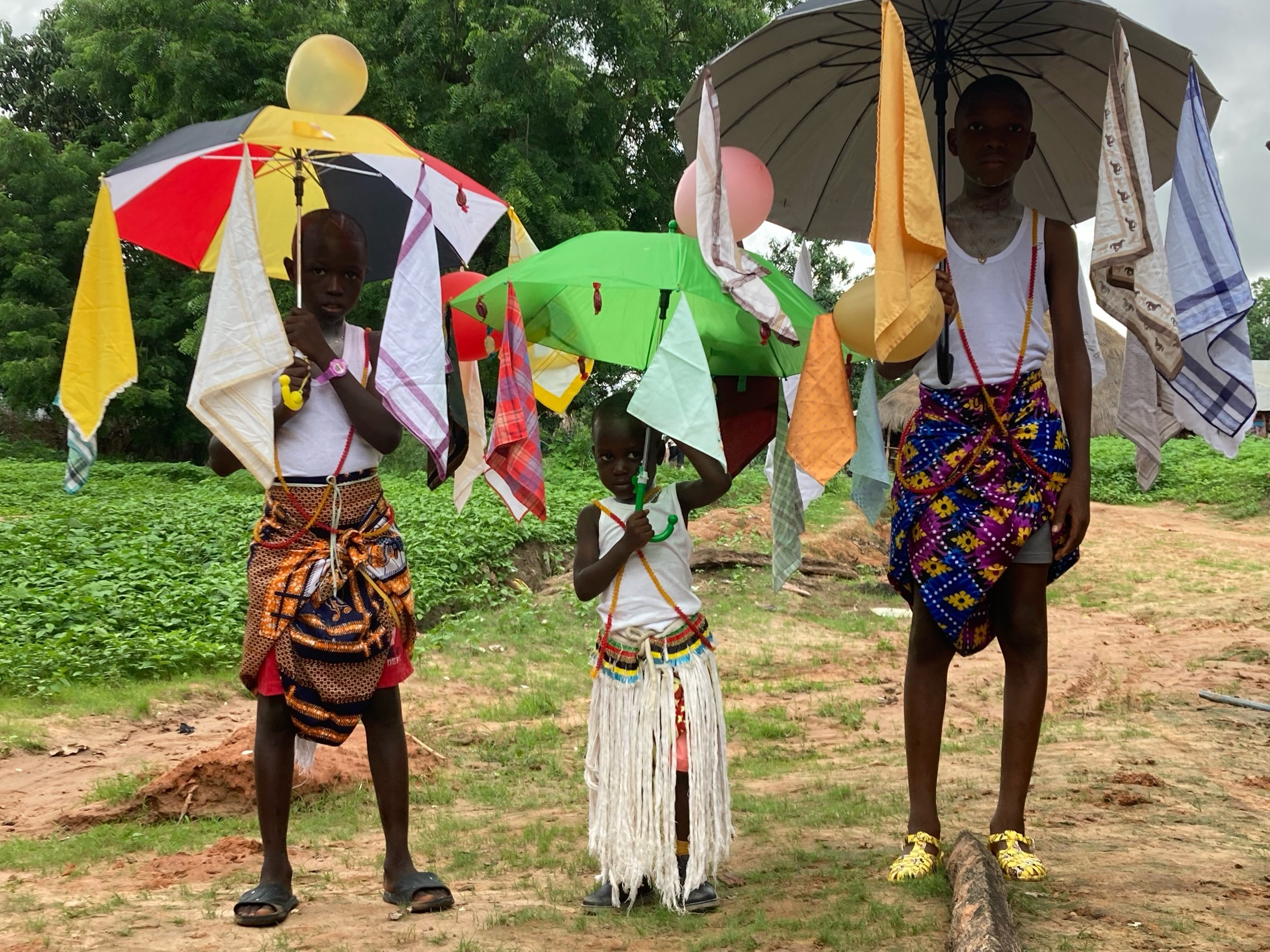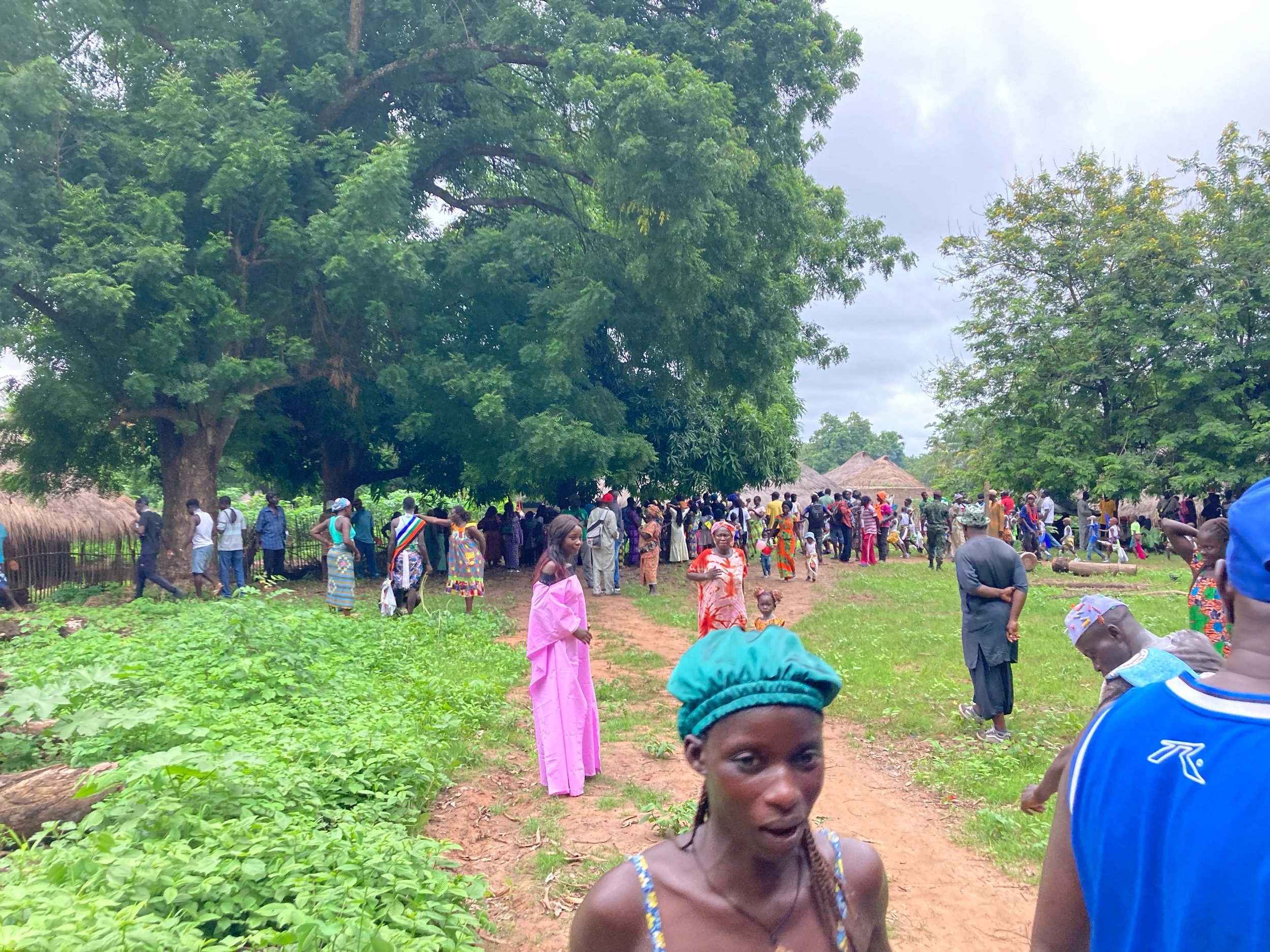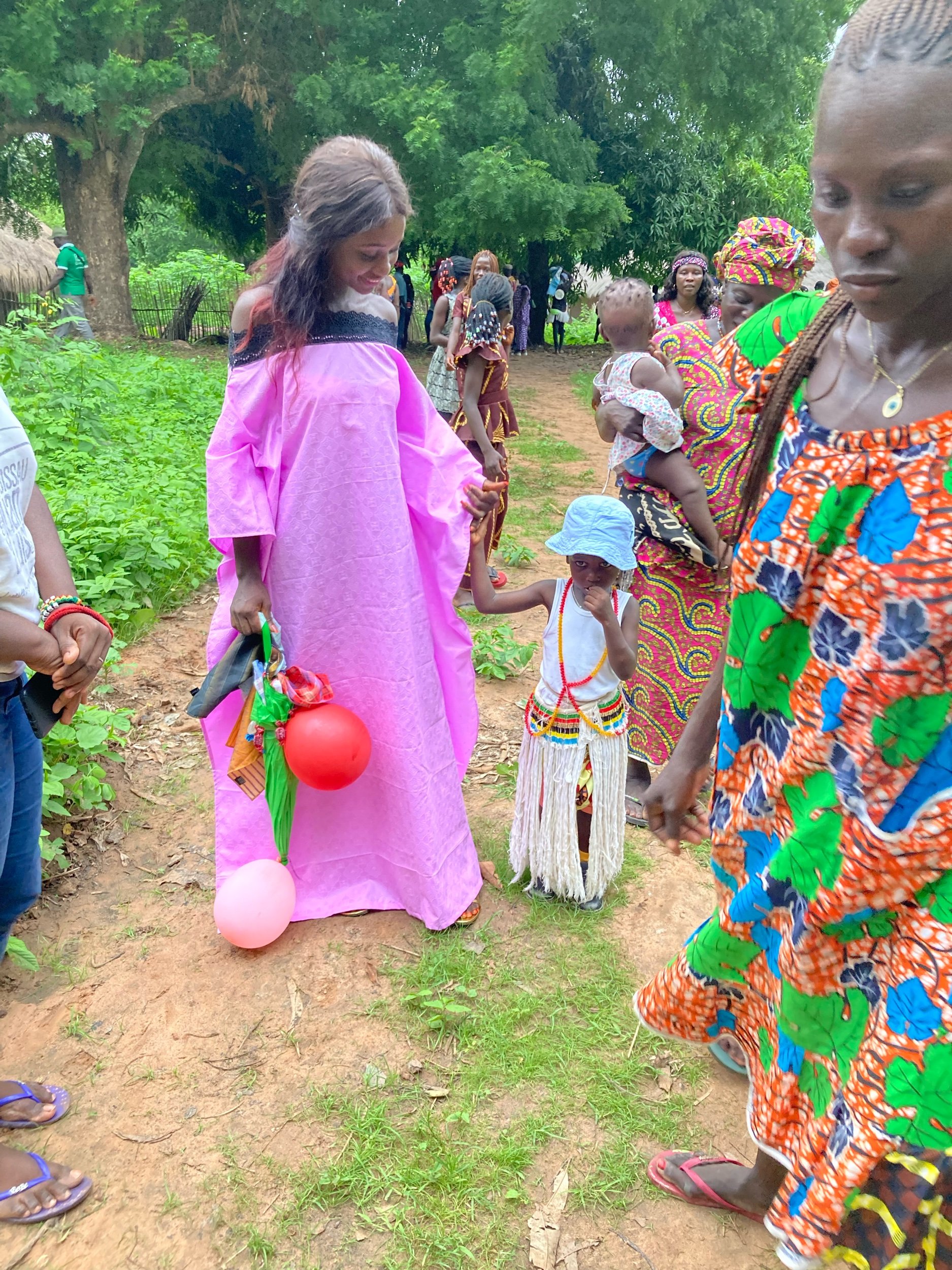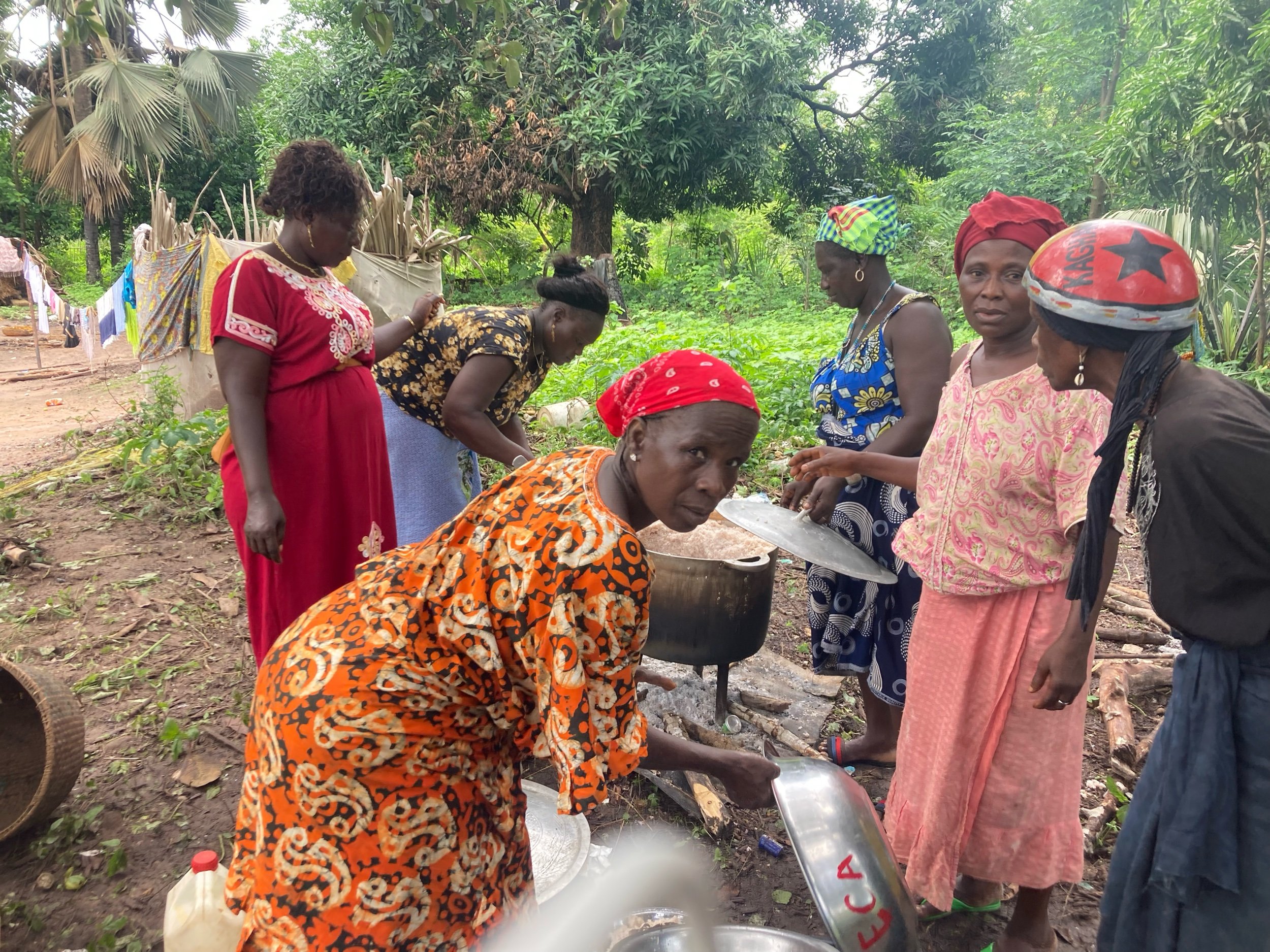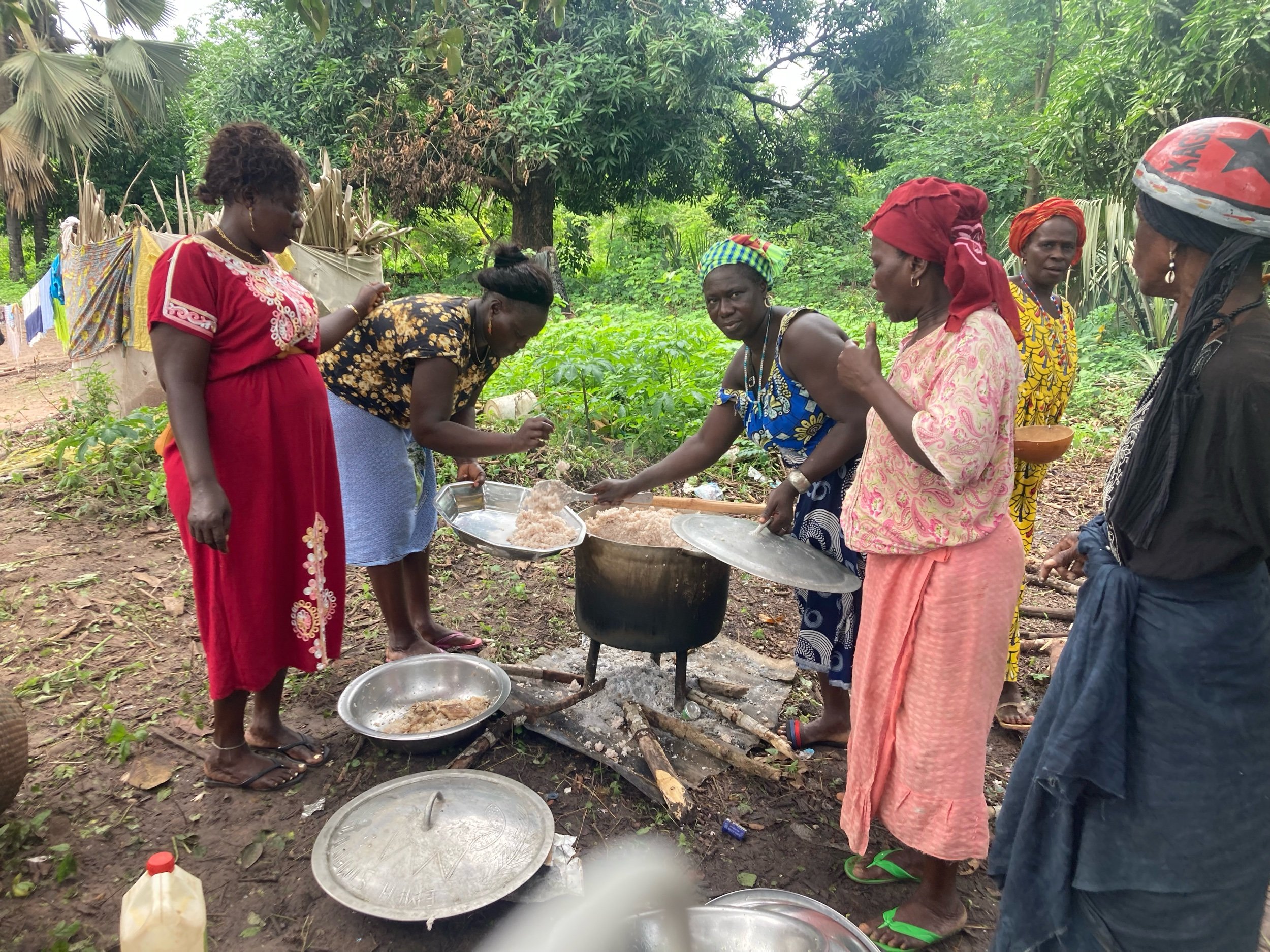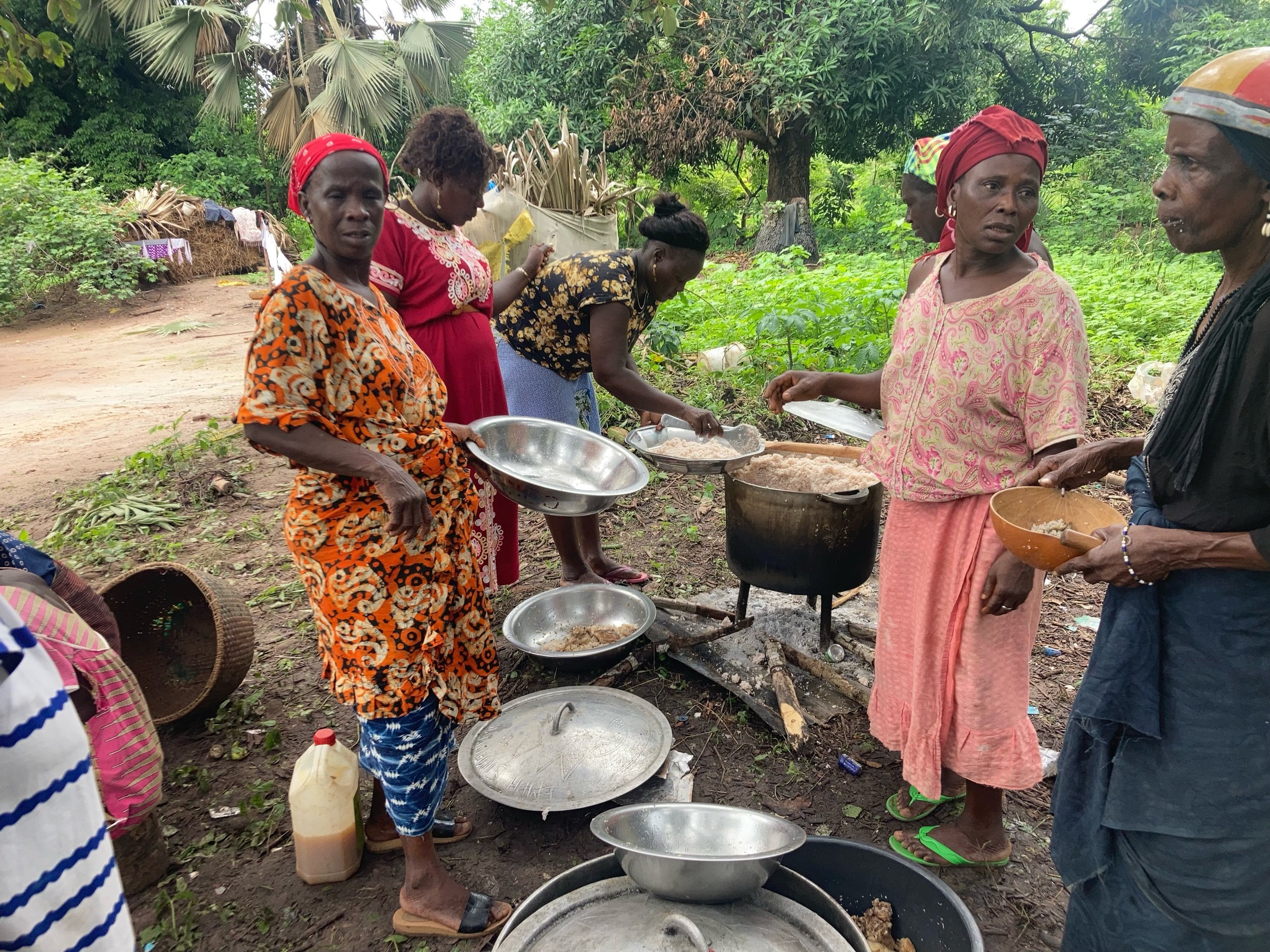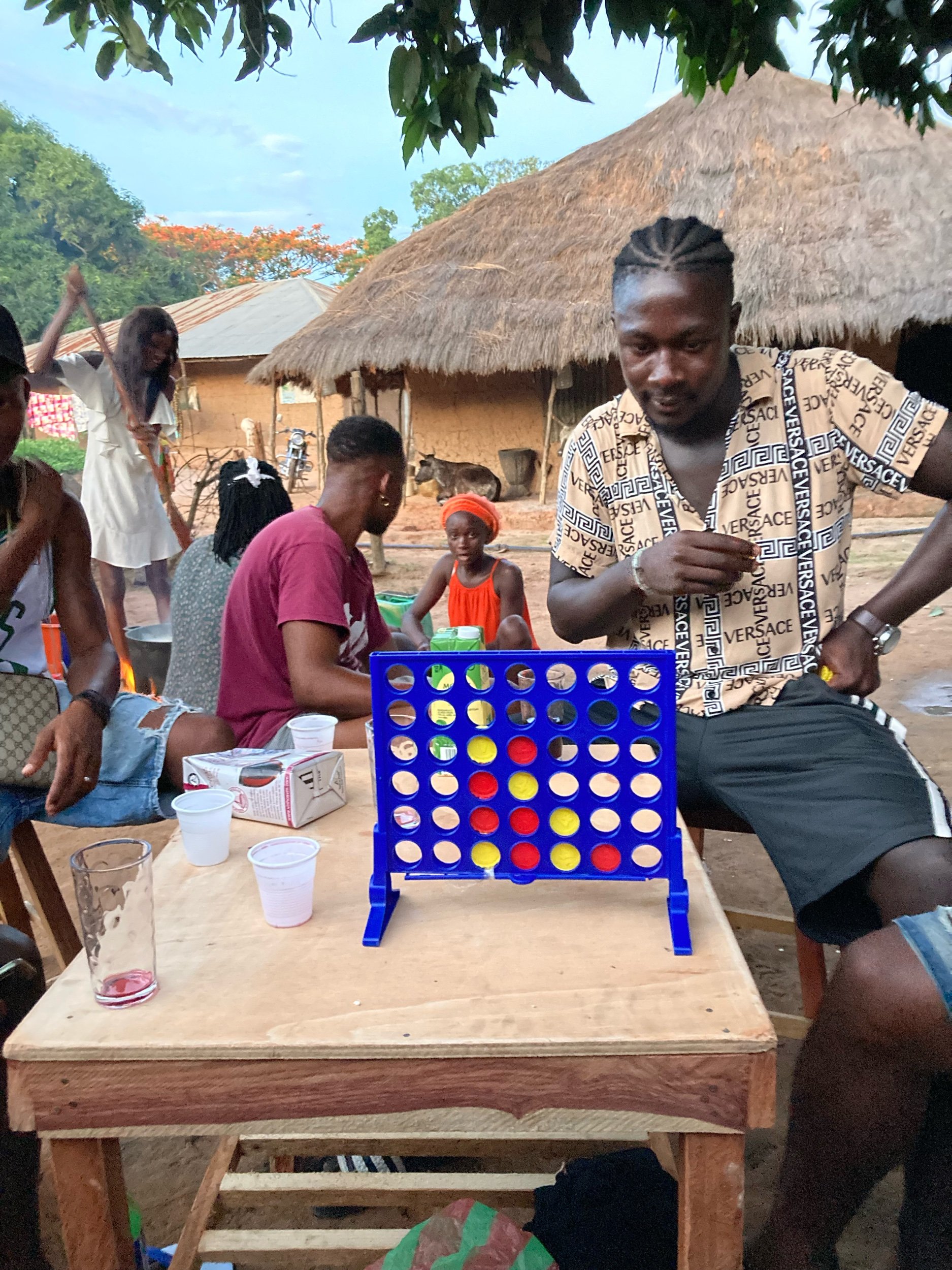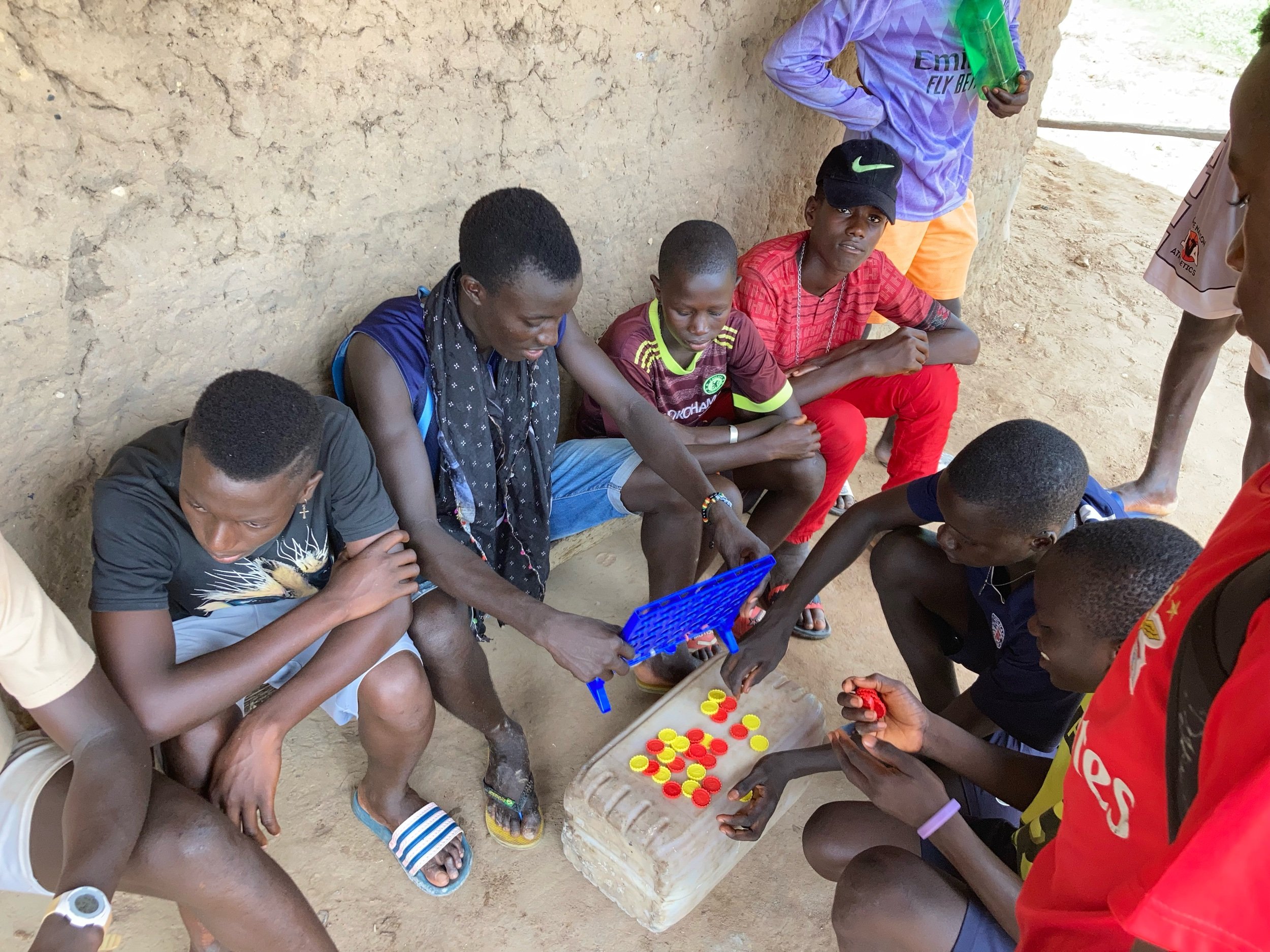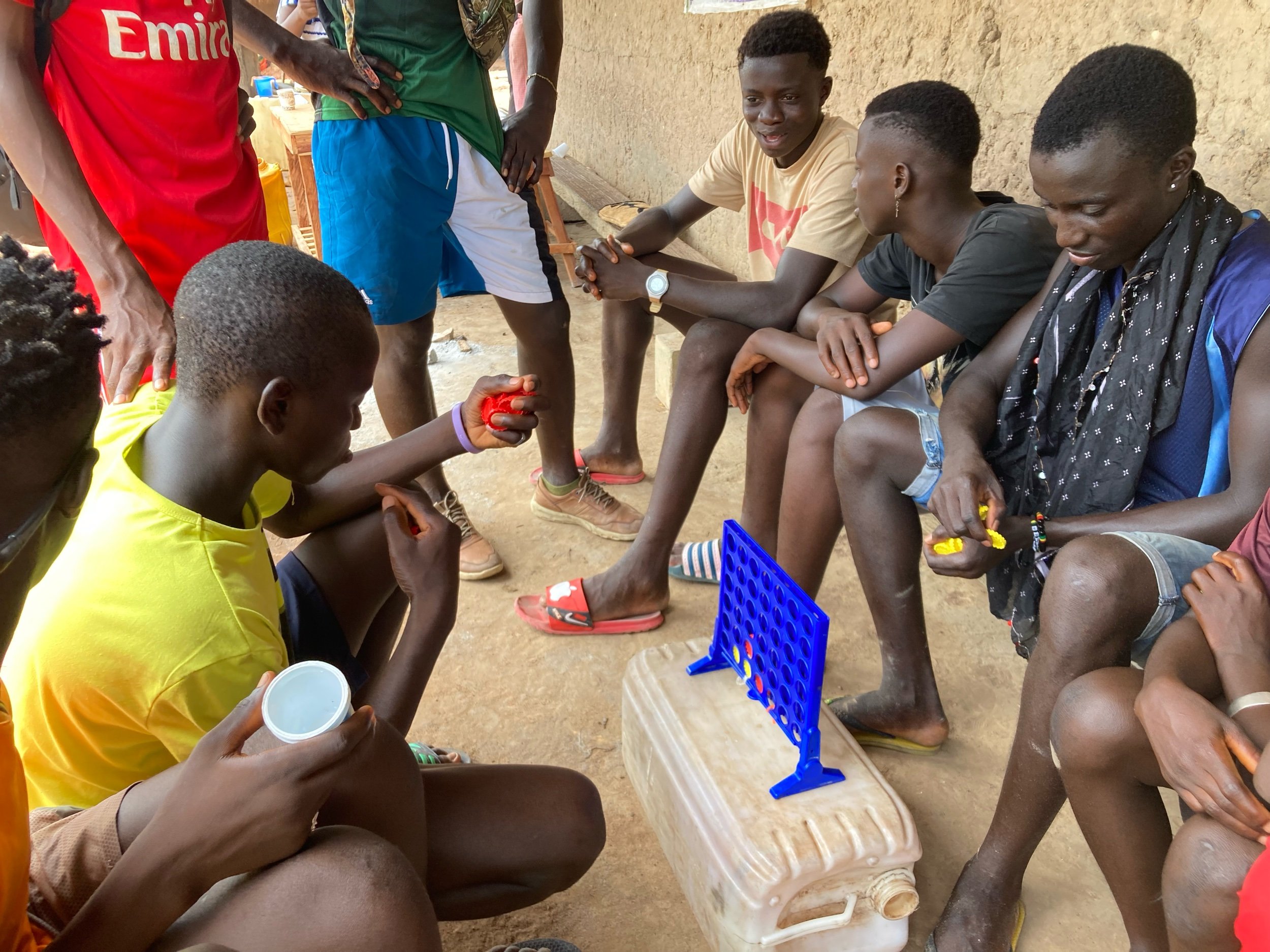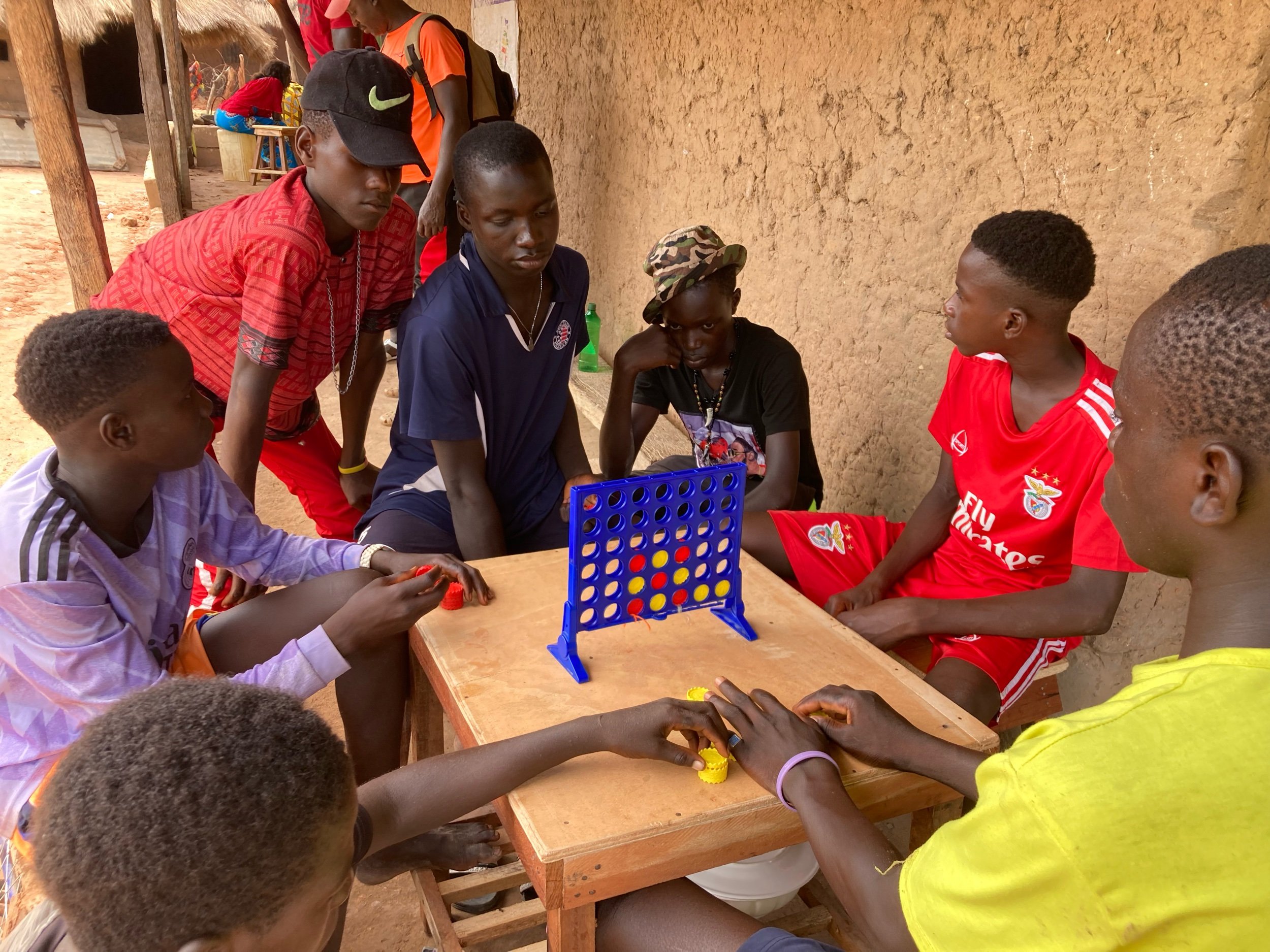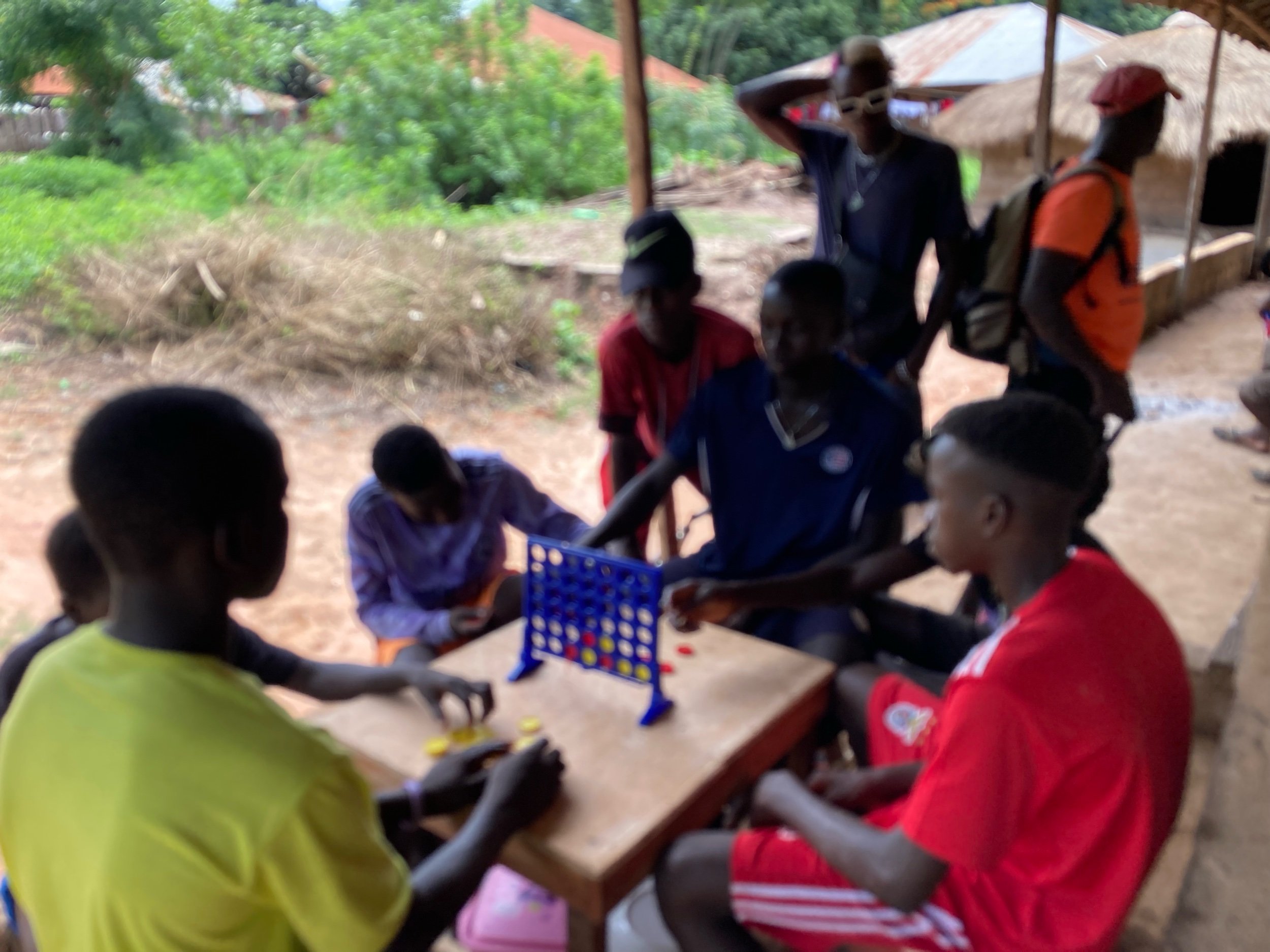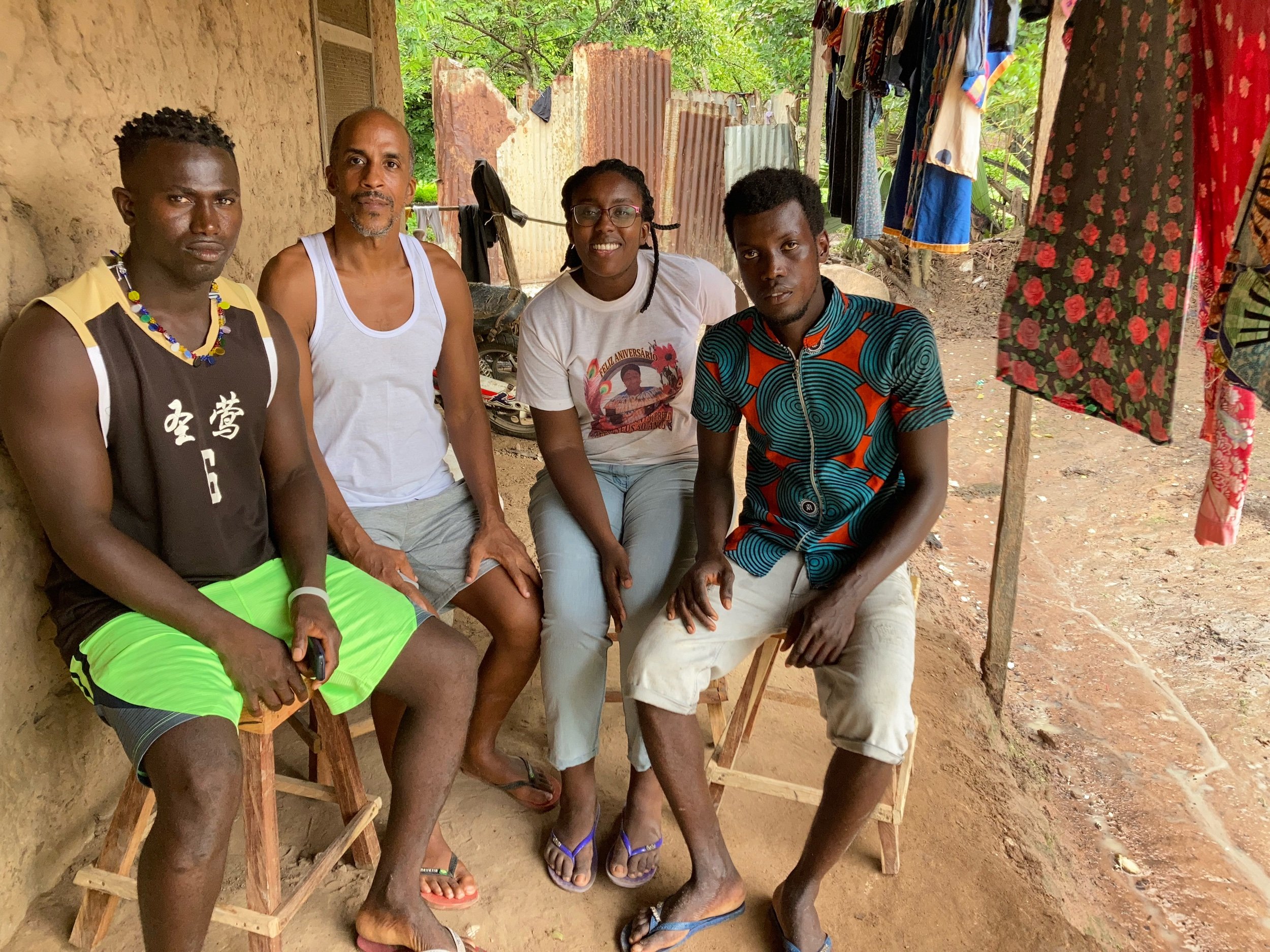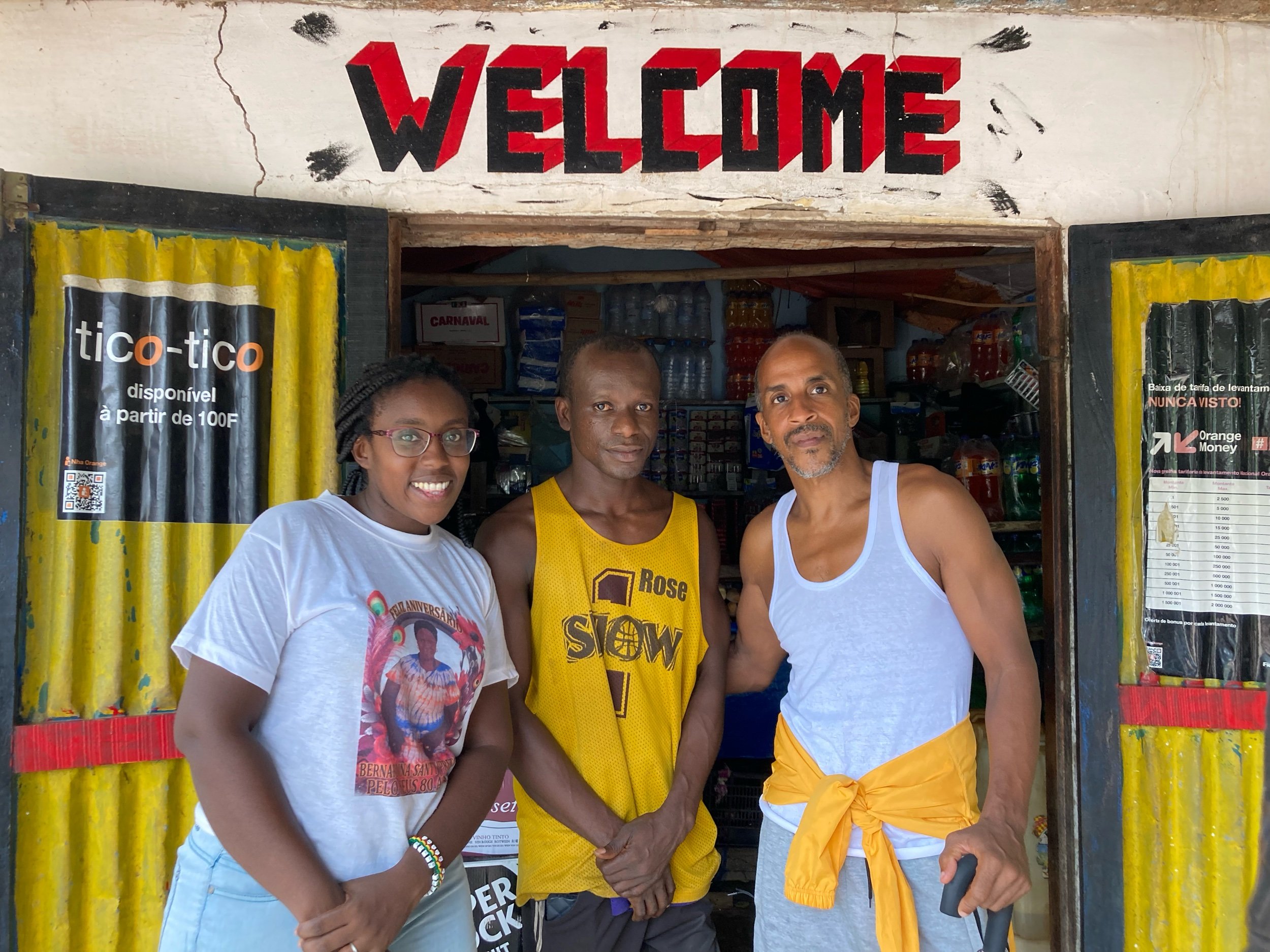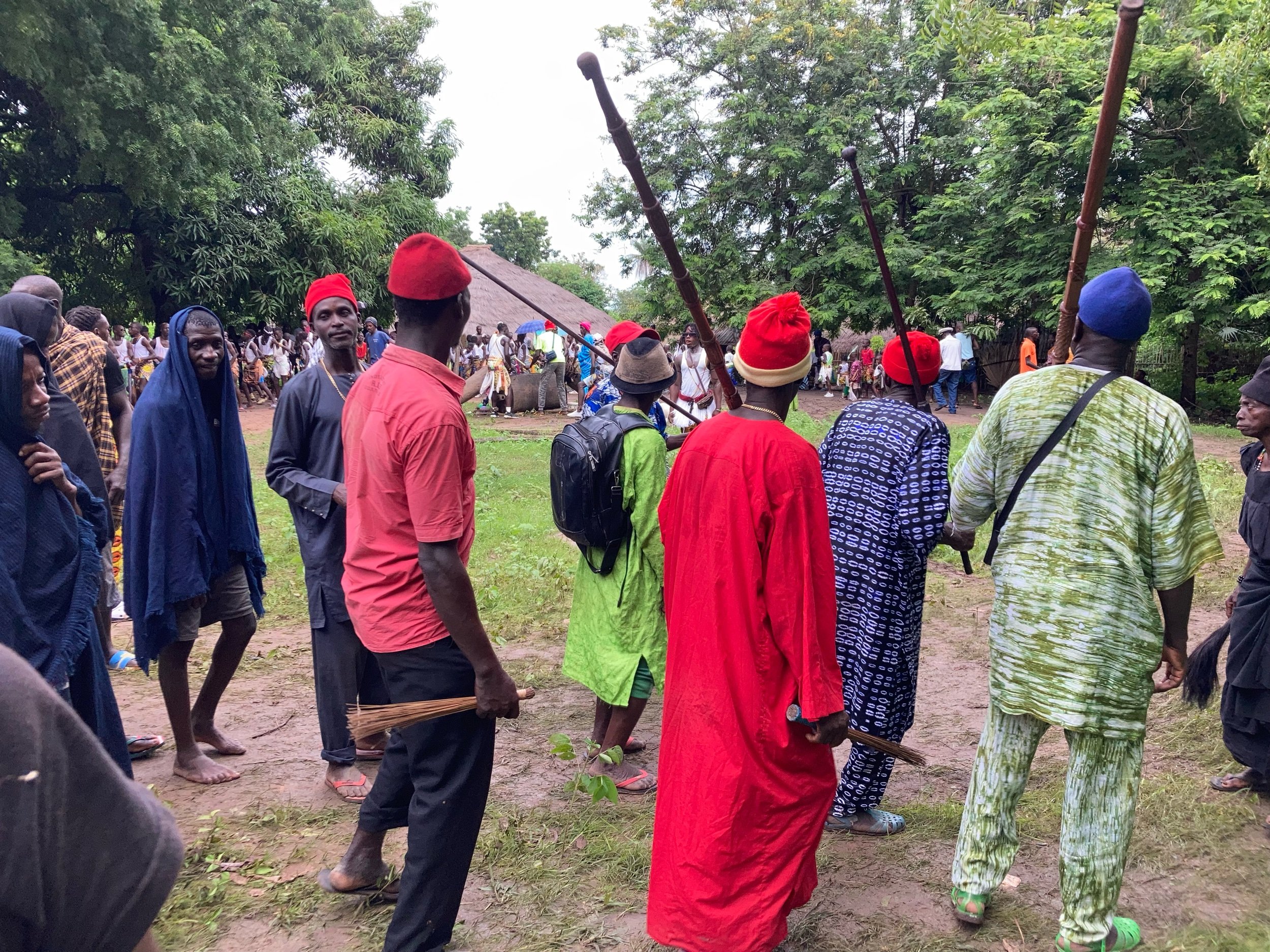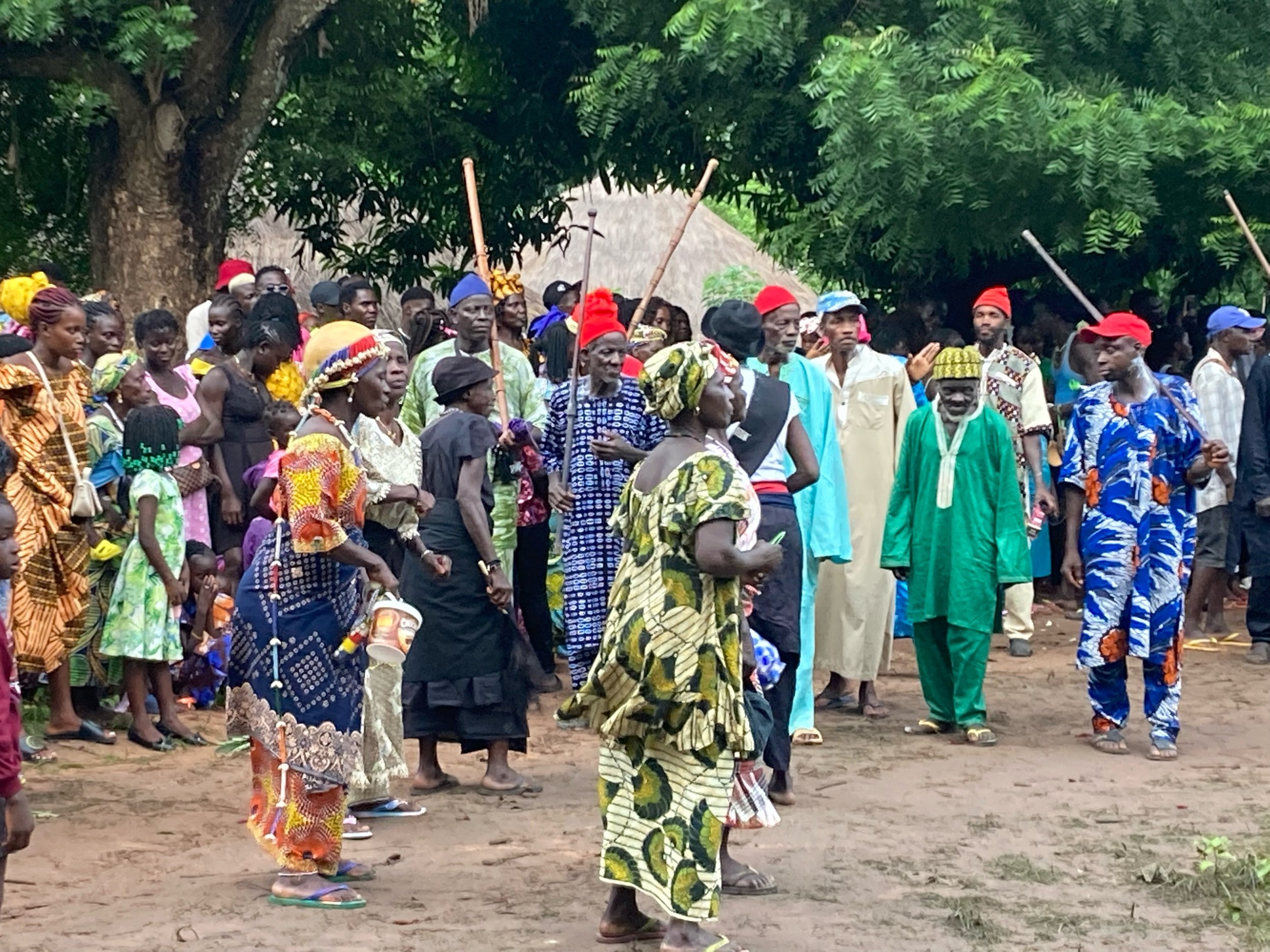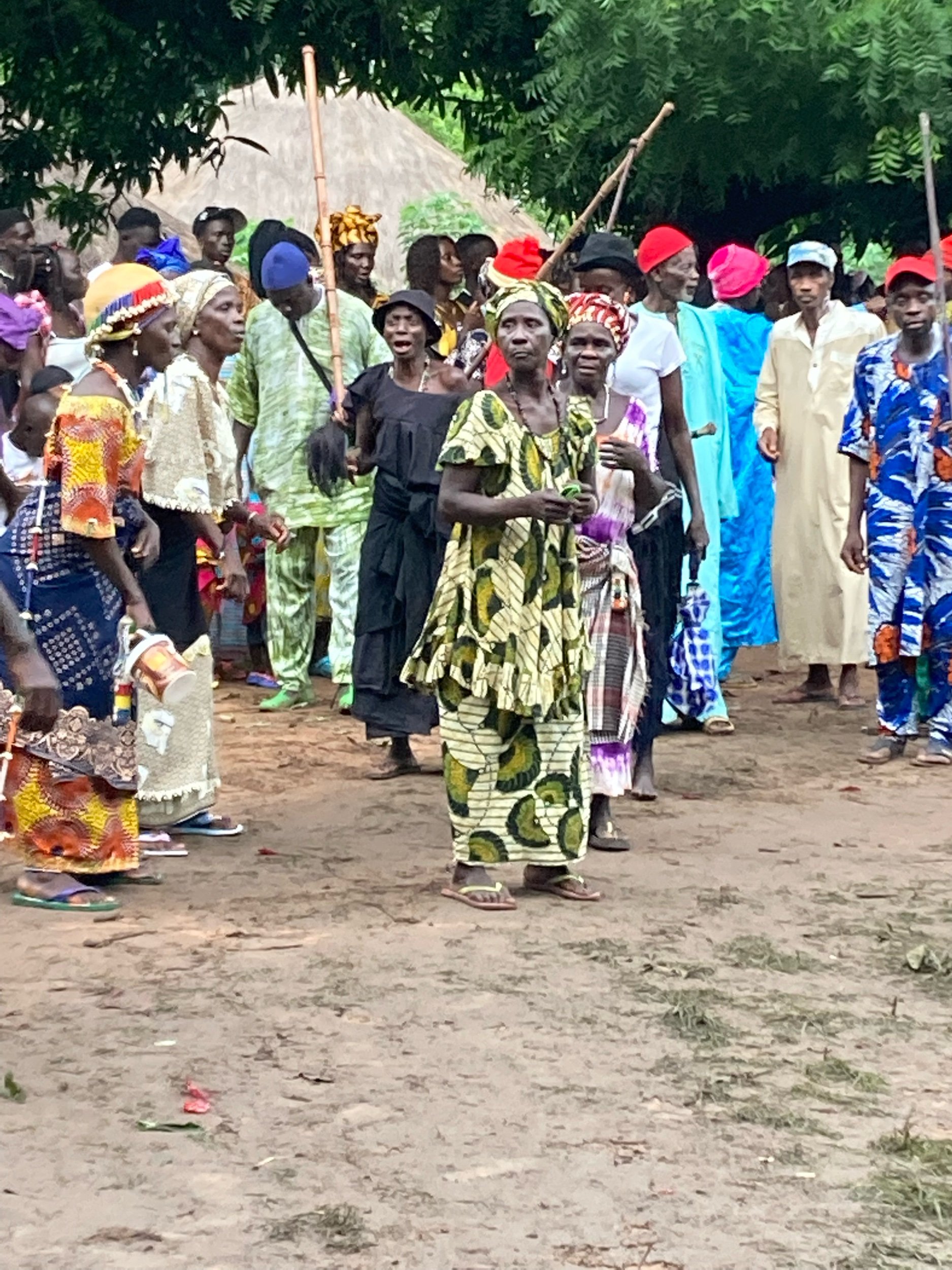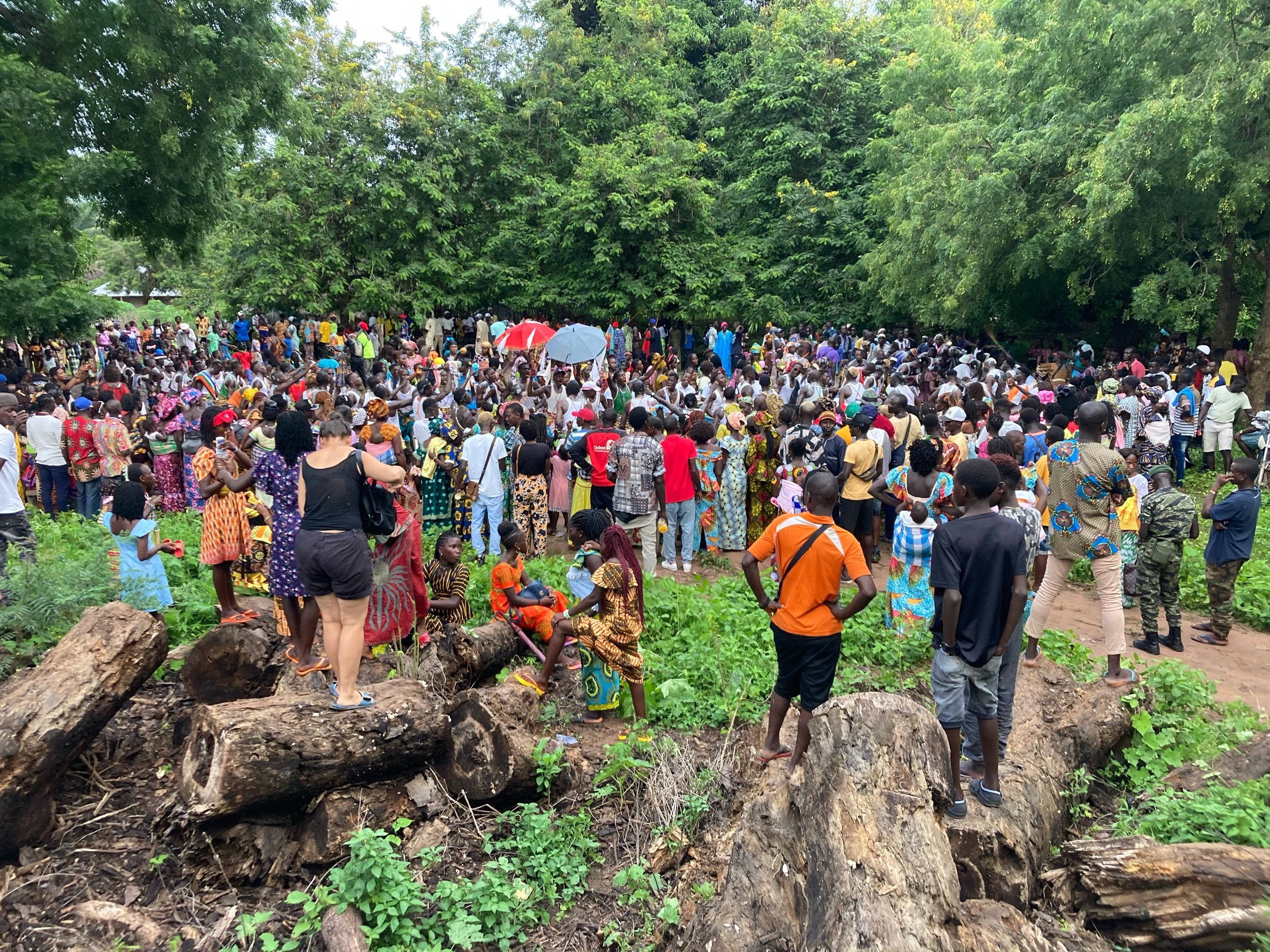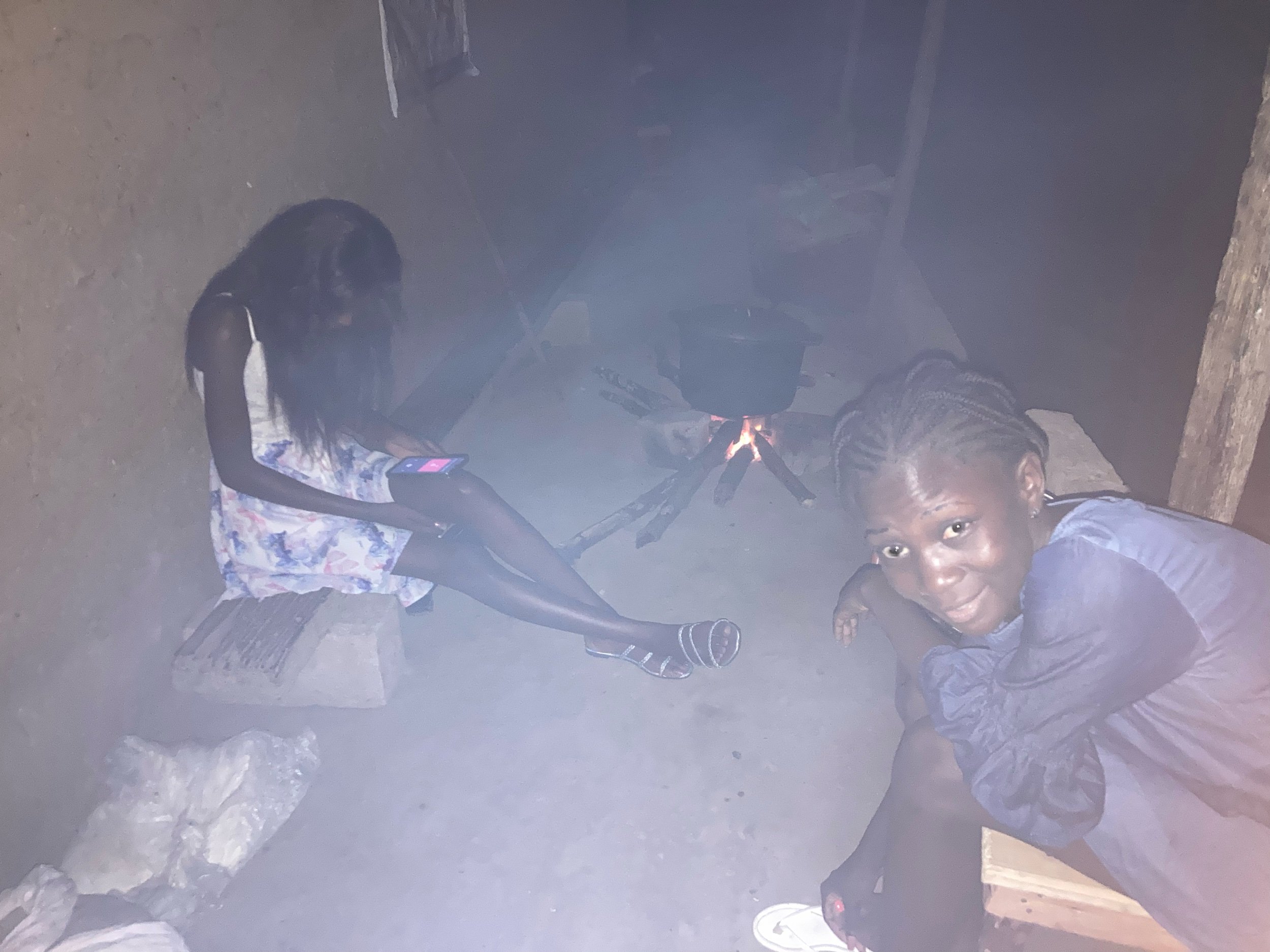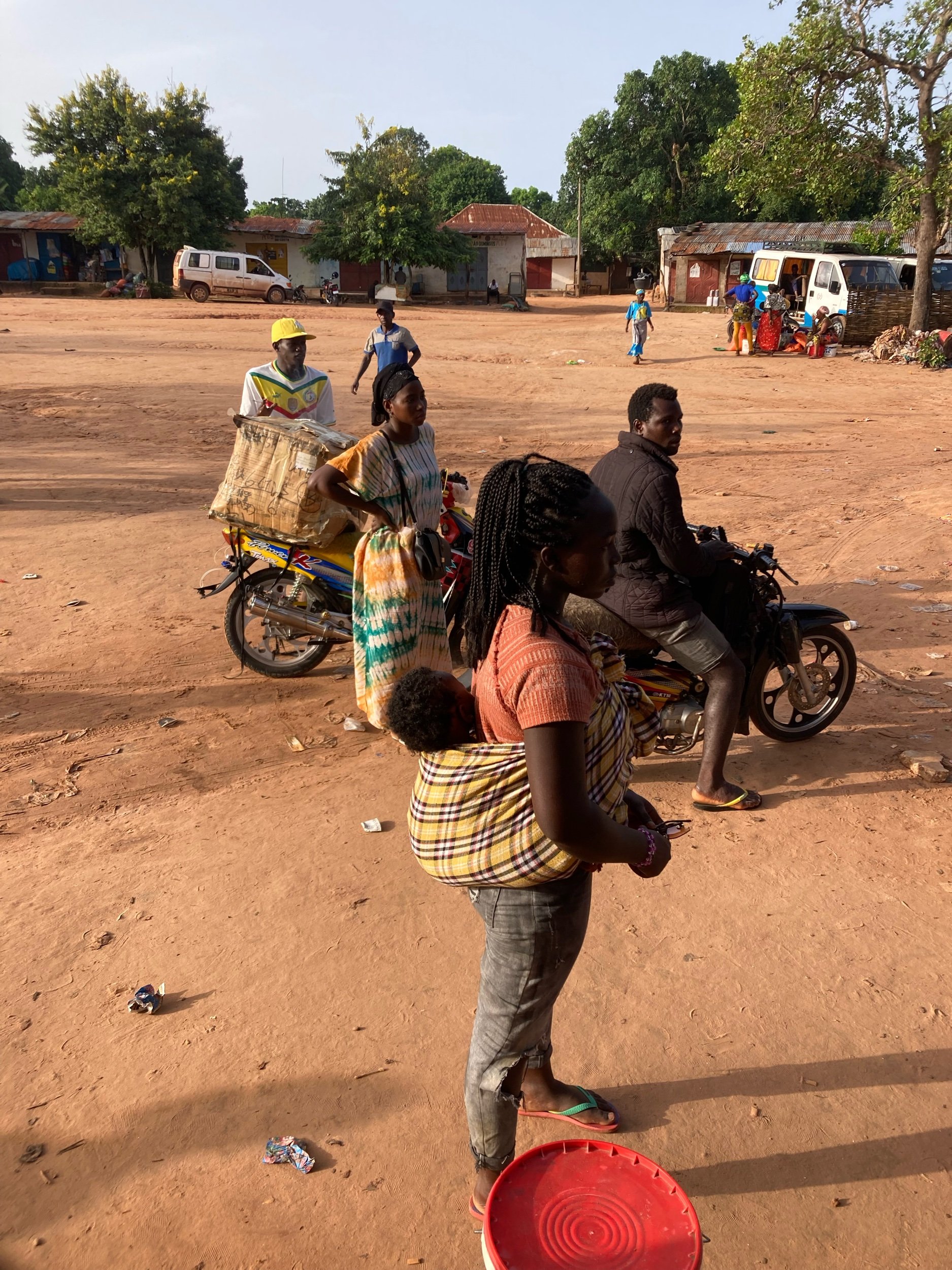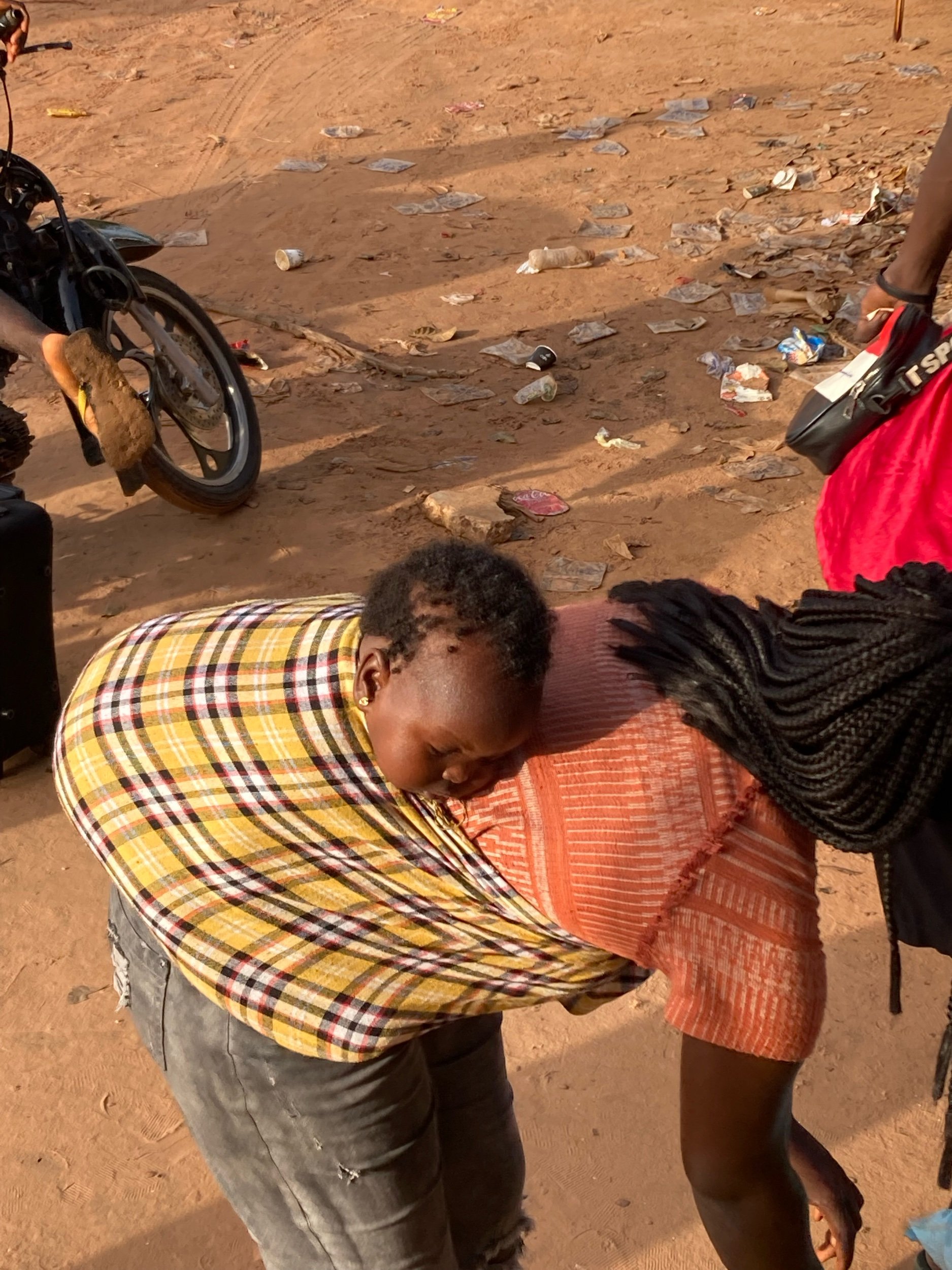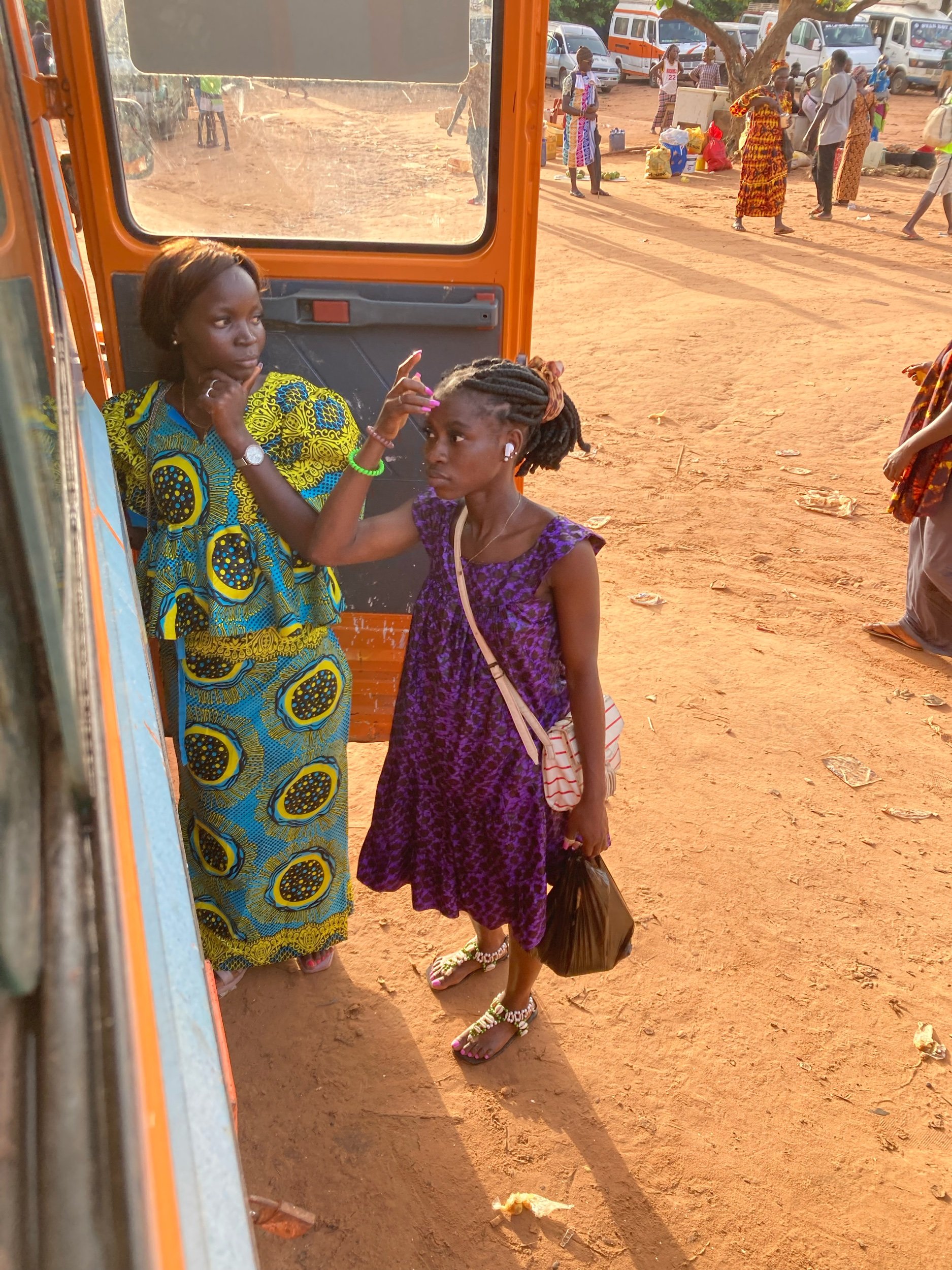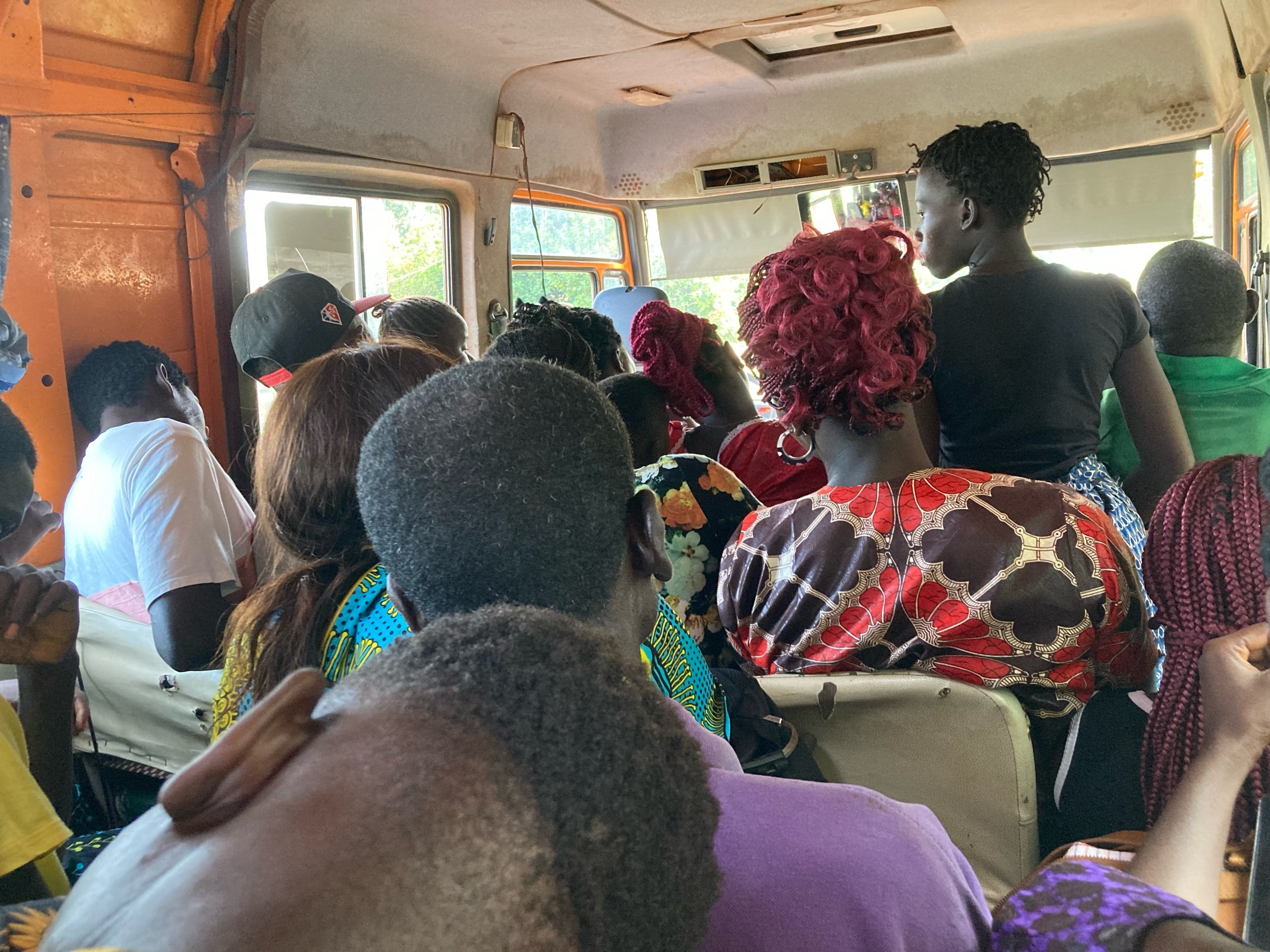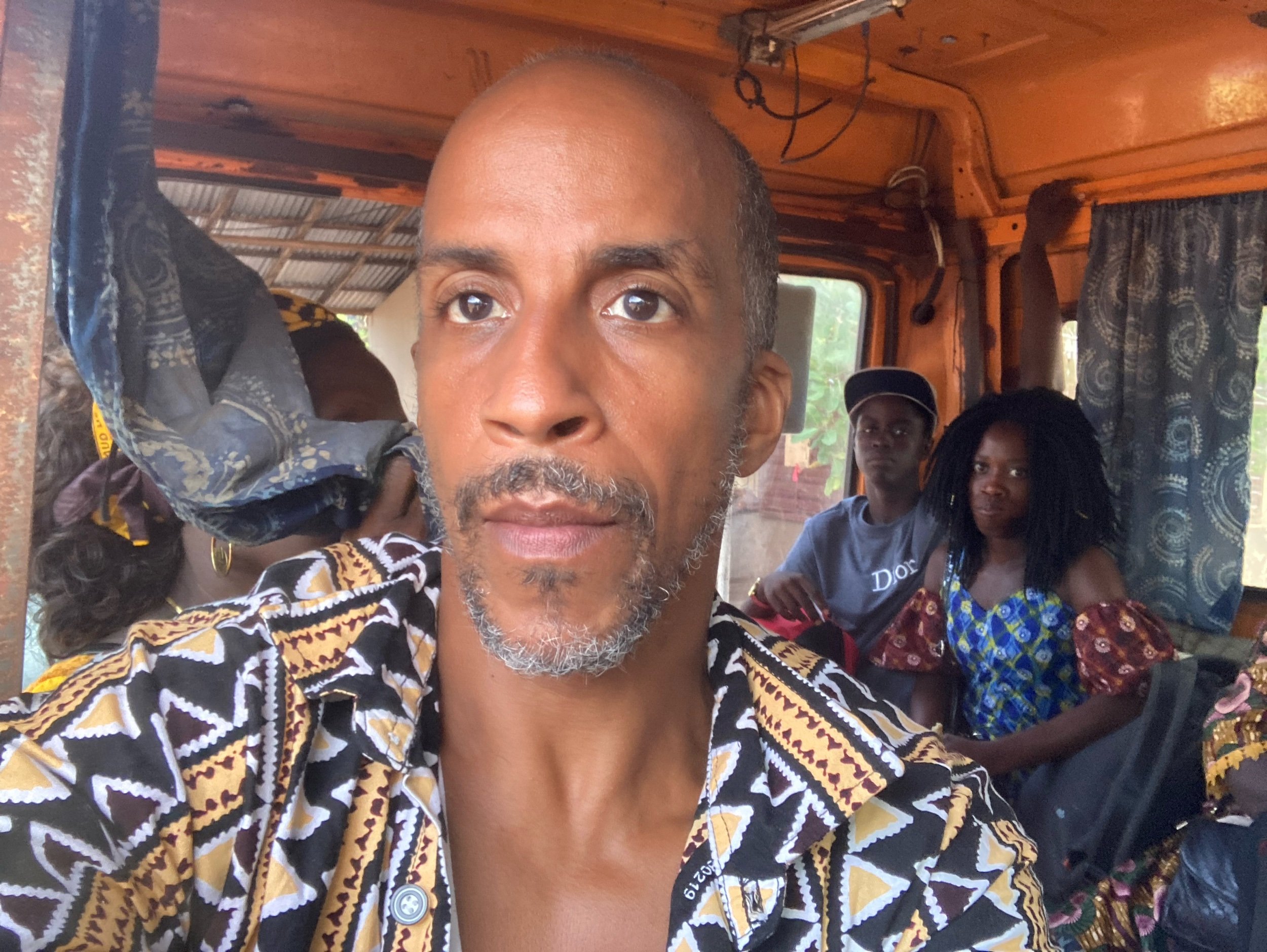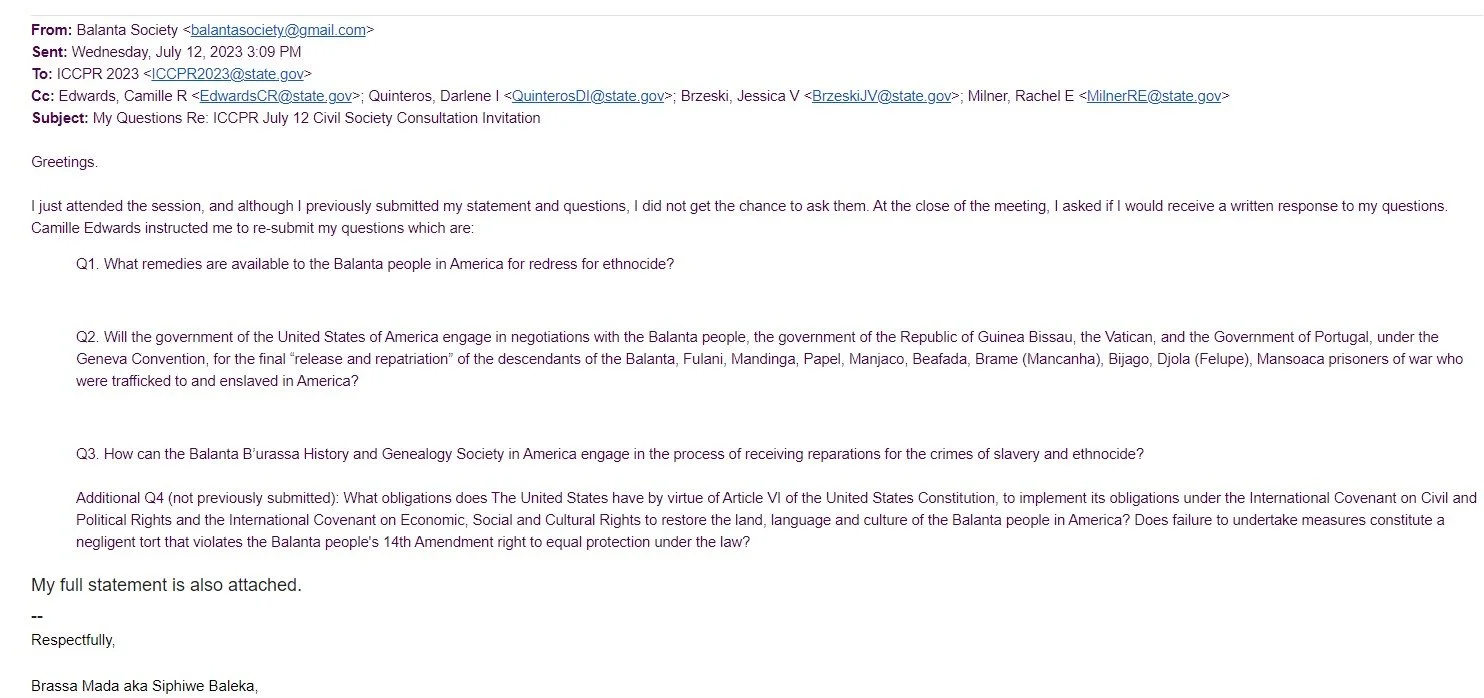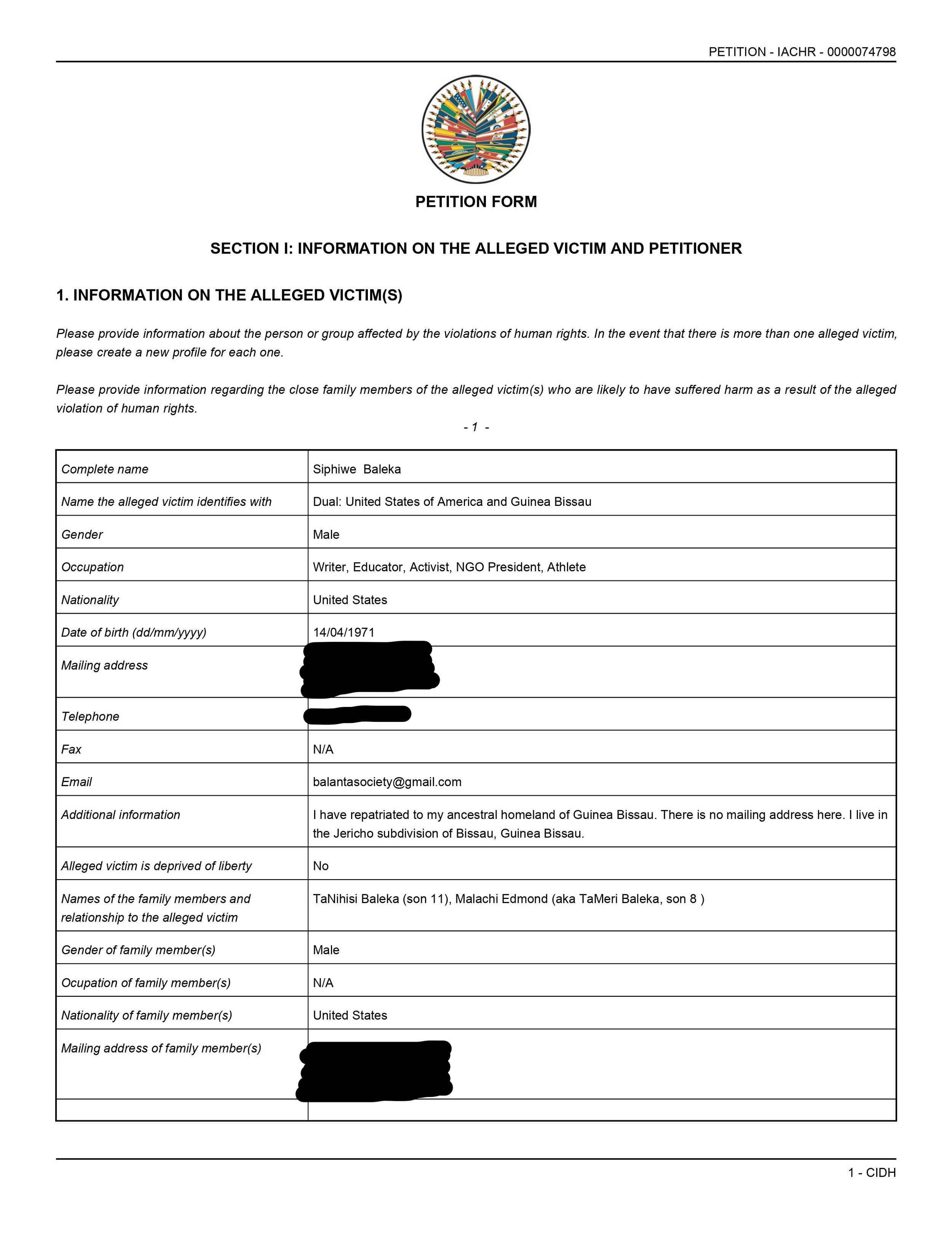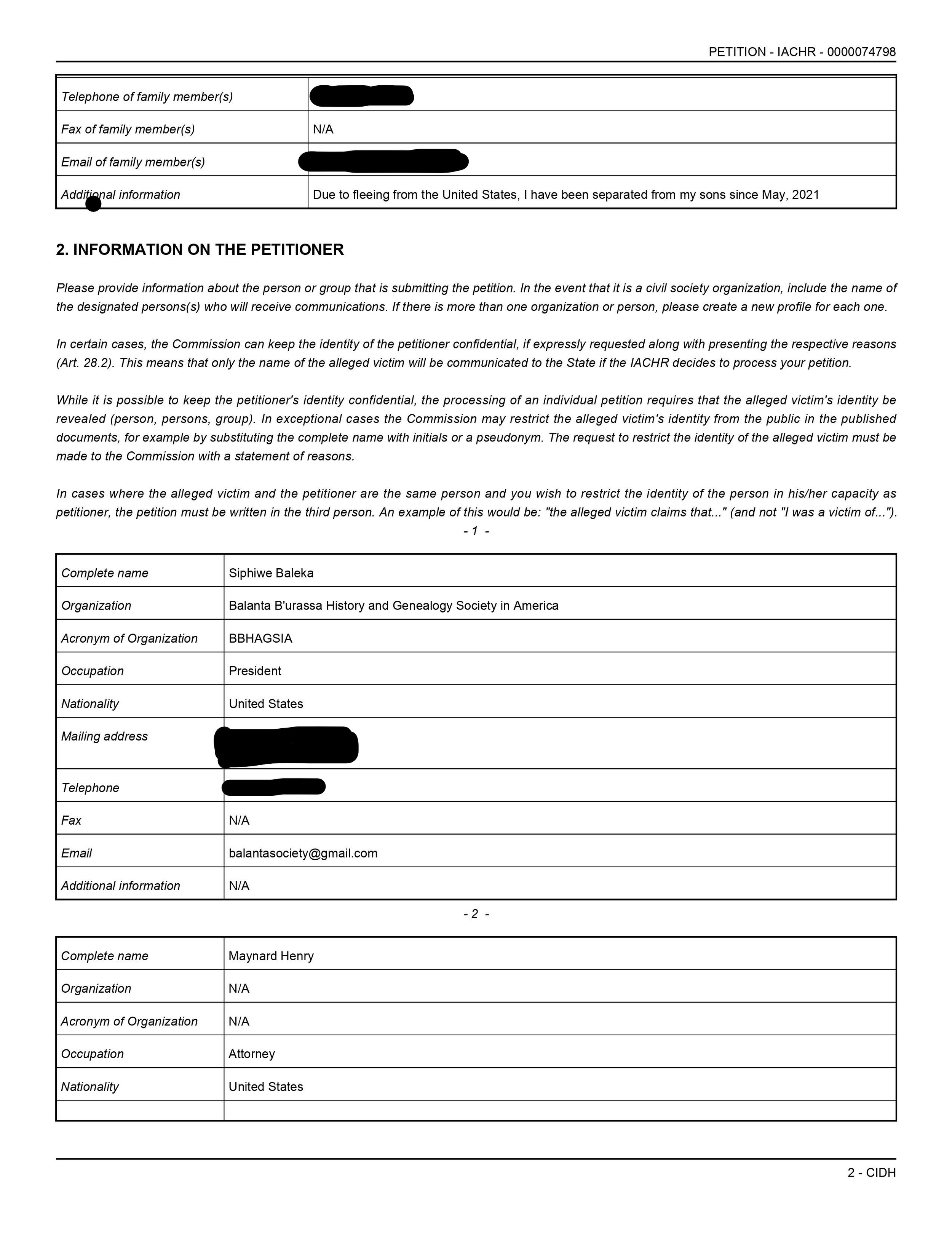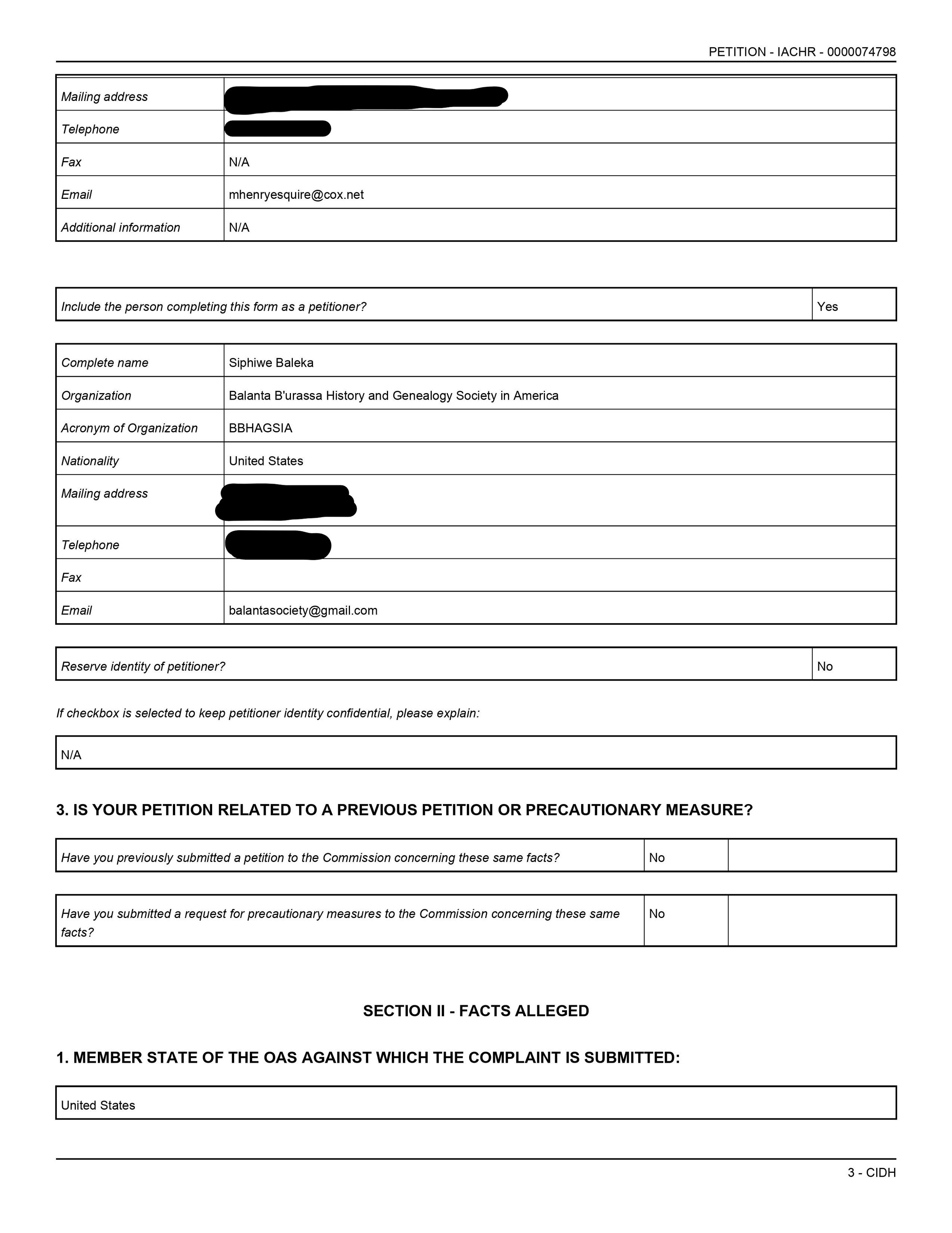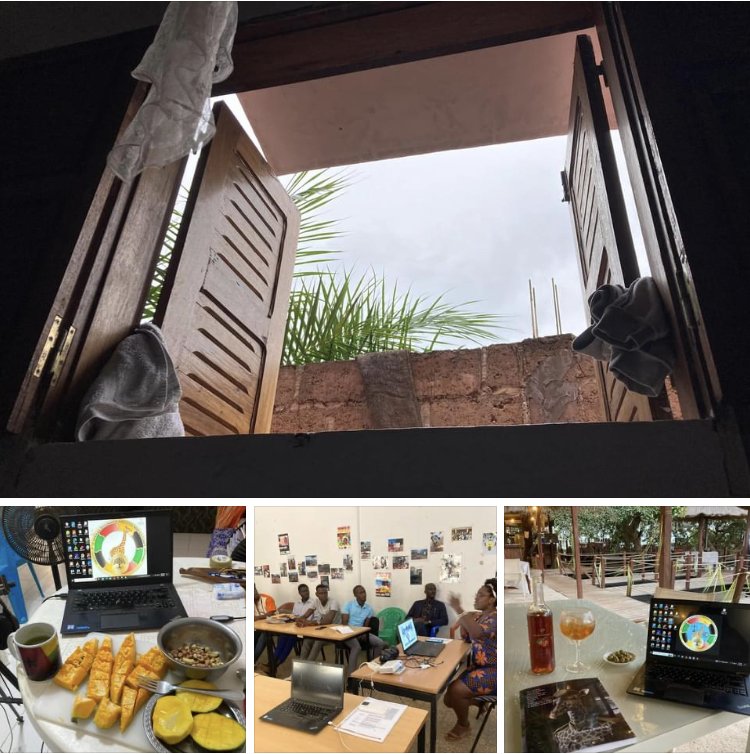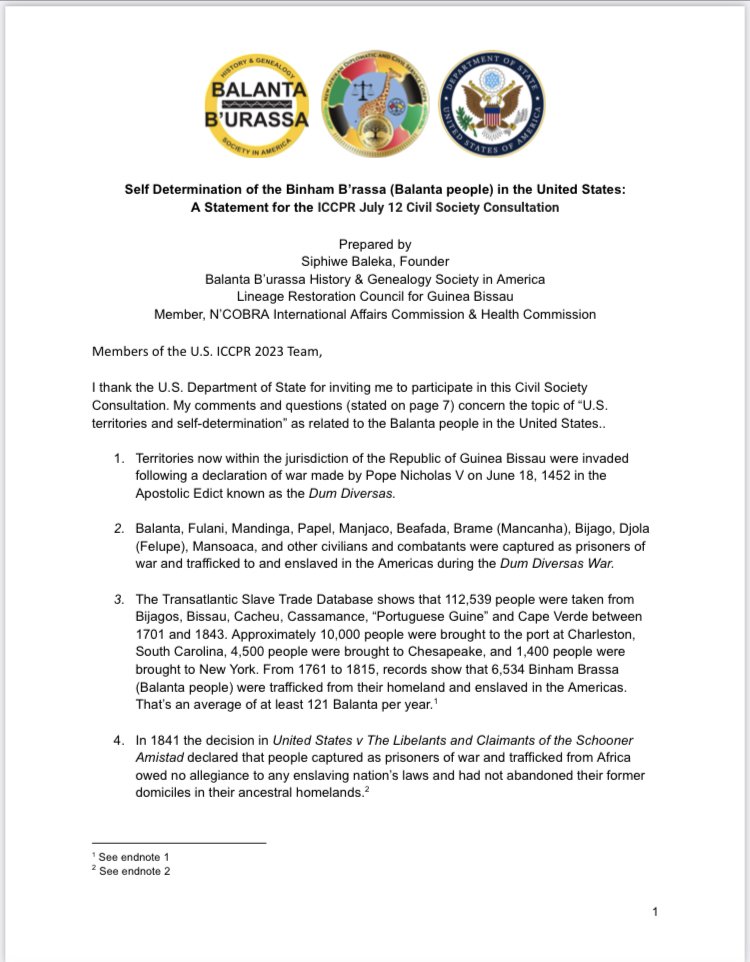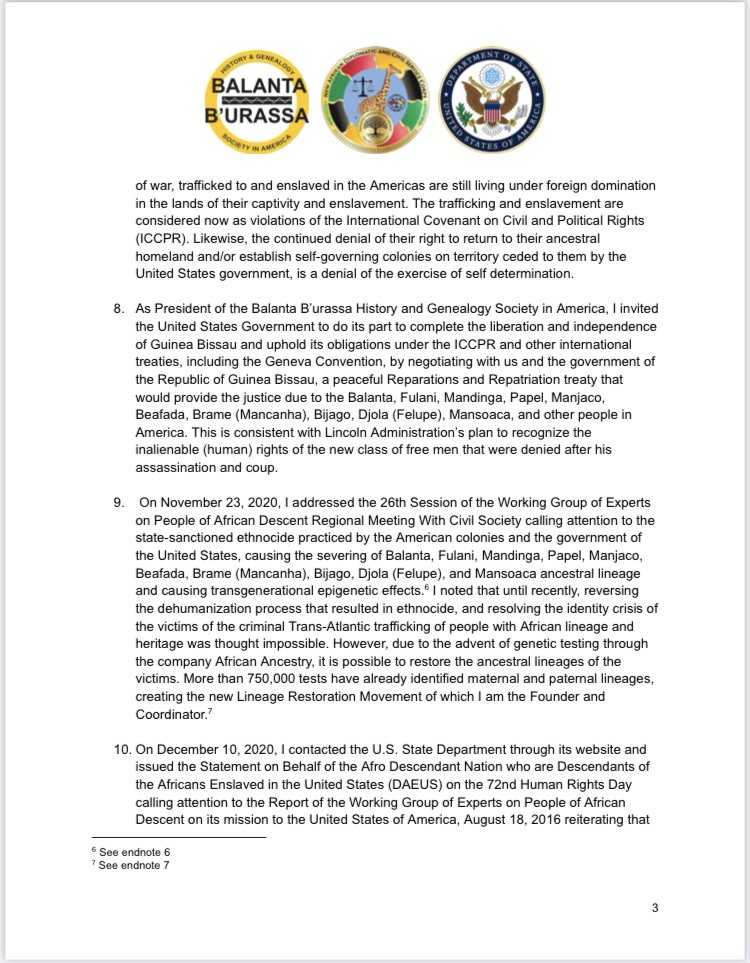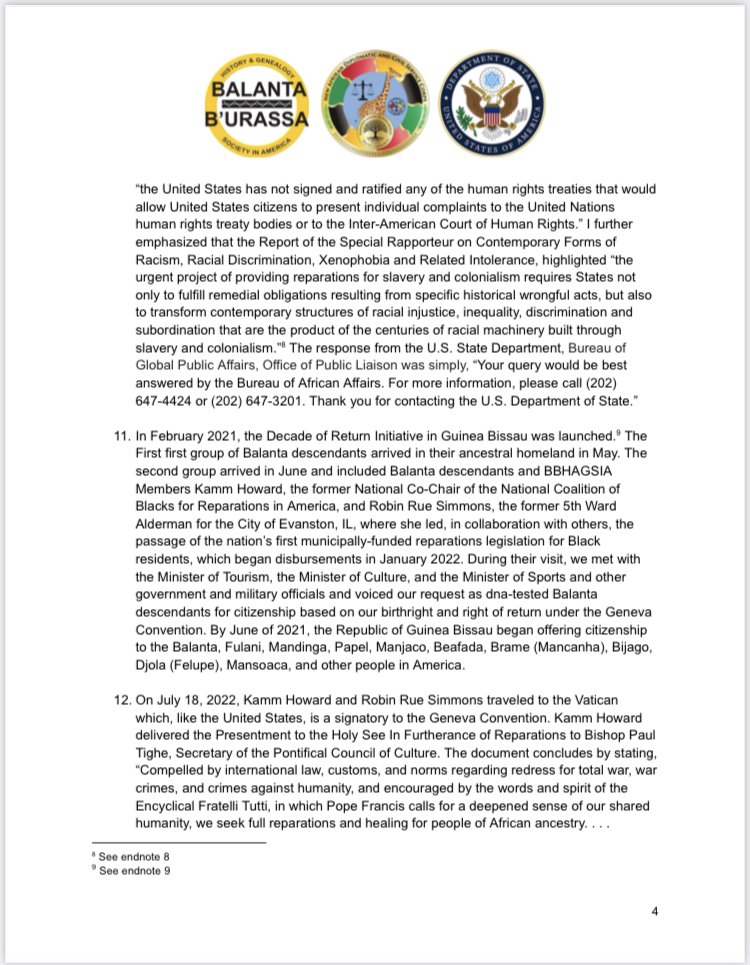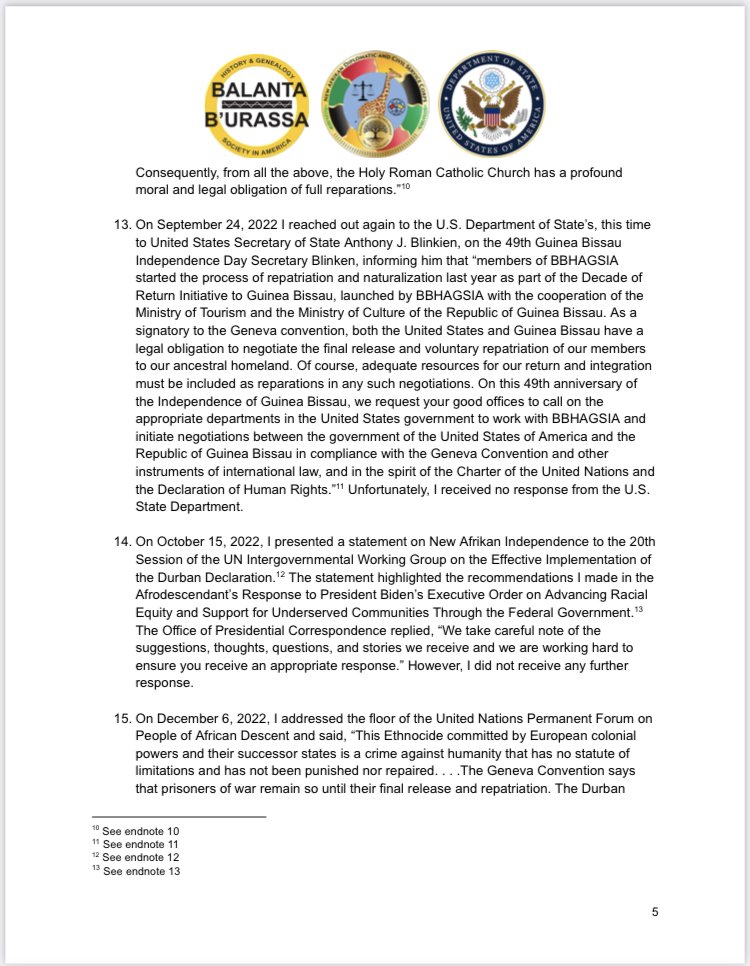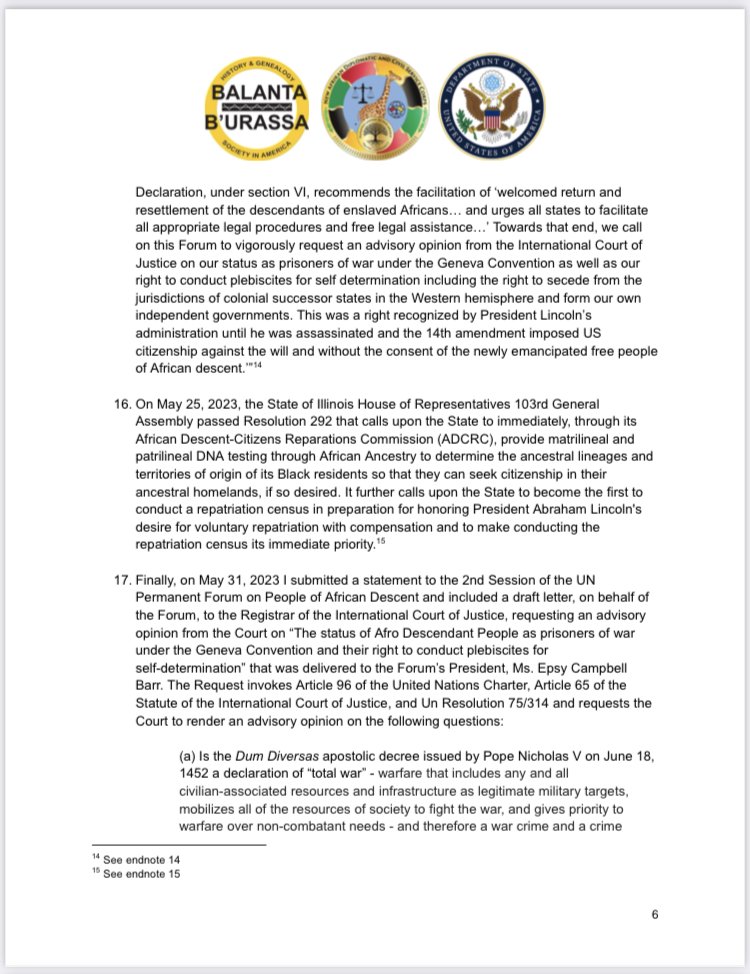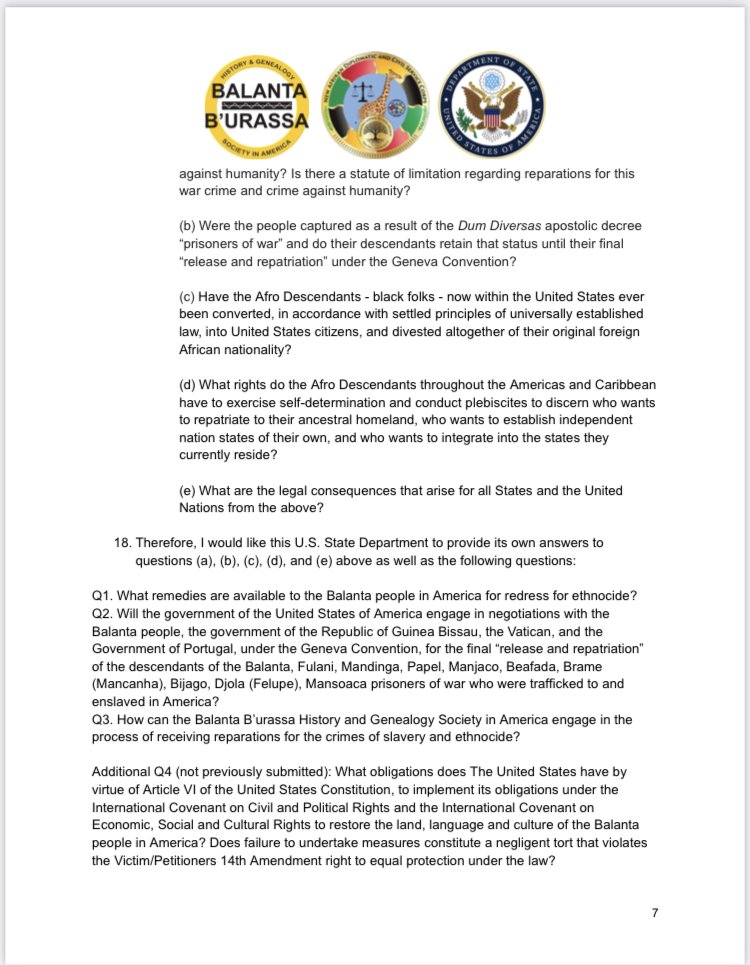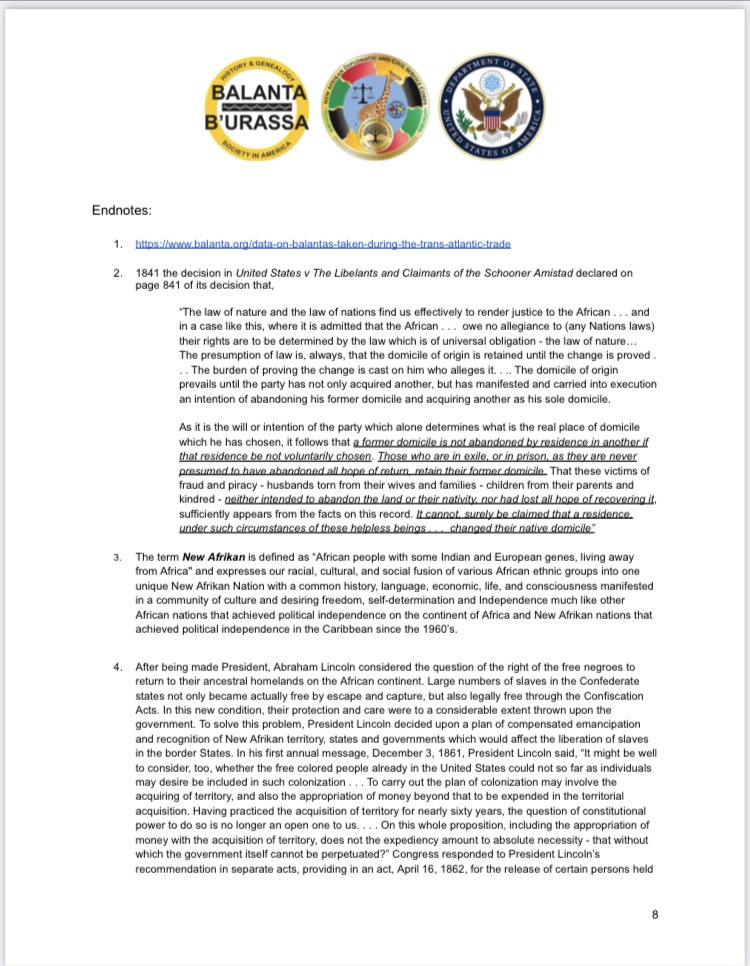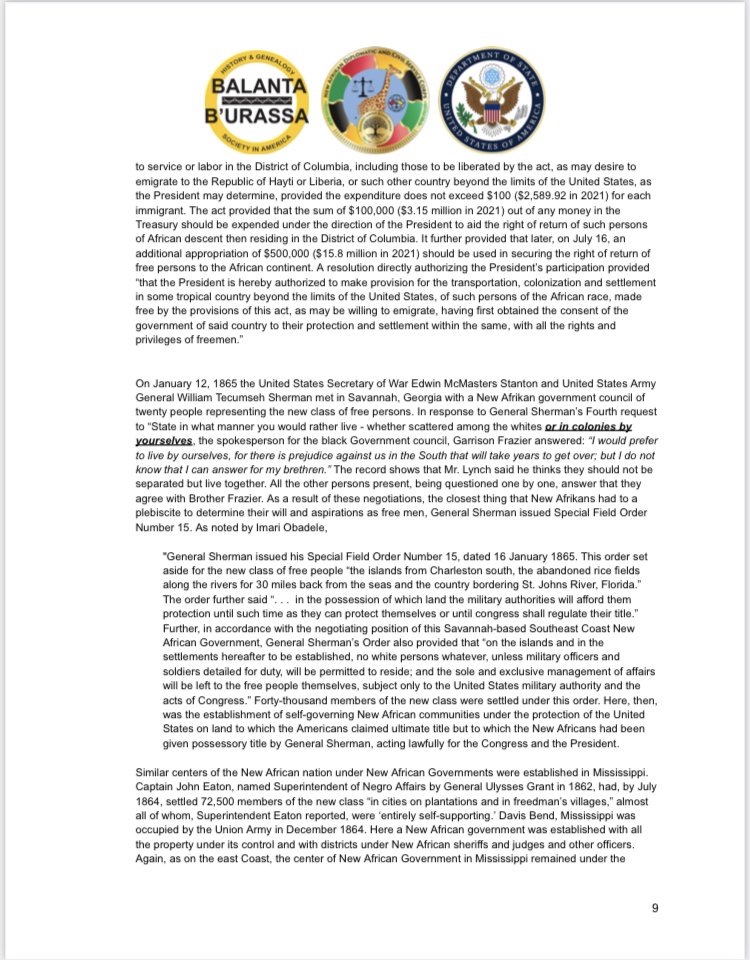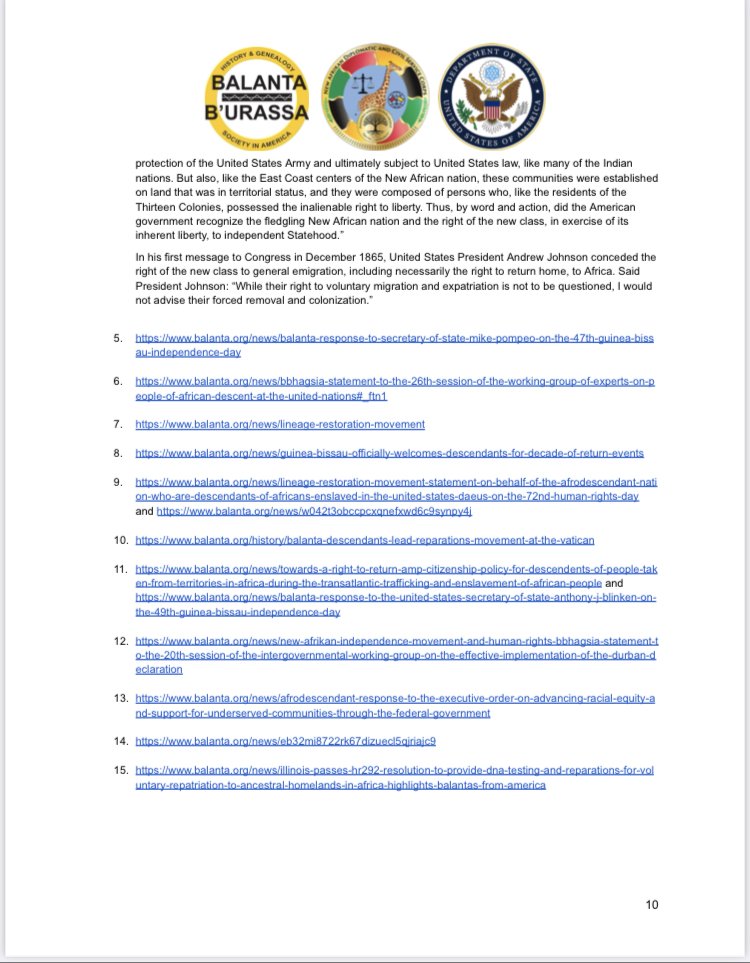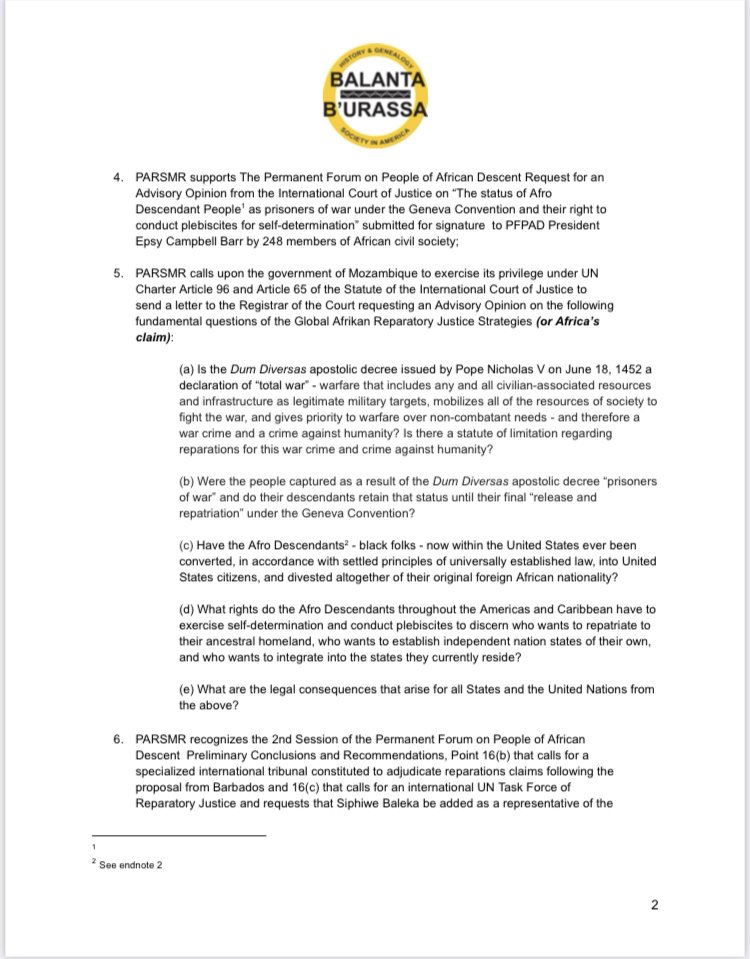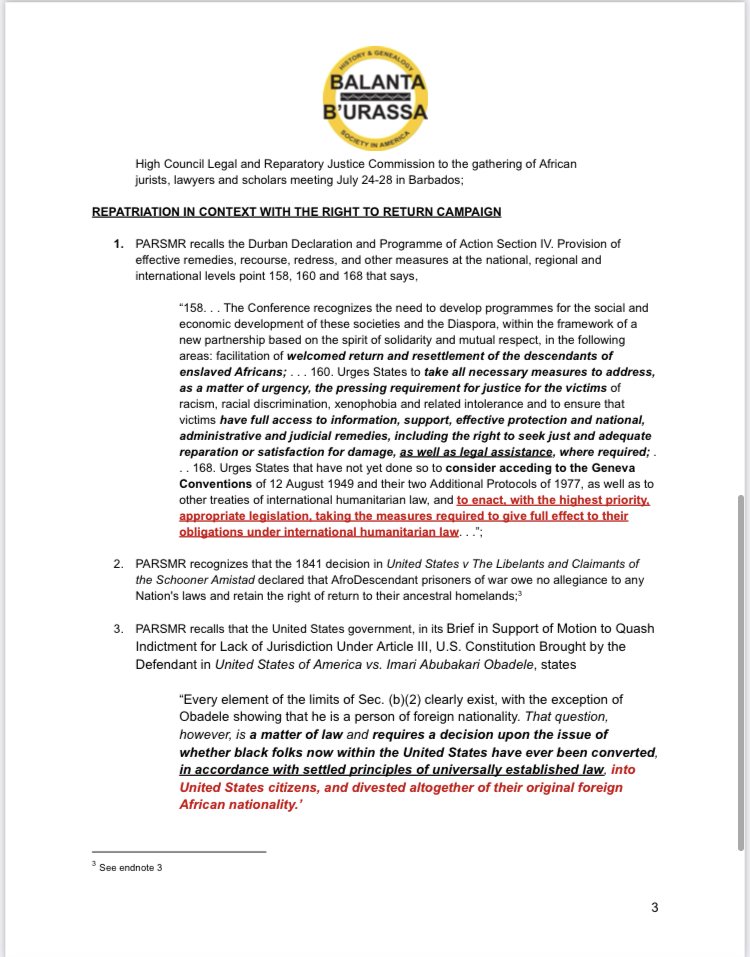As requested, Siphiwe Baleka submitted the following questions to the U.S. State Department:
Q1. What remedies are available to the Balanta people in America for redress for ethnocide?
Q2. Will the government of the United States of America engage in negotiations with the Balanta people, the government of the Republic of Guinea Bissau, the Vatican, and the Government of Portugal, under the Geneva Convention, for the final “release and repatriation” of the descendants of the Balanta, Fulani, Mandinga, Papel, Manjaco, Beafada, Brame (Mancanha), Bijago, Djola (Felupe), Mansoaca prisoners of war who were trafficked to and enslaved in America?
Q3. How can the Balanta B’urassa History and Genealogy Society in America engage in the process of receiving reparations for the crimes of slavery and ethnocide?
Additionally, Mr. Baleka asked the government of the United States to answer the same questions posed in the MANDATE FROM THE AFRO DESCENDANT PEOPLE ISSUED TO THE PERMANENT FORUM ON PEOPLE OF AFRICAN DESCENT TO REQUEST AN ADVISORY OPINION FROM THE INTERNATIONAL COURT OF JUSTICE ON THEIR STATUS AS PRISONERS OF WAR UNDER THE GENEVA CONVENTION that invokes Article 96 of the United Nations Charter, Article 65 of the Statute of the International Court of Justice, and UN Resolution 75/314:
(a) Is the Dum Diversas apostolic decree issued by Pope Nicholas V on June 18, 1452 a declaration of “total war” - warfare that includes any and all civilian-associated resources and infrastructure as legitimate military targets, mobilizes all of the resources of society to fight the war, and gives priority to warfare over non-combatant needs - and therefore a war crime and a crime against humanity? Is there a statute of limitation regarding reparations for this war crime and crime against humanity?
(b) Were the people captured as a result of the Dum Diversas apostolic decree “prisoners of war” and do their descendants retain that status until their final “release and repatriation” under the Geneva Convention?
(c) Have the Afro Descendants - black folks - now within the United States ever been converted, in accordance with settled principles of universally established law, into United States citizens, and divested altogether of their original foreign African nationality?
(d) What rights do the Afro Descendants throughout the Americas and Caribbean have to exercise self-determination and conduct plebiscites to discern who wants to repatriate to their ancestral homeland, who wants to establish independent nation states of their own, and who wants to integrate into the states they currently reside?
(e) What are the legal consequences that arise for all States and the United Nations from the above?
The intervention with the U.S. State Department comes on the heals of the State of Illinois House of Representatives 103rd General Assembly Resolution 292 that calls upon the State to become the first to conduct a repatriation census in preparation for honoring President Abraham Lincoln's desire for voluntary repatriation with compensation and to make conducting the repatriation census its immediate priority. The resolution states,
“Additionally of note is the fact that Robin Rue Simmons (former 5th Ward Alderman for the City of Evanston, IL, where she led, in collaboration with others, the passage of the nation’s first municipally-funded reparations legislation for Black residents, which began disbursements in January 2022) , Kamm Howard (former National Co-Chair of the National Coalition of Blacks for Reparations in America), and BBHAGSIA President Siphiwe Baleka have all taken African Ancestry DNA tests and discovered they are each descendants of the Balanta people of Guinea Bissau; the subsequently traveled together to their ancestral homeland to launch the country’s Decade of Retrun Initiative in 2021;”
According to Siphiwe Baleka, “Our aim is to help the entire Lineage Restoration Movement and New Afrikan Independence Movement to exercise their self determination and establish a pathway for members of the African Diaspora to exercise their right to return to their ancestral homelands and receive citizenship which, with the implementation of AU policies by each AU member state, will allow for the freedom of movement and trade thorughout the continent.”
To further advance the Decade of Return and Citizenshship Initiative the BBHAGSIA launched in 2021, Baleka led the effort to establish the Lineage Restoration Council of Guinea Bissau that includes the Djola History and Genealogy Society in America and the Fula History and Genealogy Society in America. The new Council has drafted legislation and has been invited to meet with the newly elected National Peoples Assembly through the transition team of the winning coalition party, Plataforma Aliança Inclusiva (PAI) -- Terra Ranka, to make diaspora citizenship a priority issue of the new government.
“We hope to set an example for the other 800,000 people that have taken the African Ancestry DNA test, on how to constitute themselves into History and Genealogys Societies, form National Lineage Restoration Councils, and then proceed with the work of self determination through legislation,” said Baleka.
Additionally, On July 12 and 13, Baleka attended the PAN AFRICAN ROOTS-SYNERGY MAPUTO ROUNDTABLE (PARSMR) and made the following recommendations:





